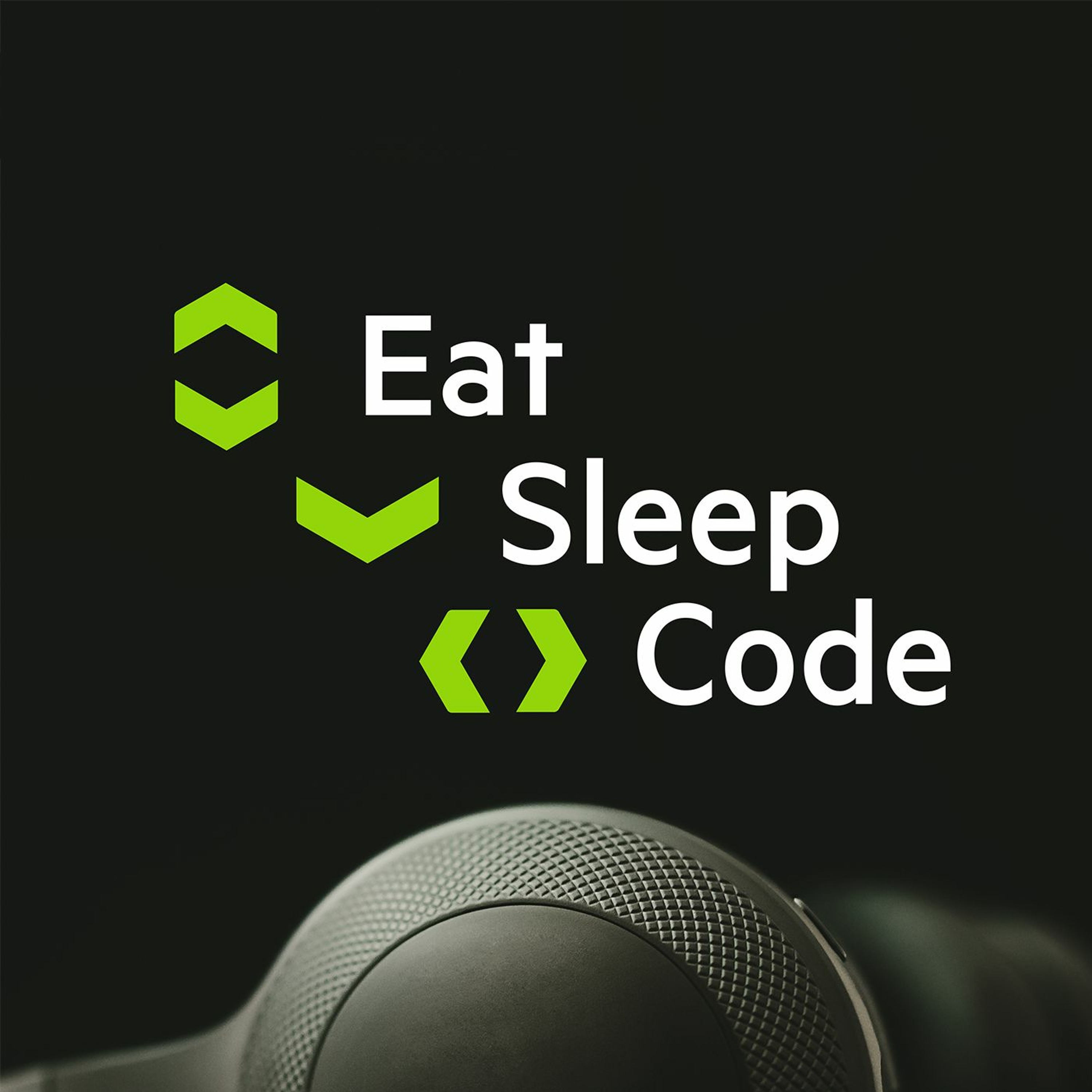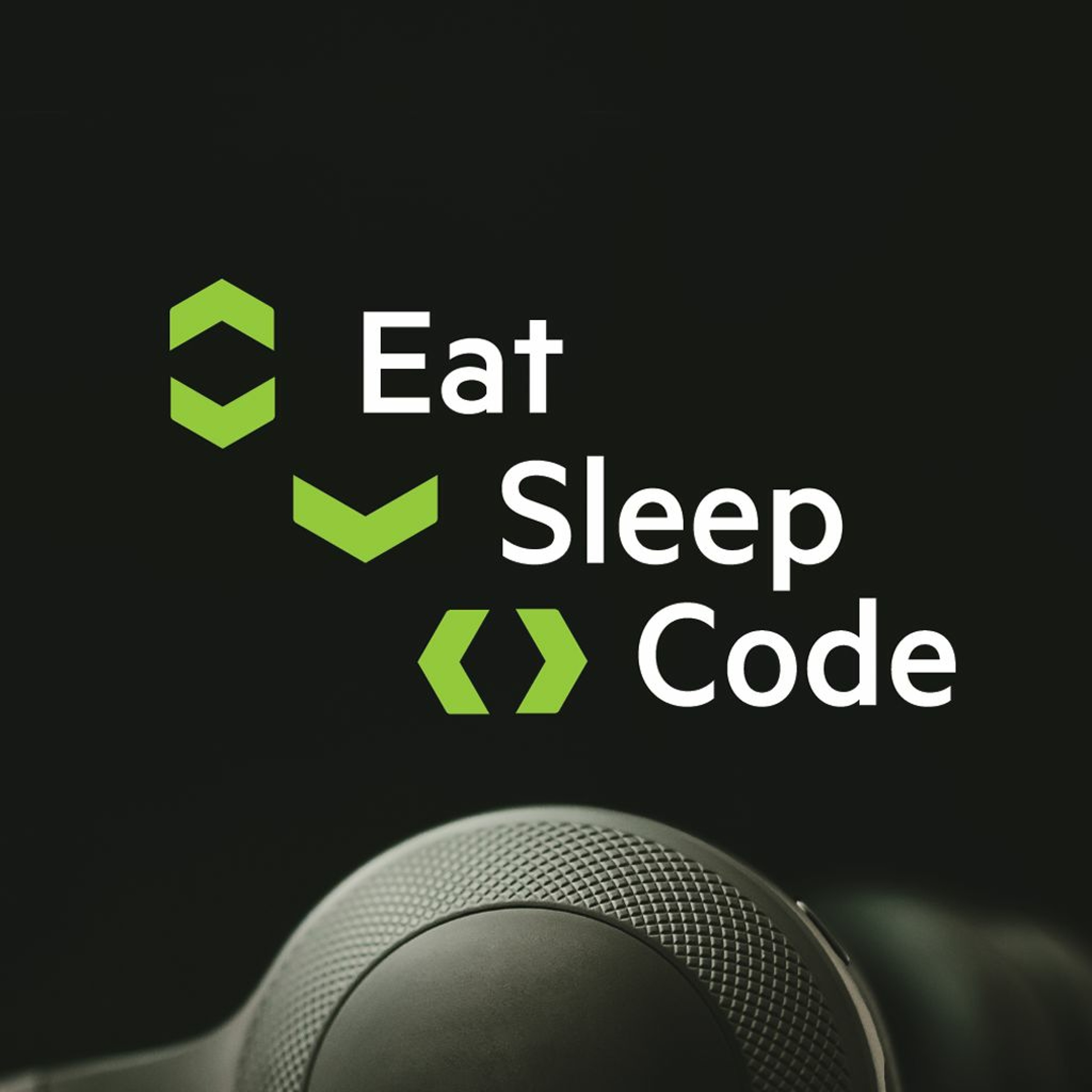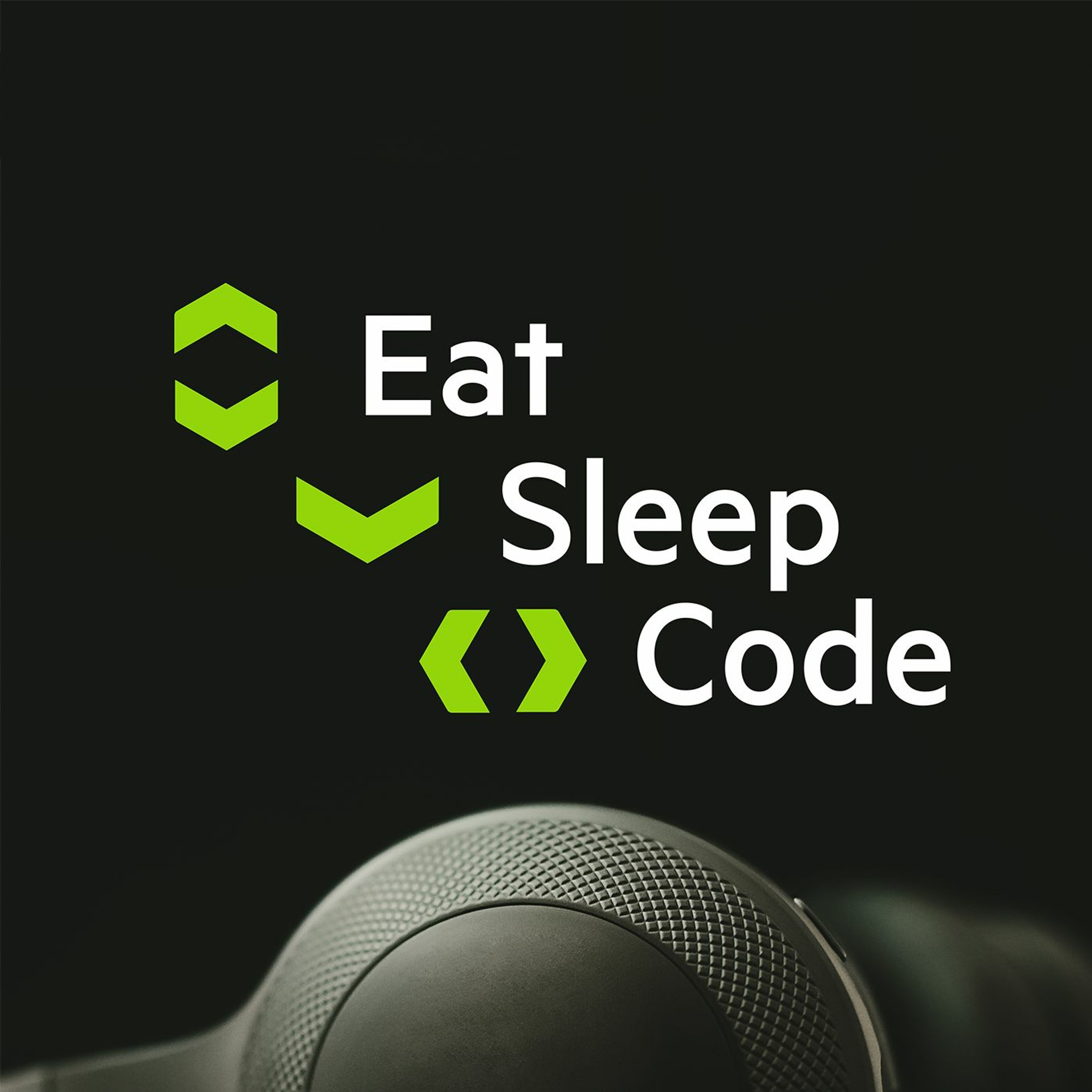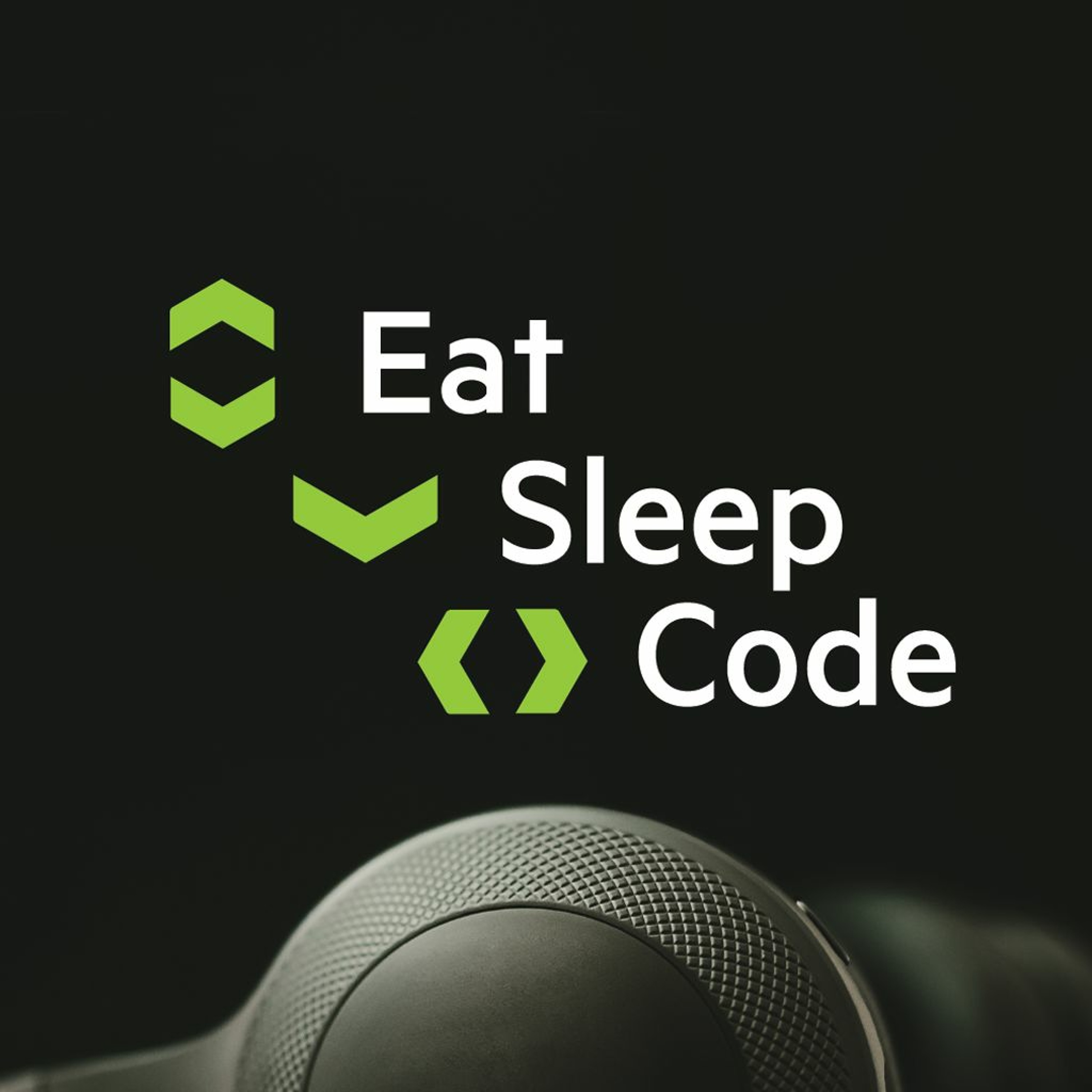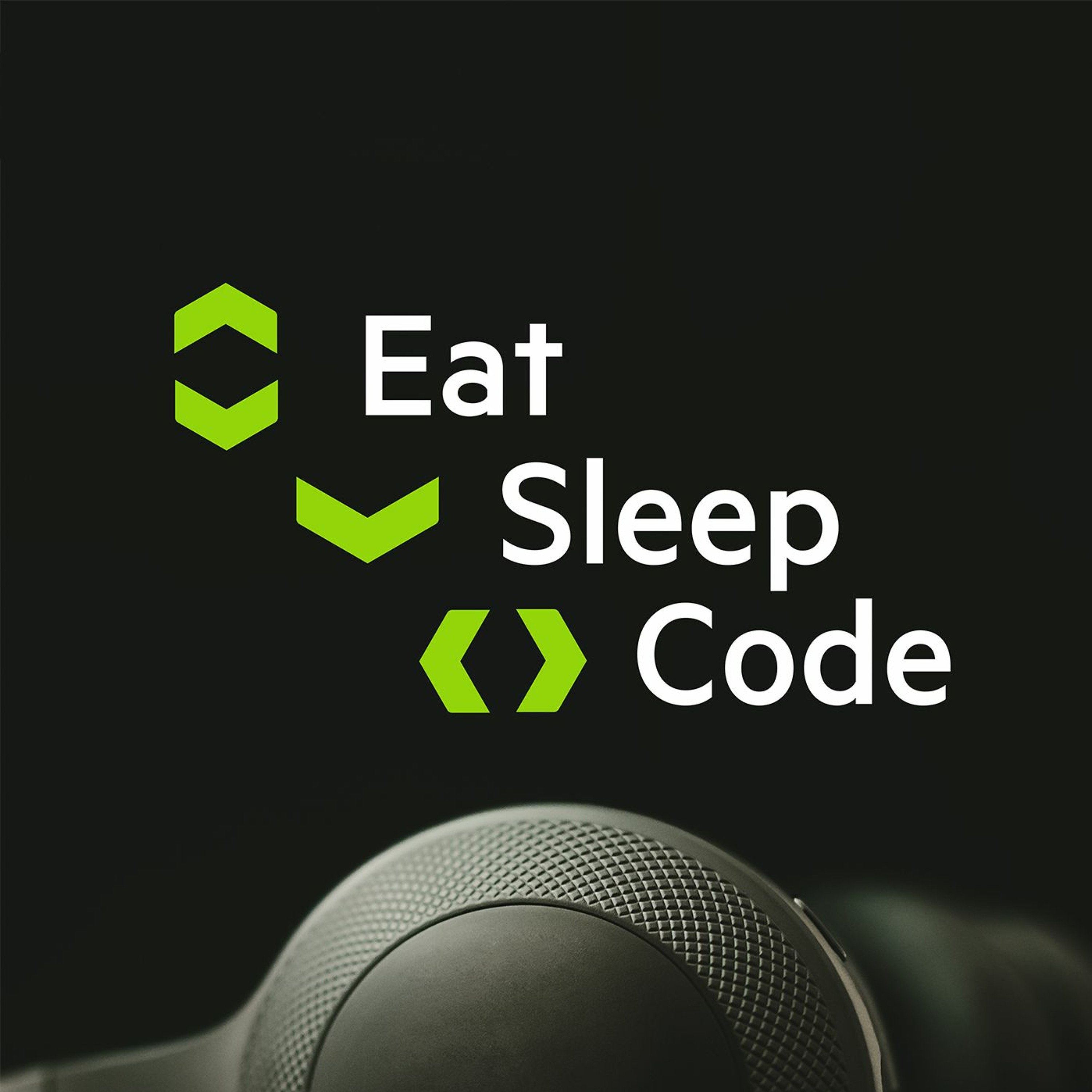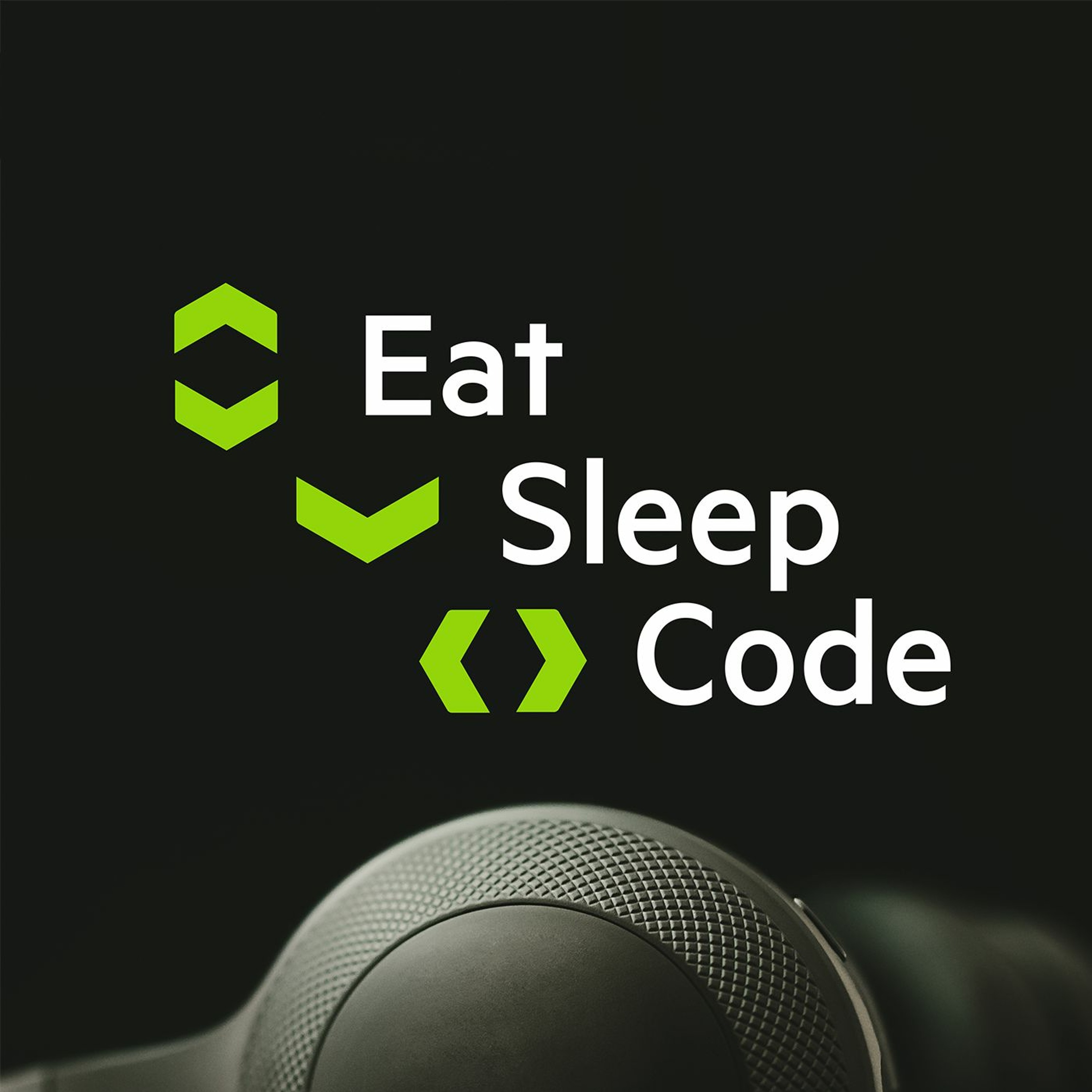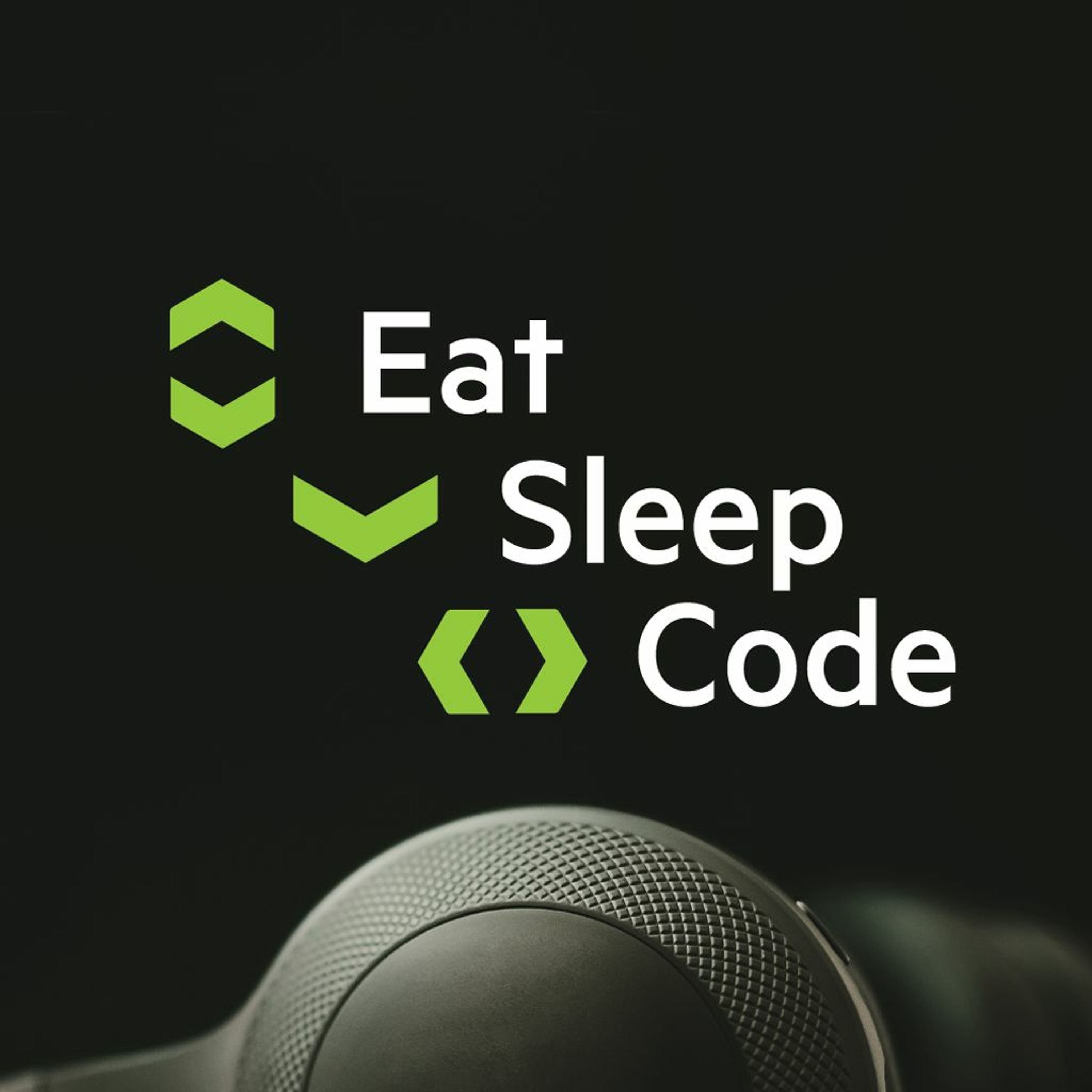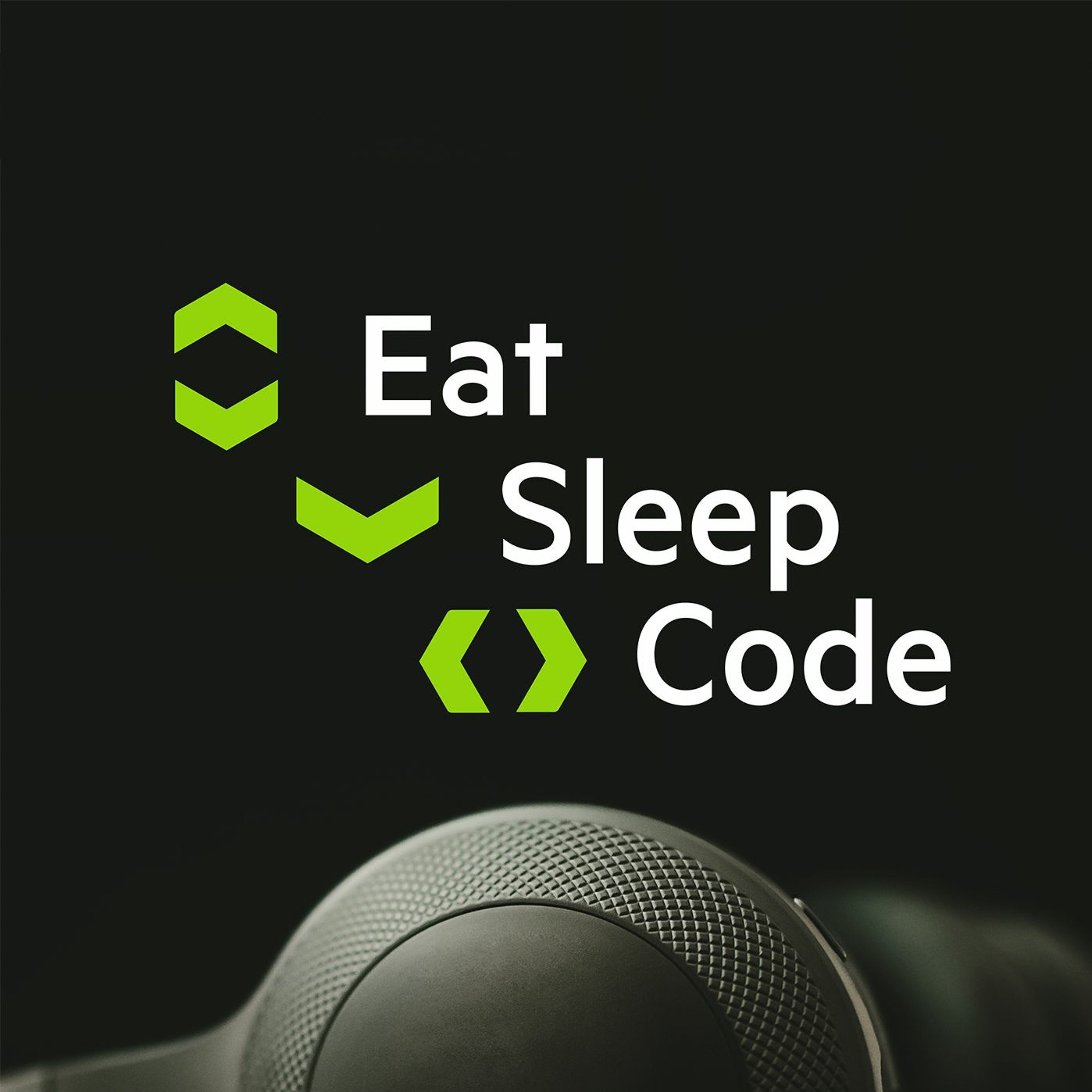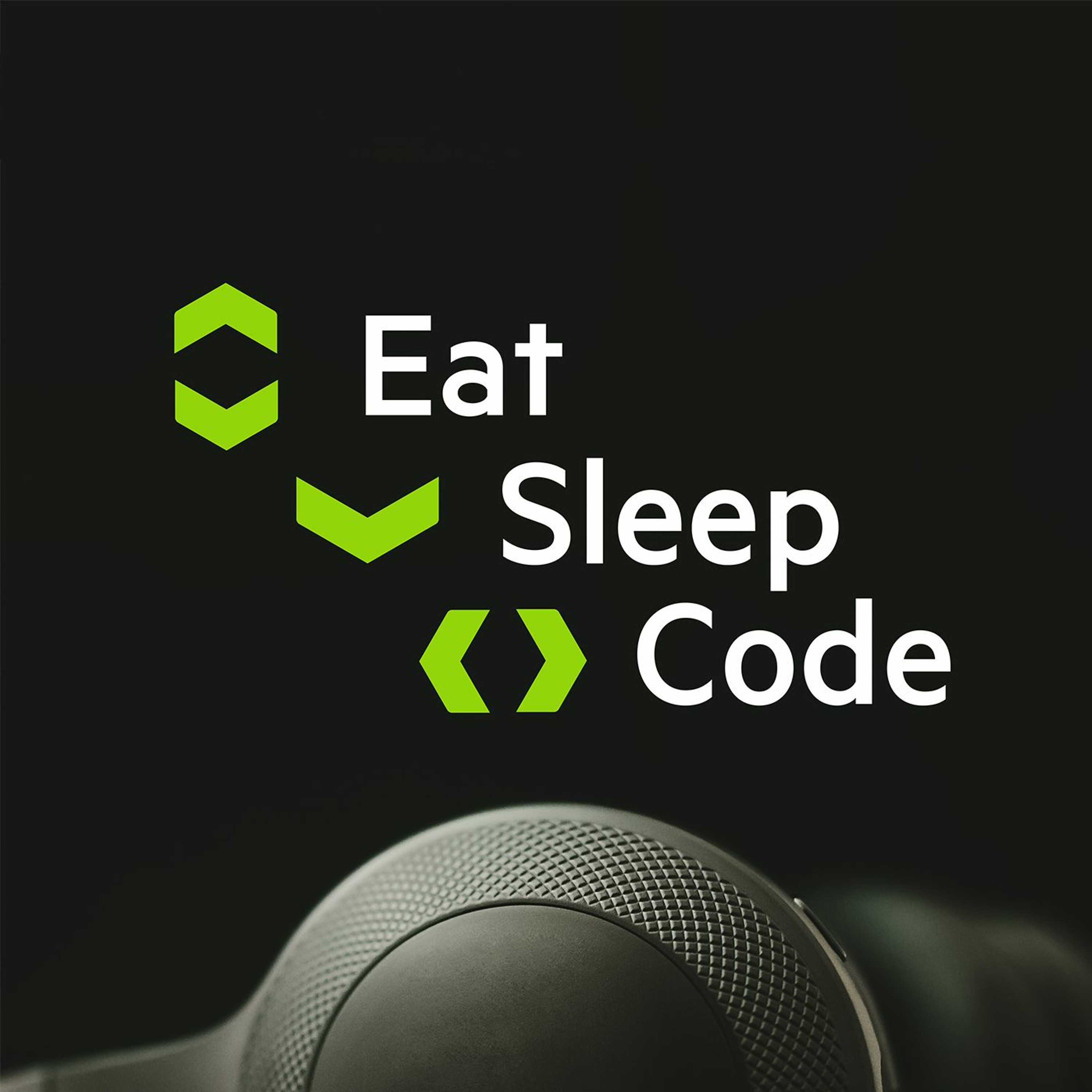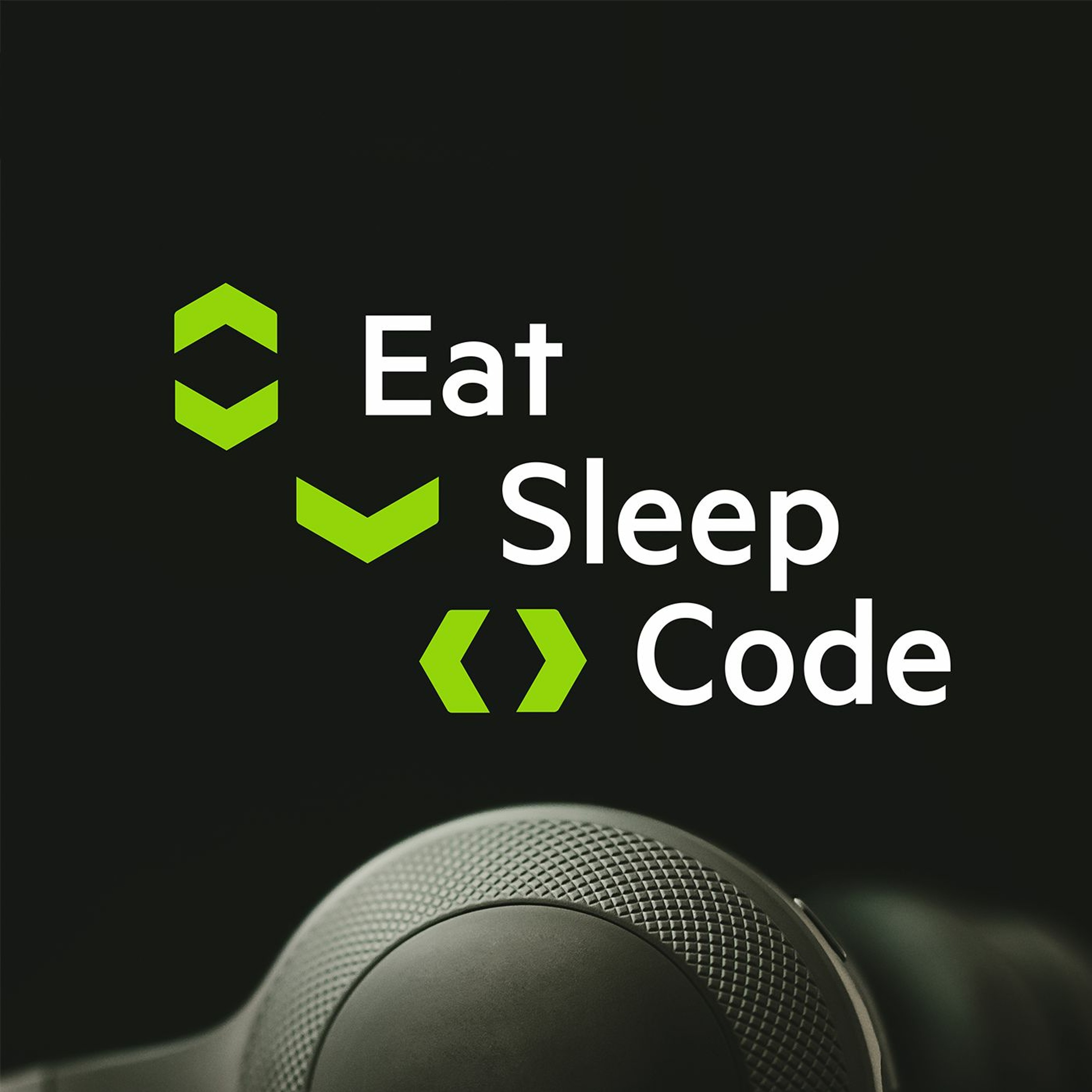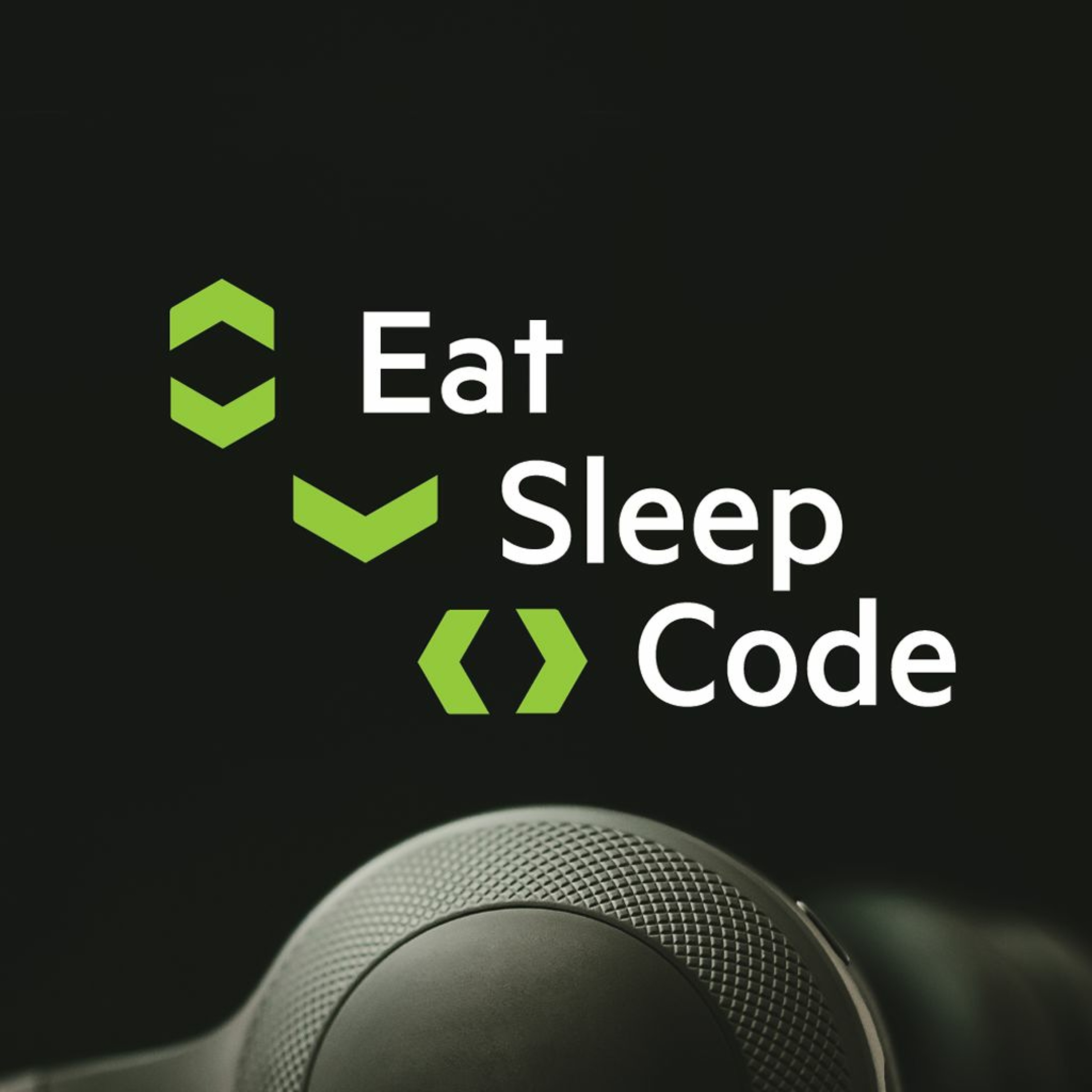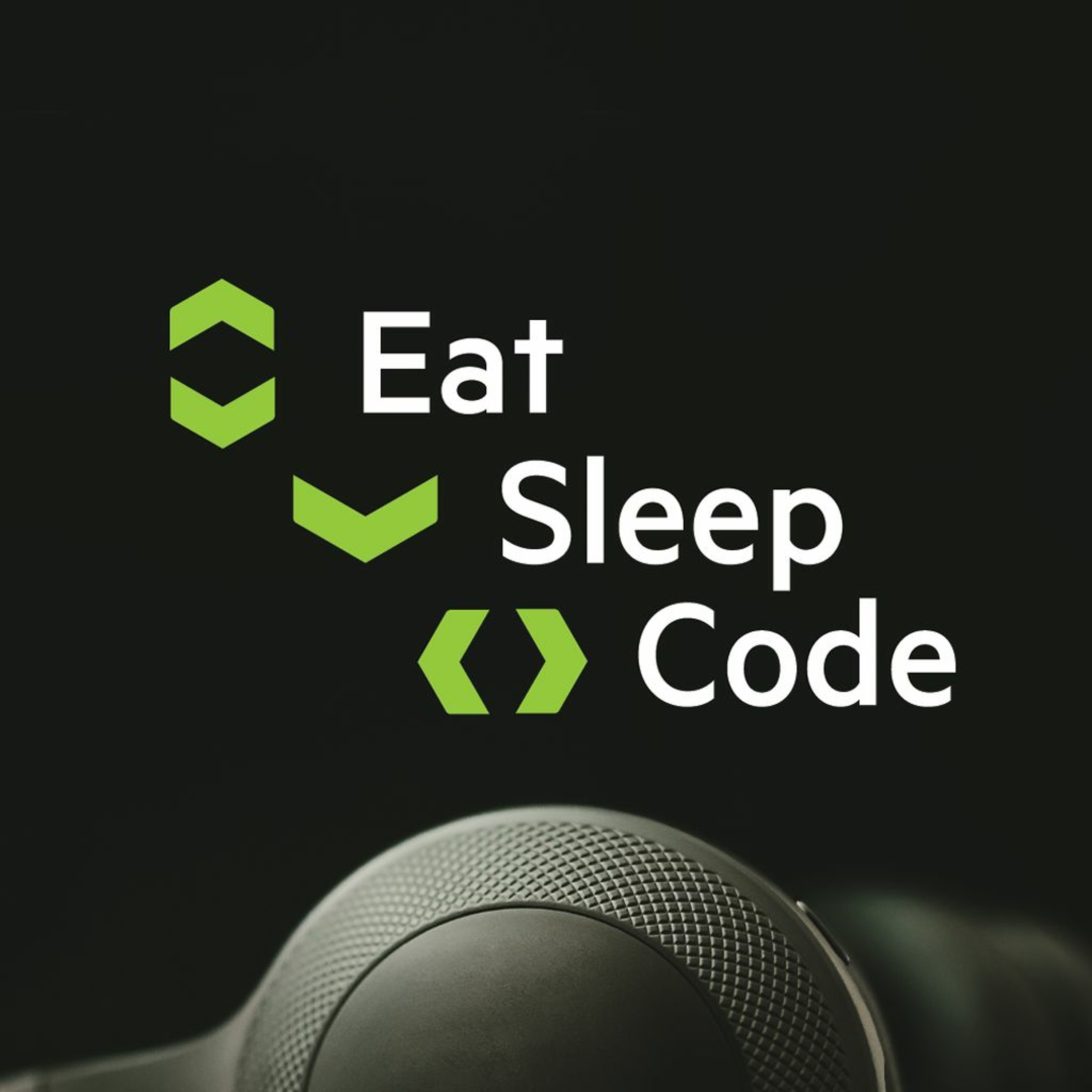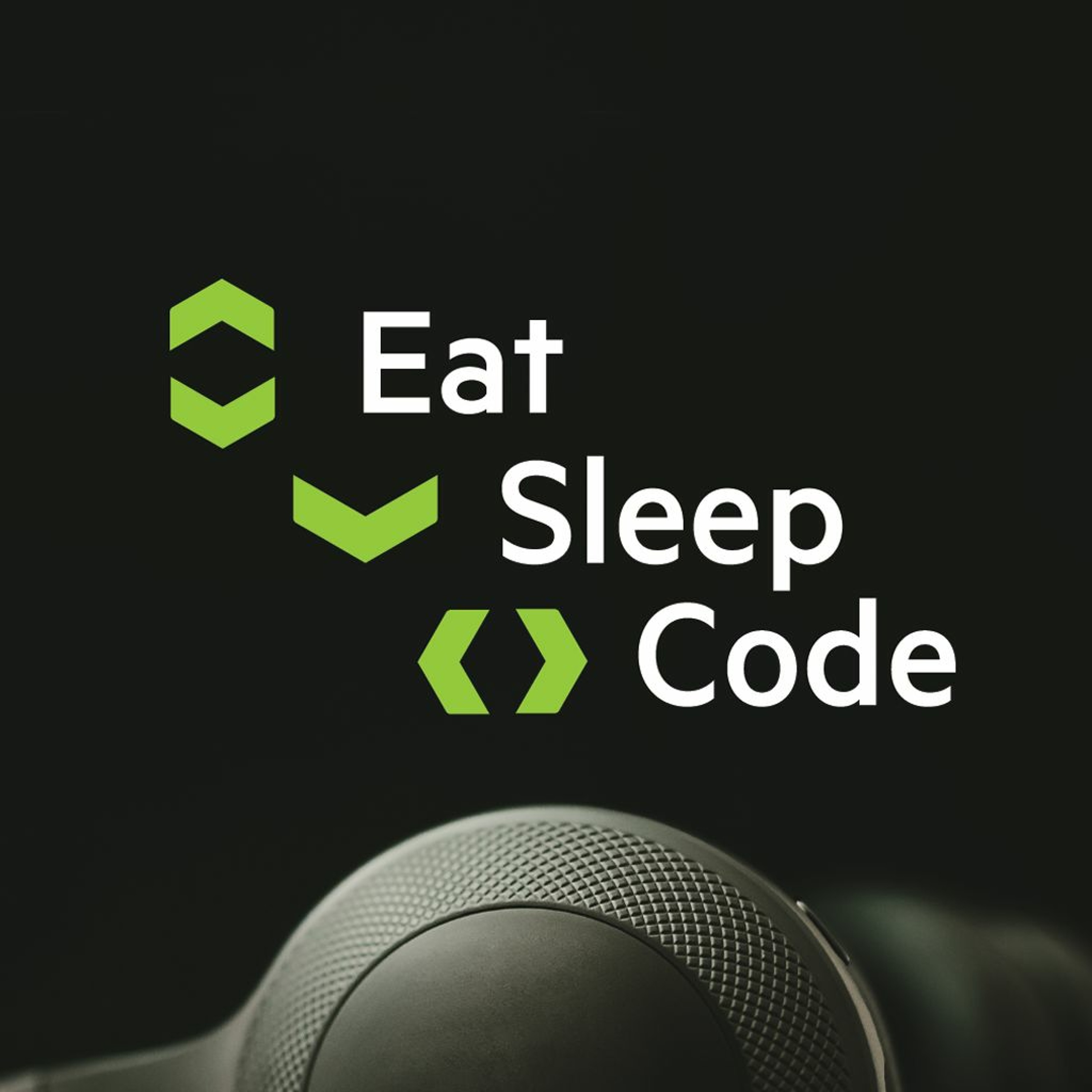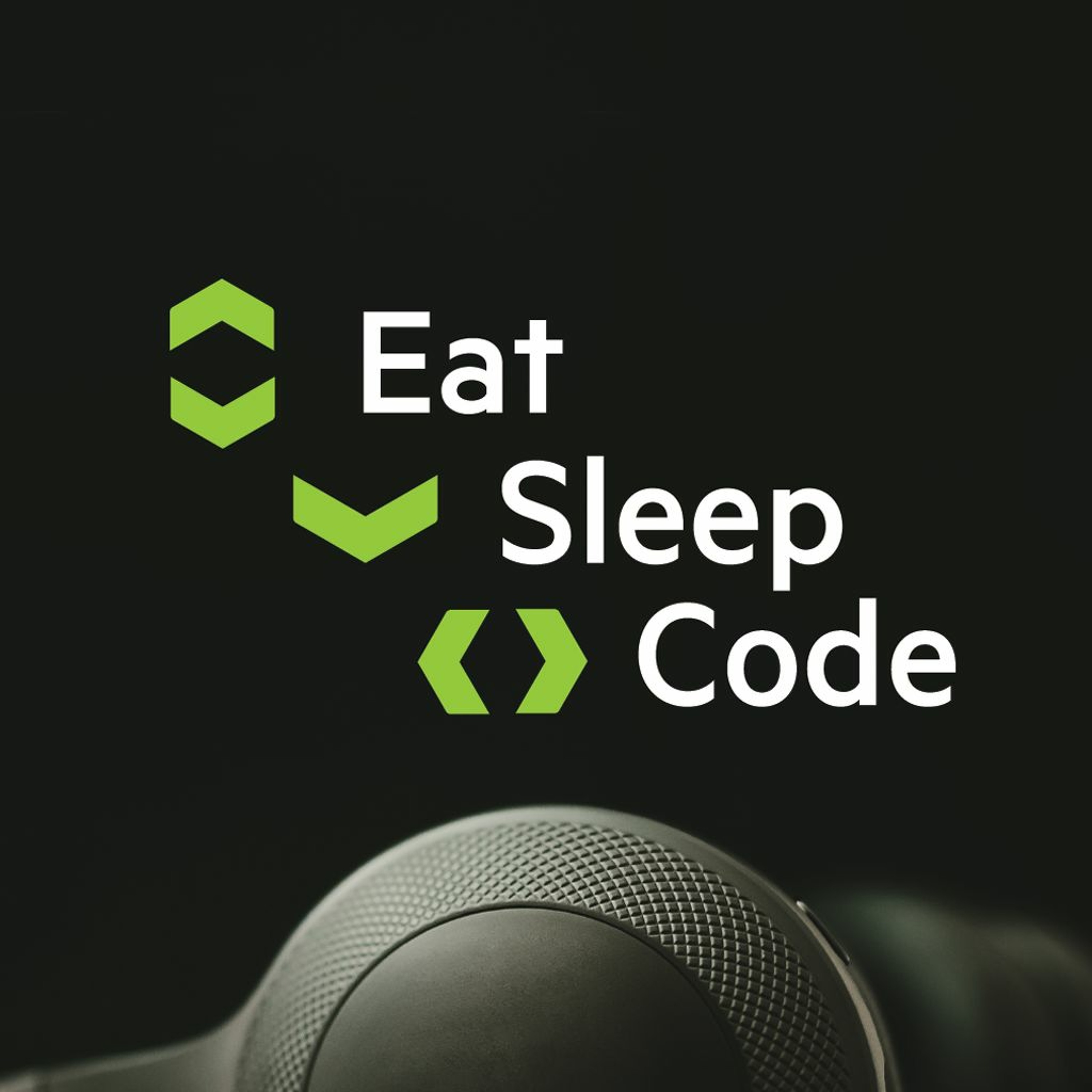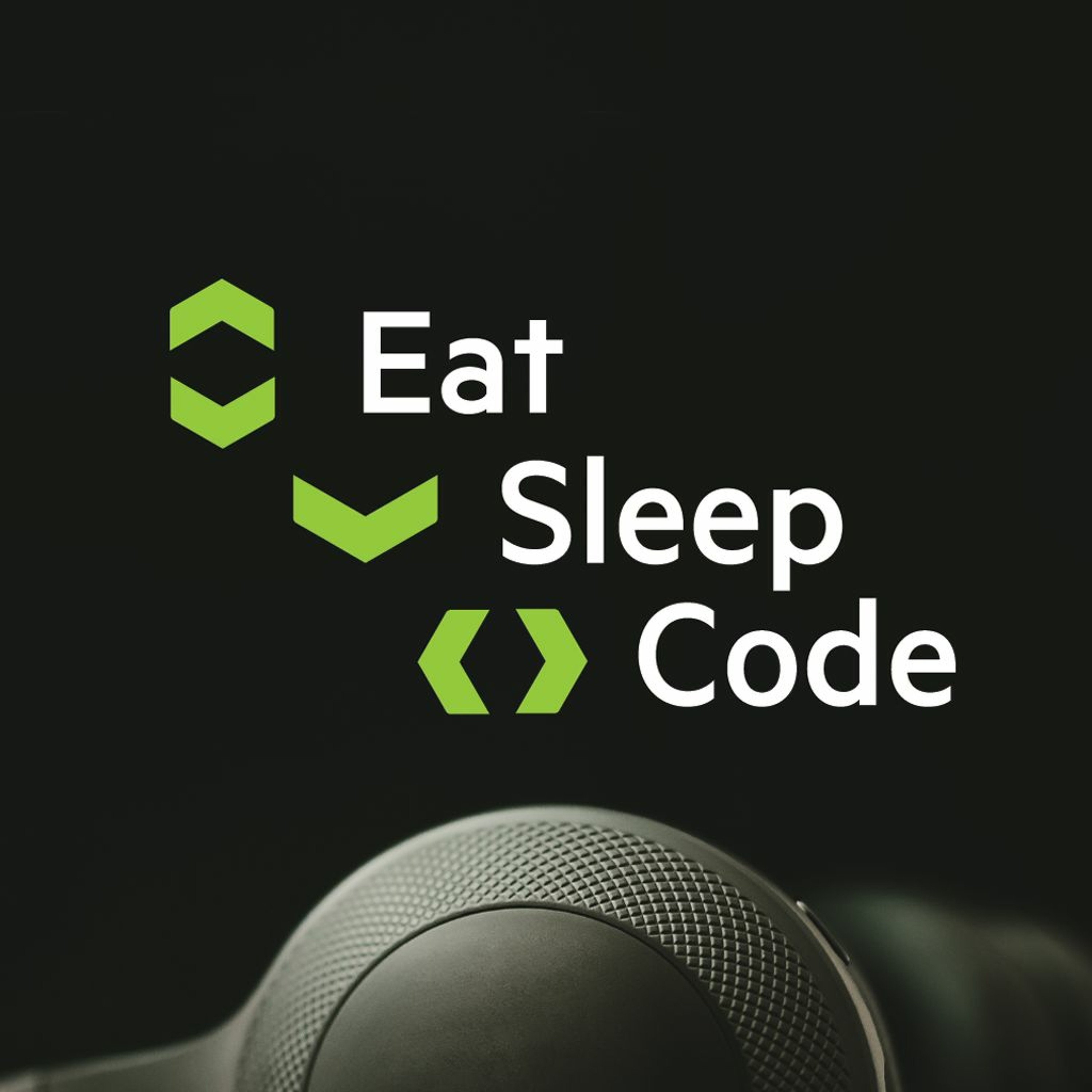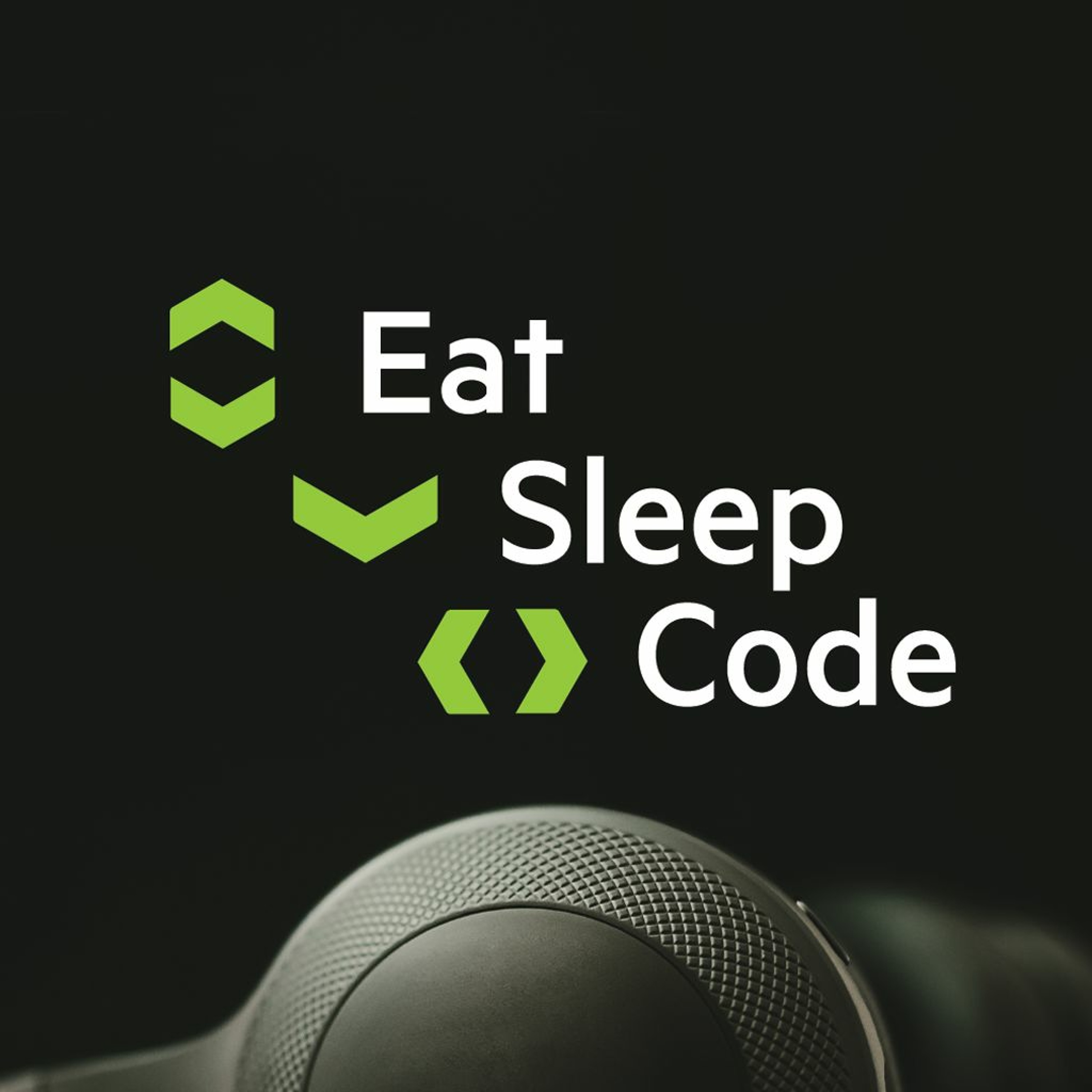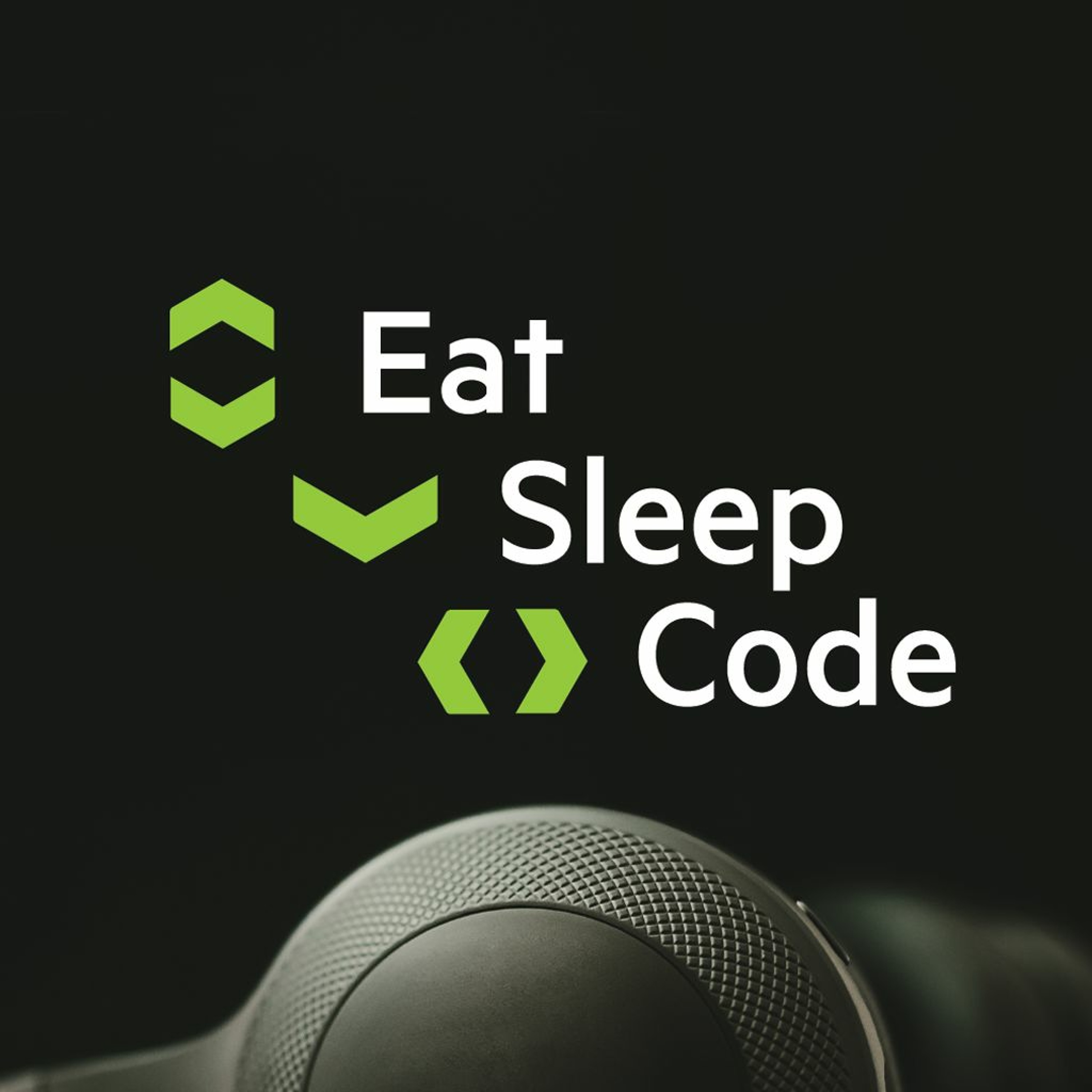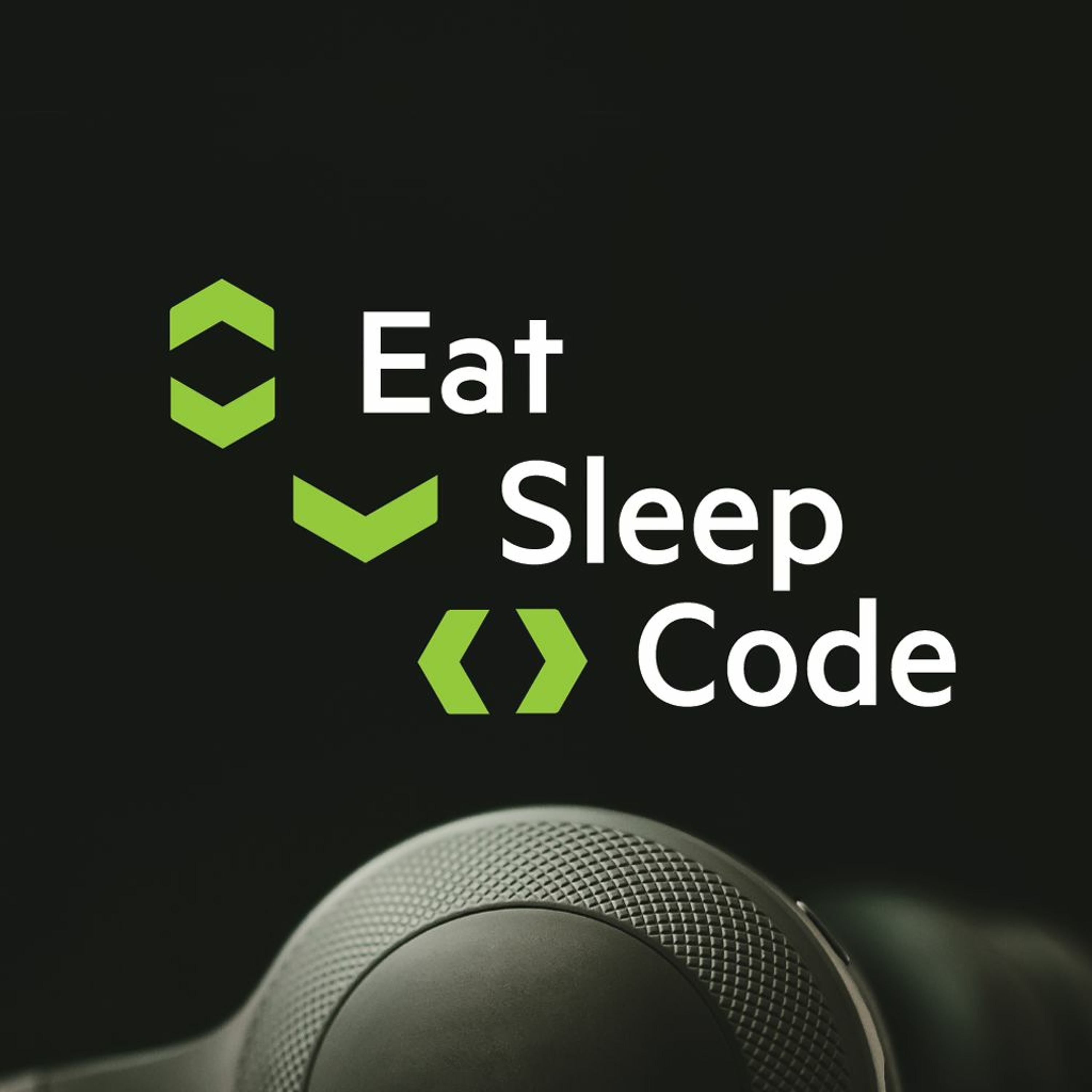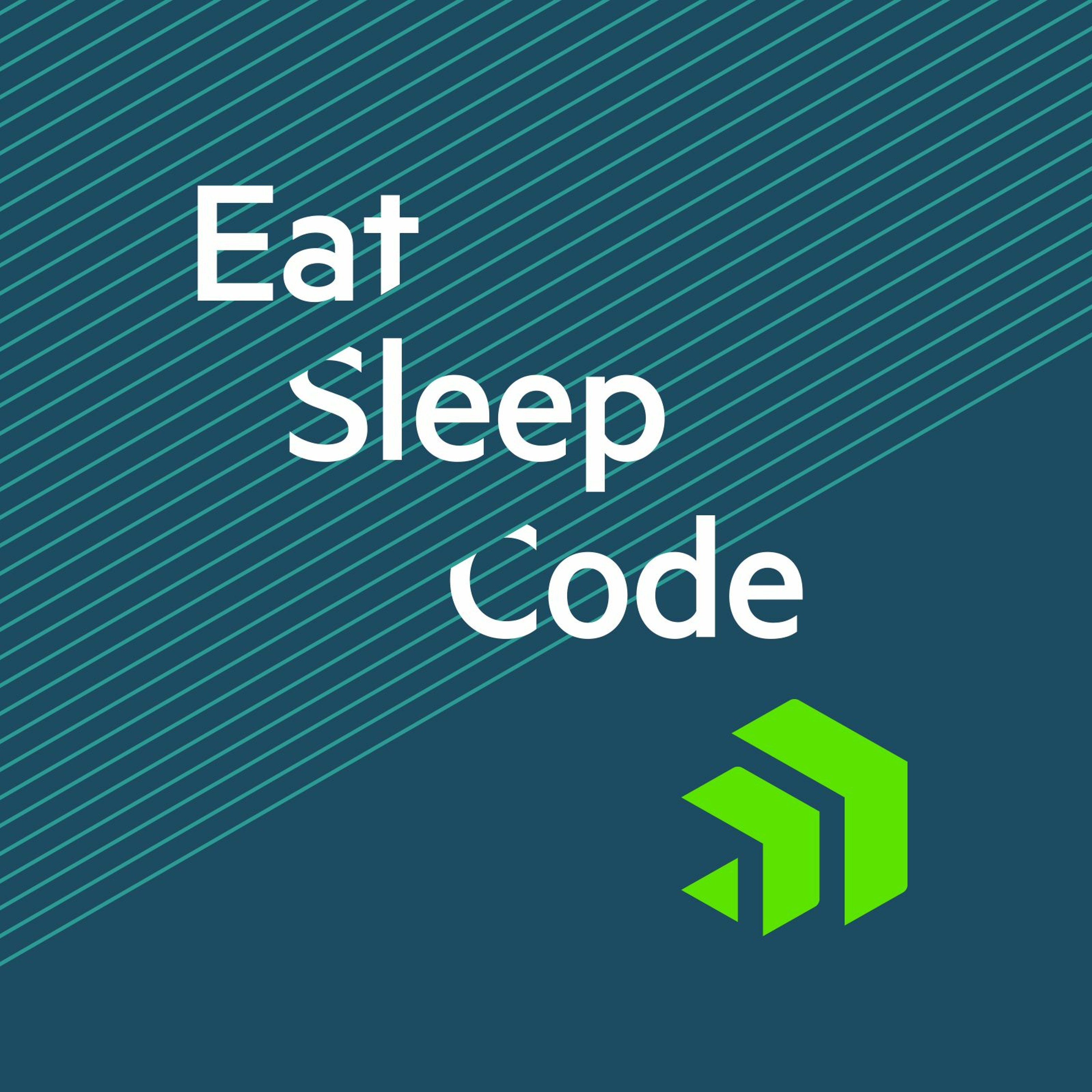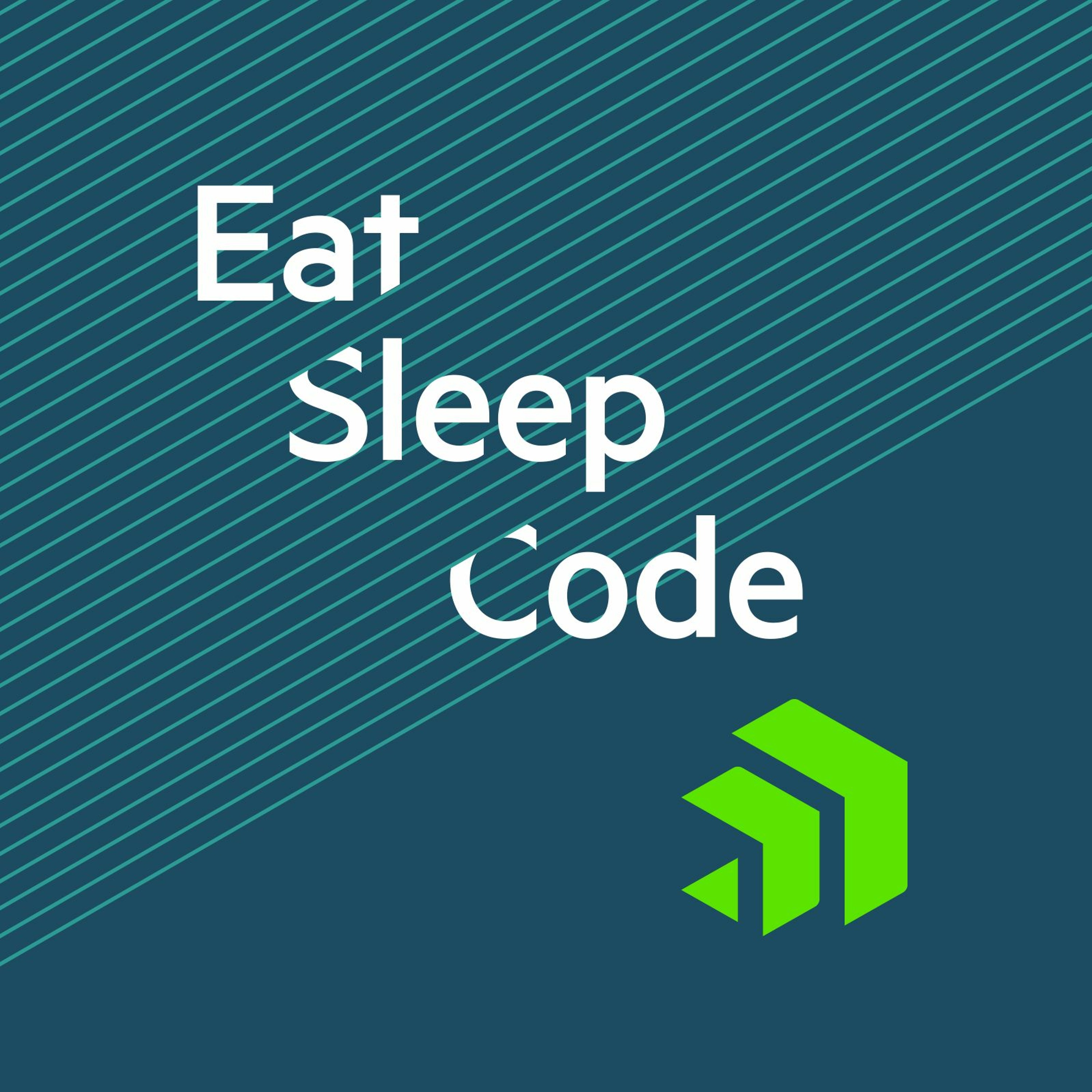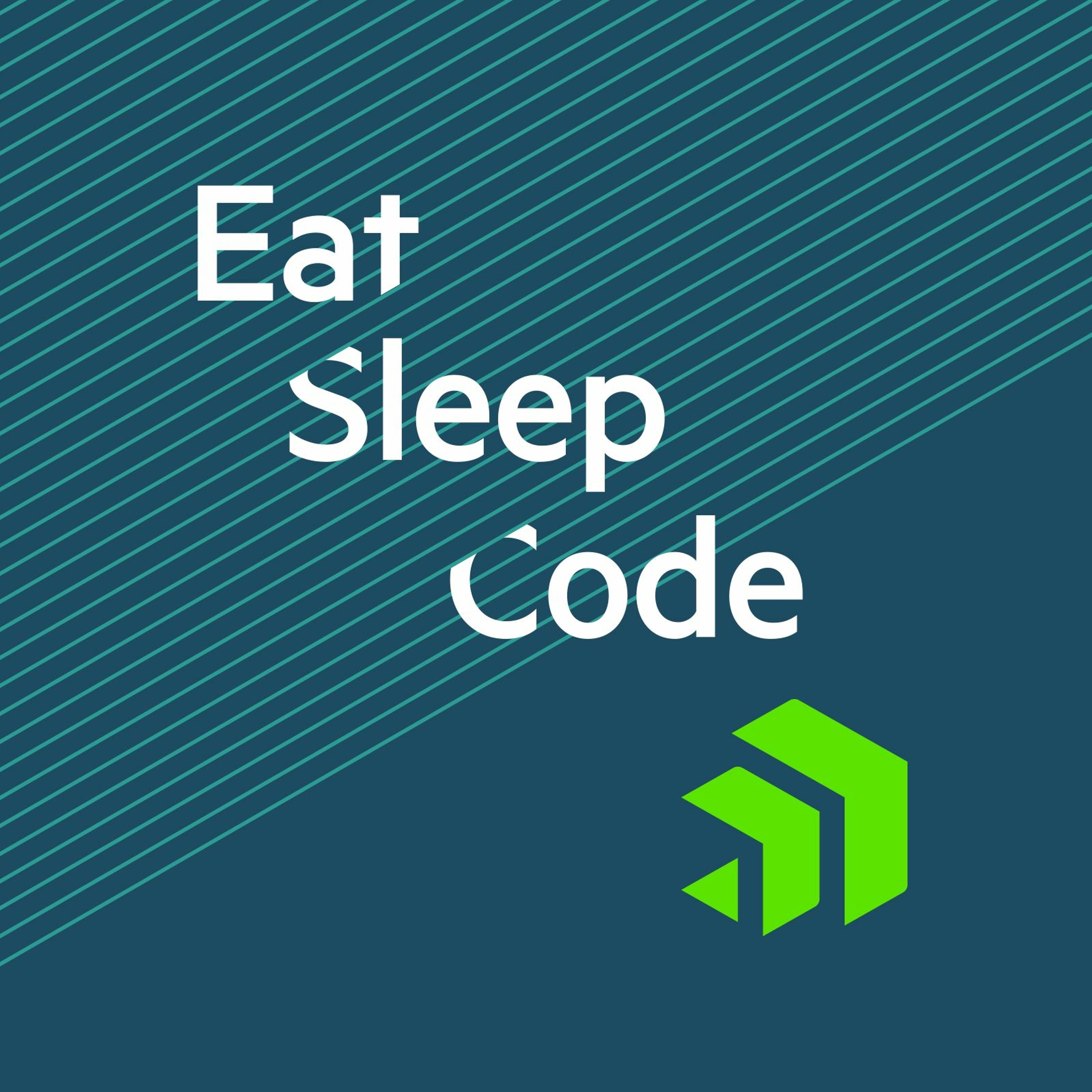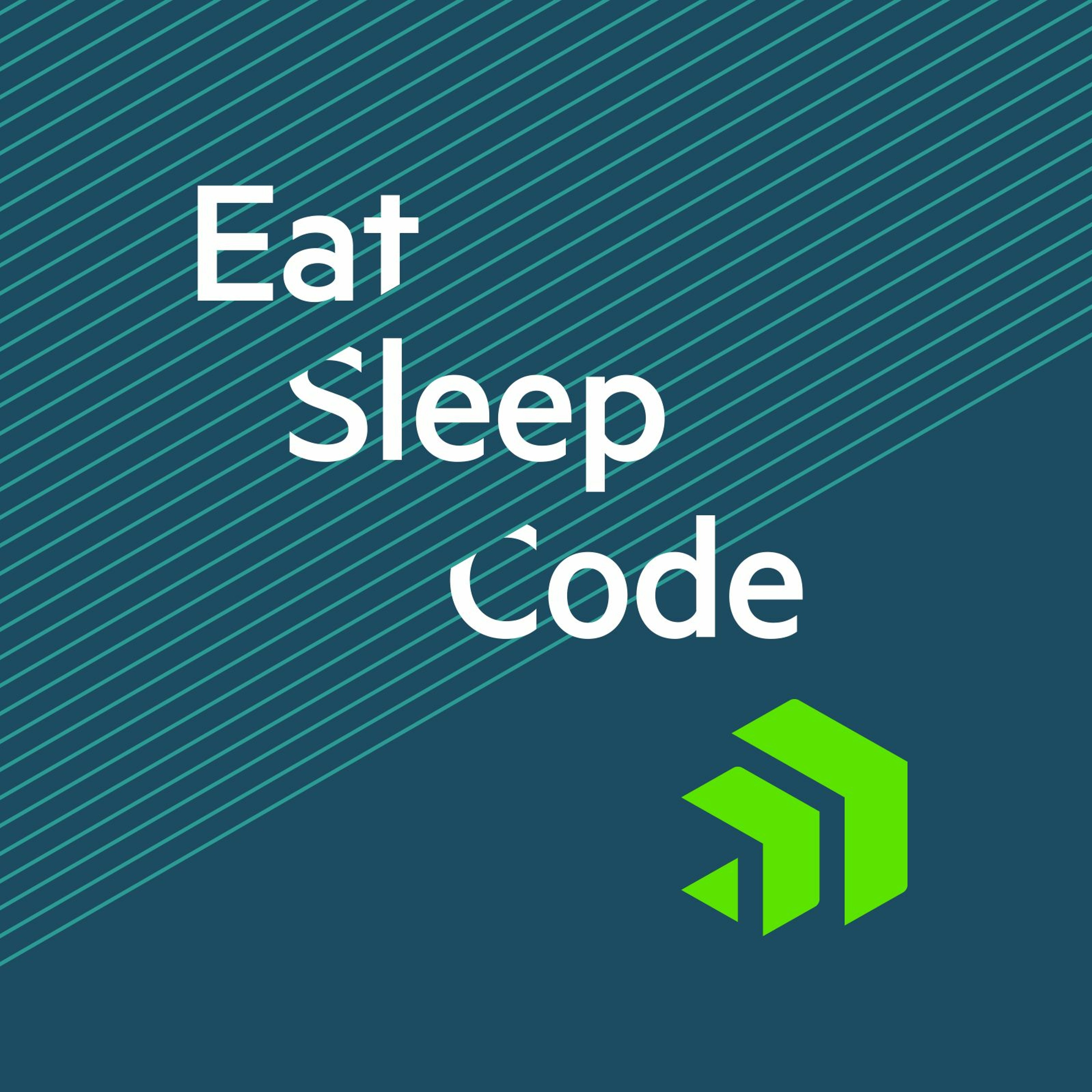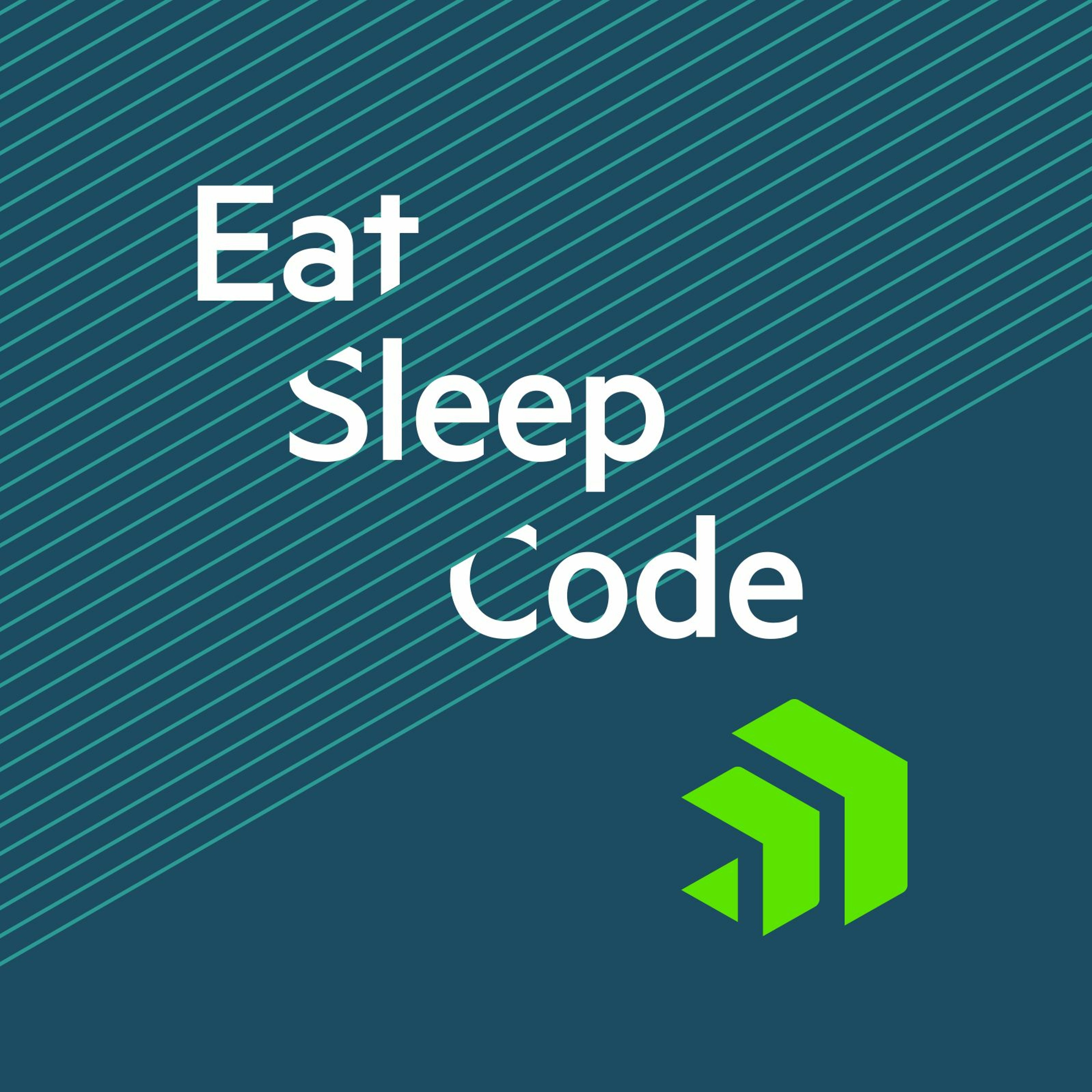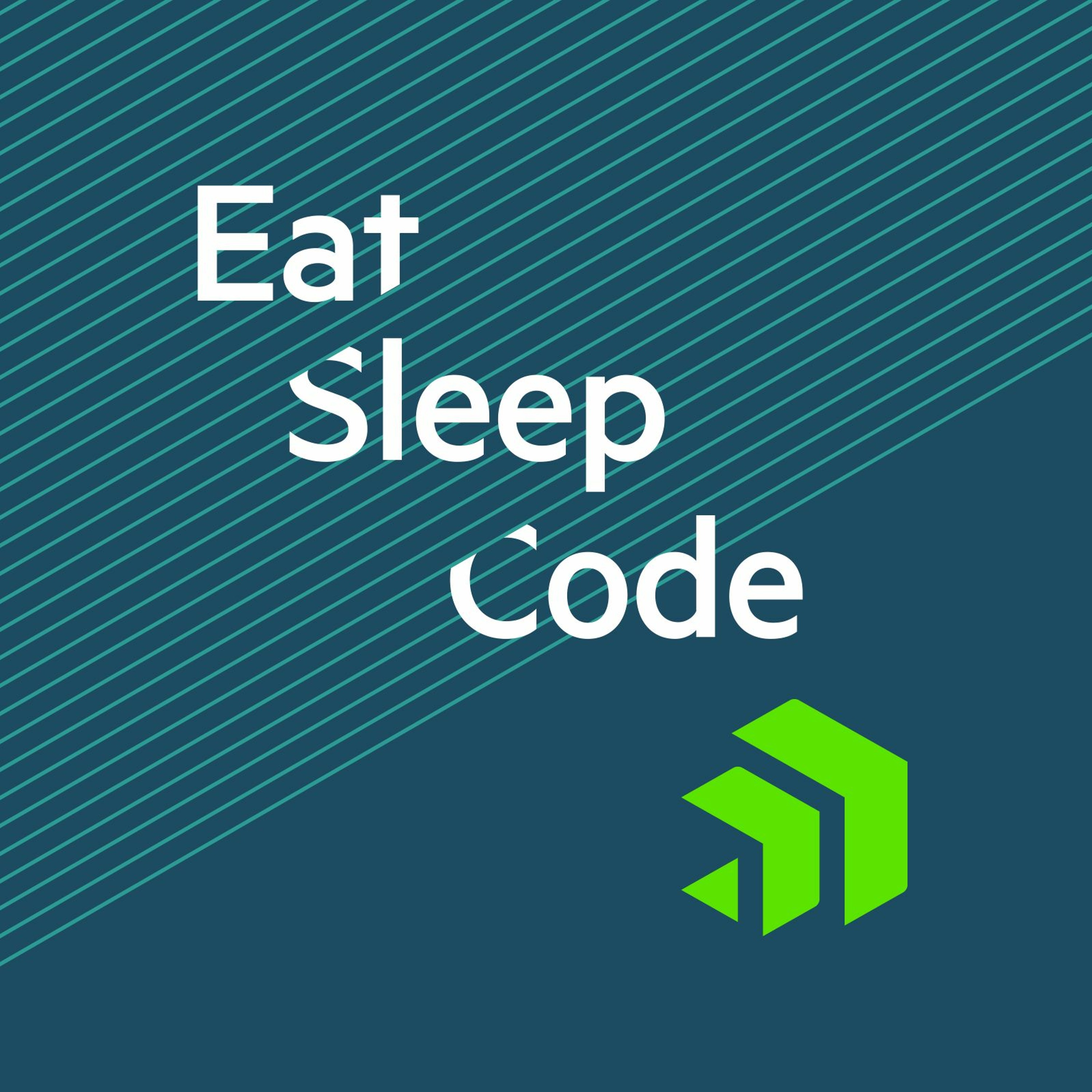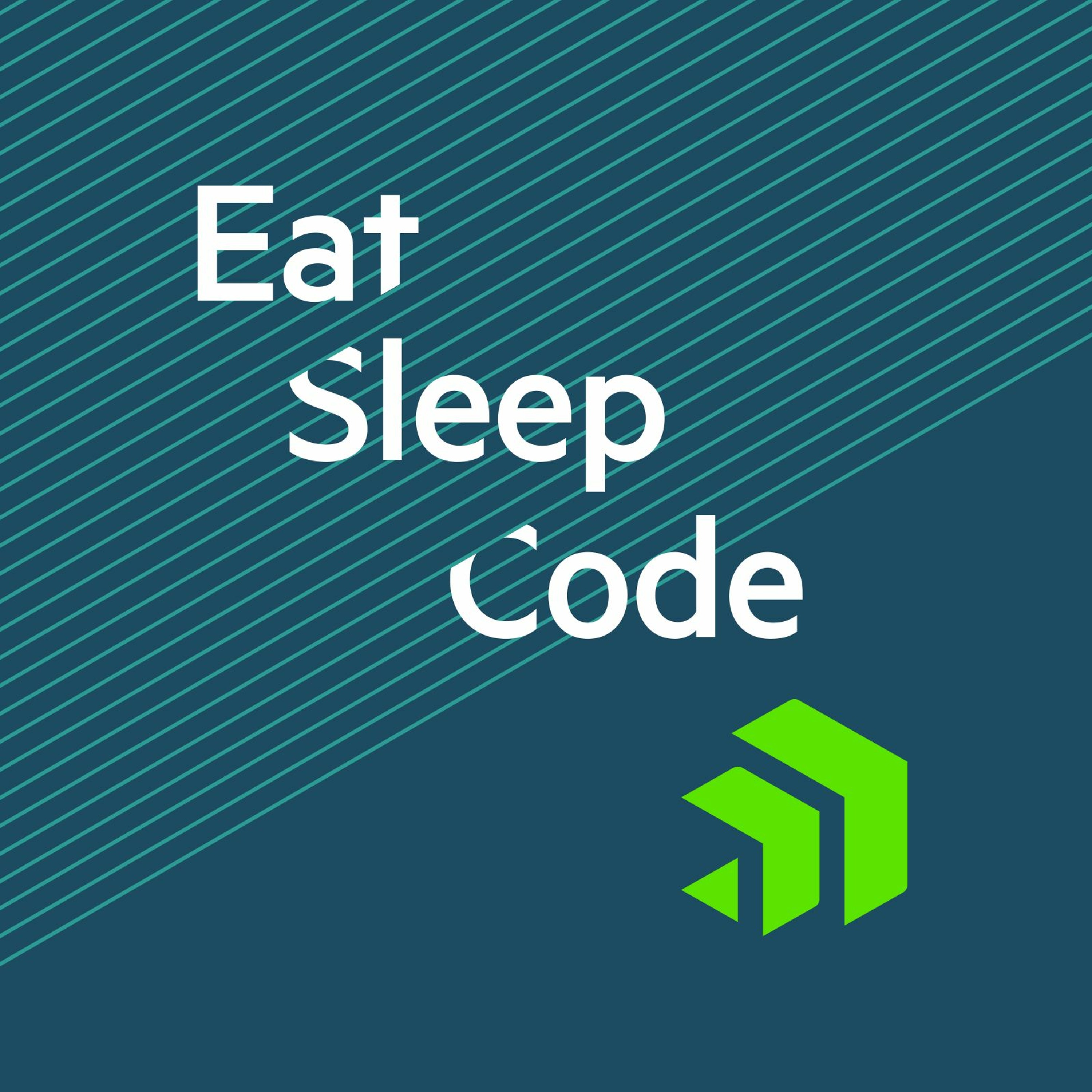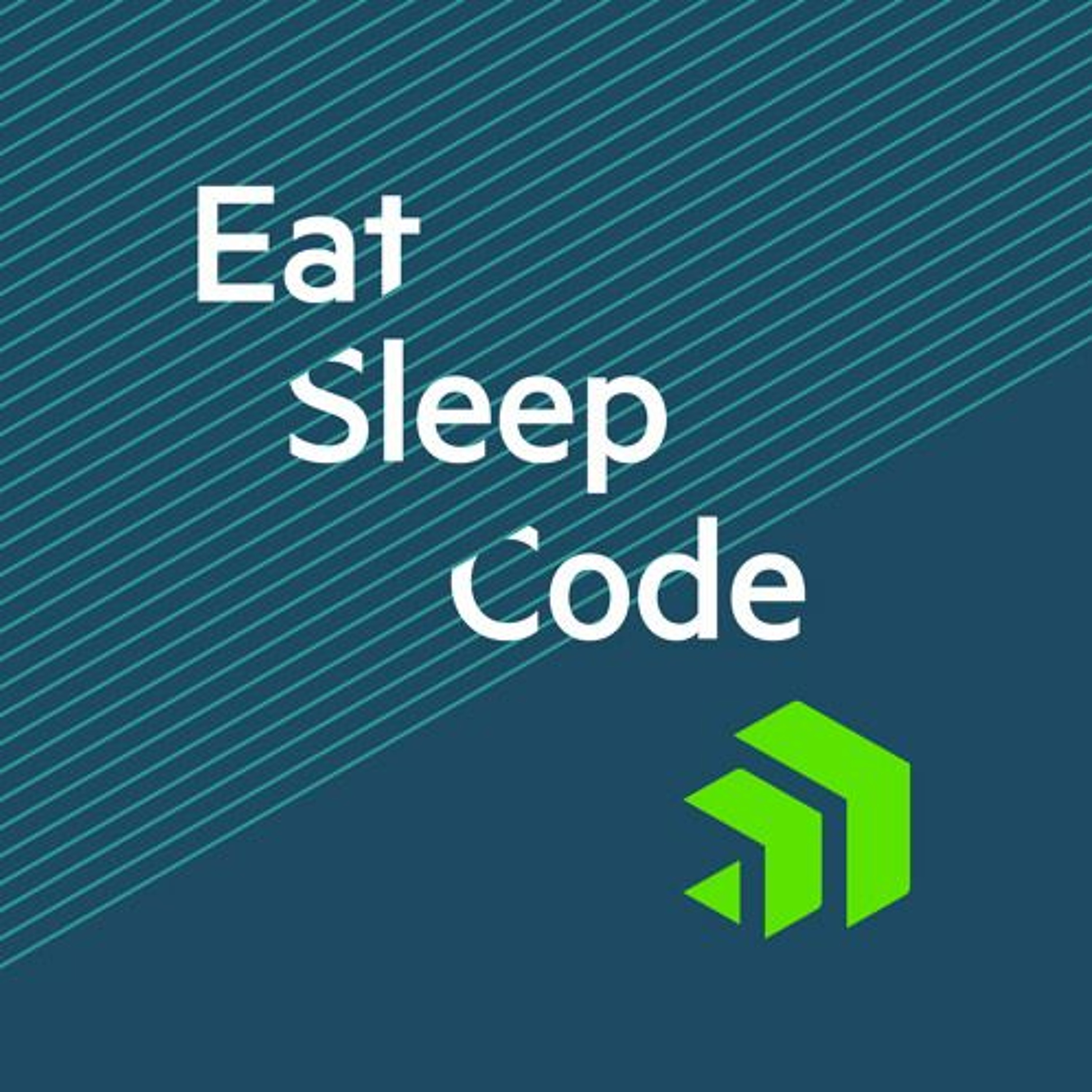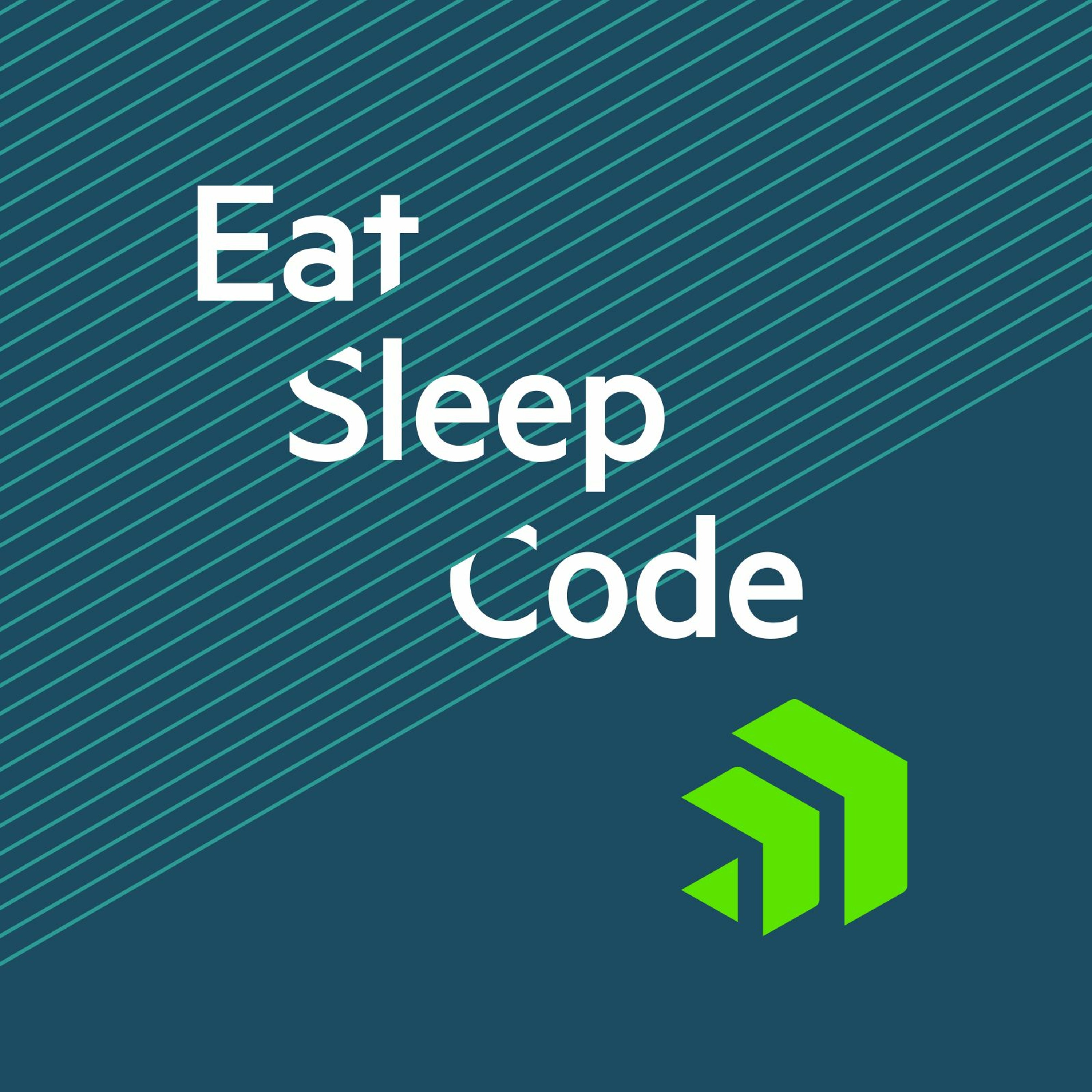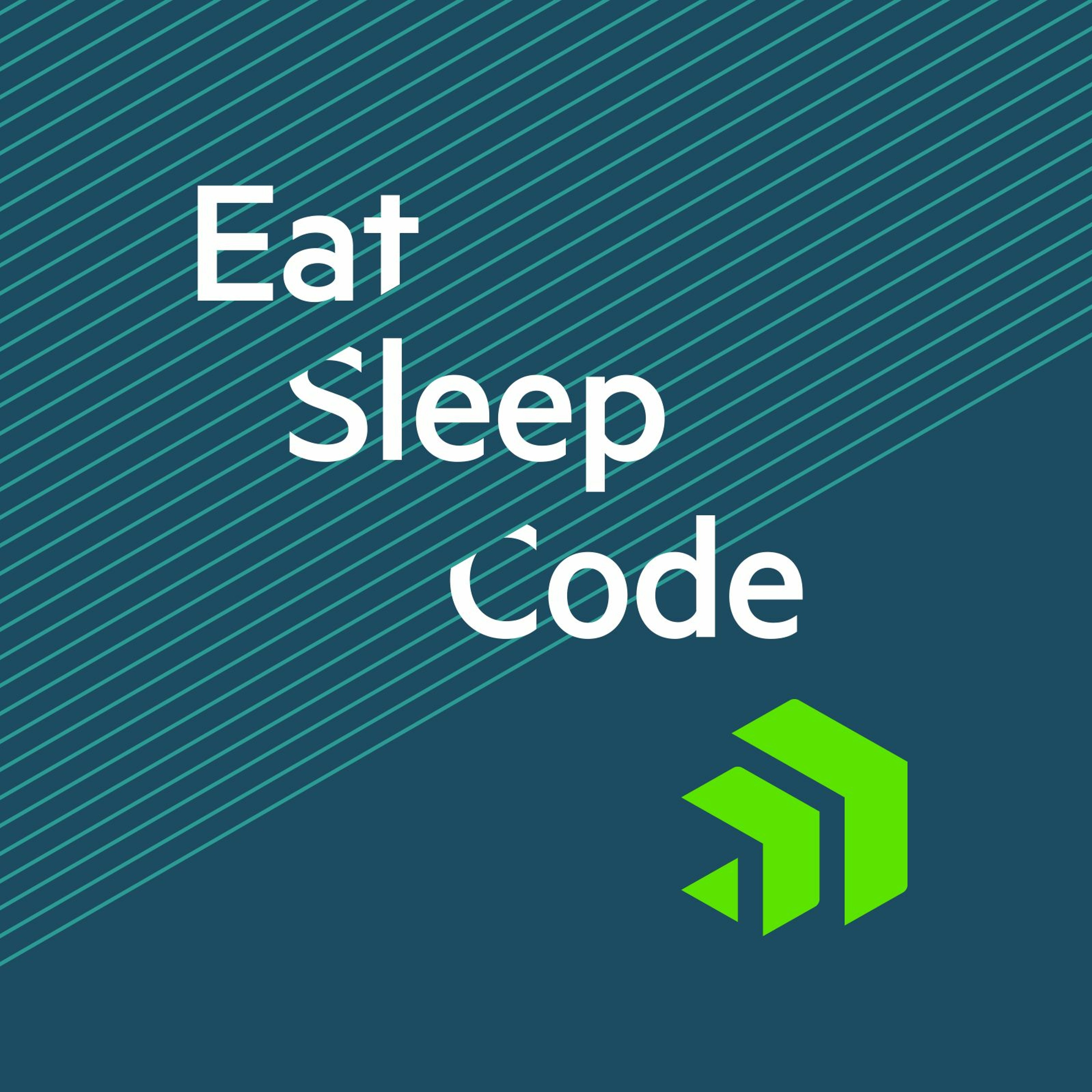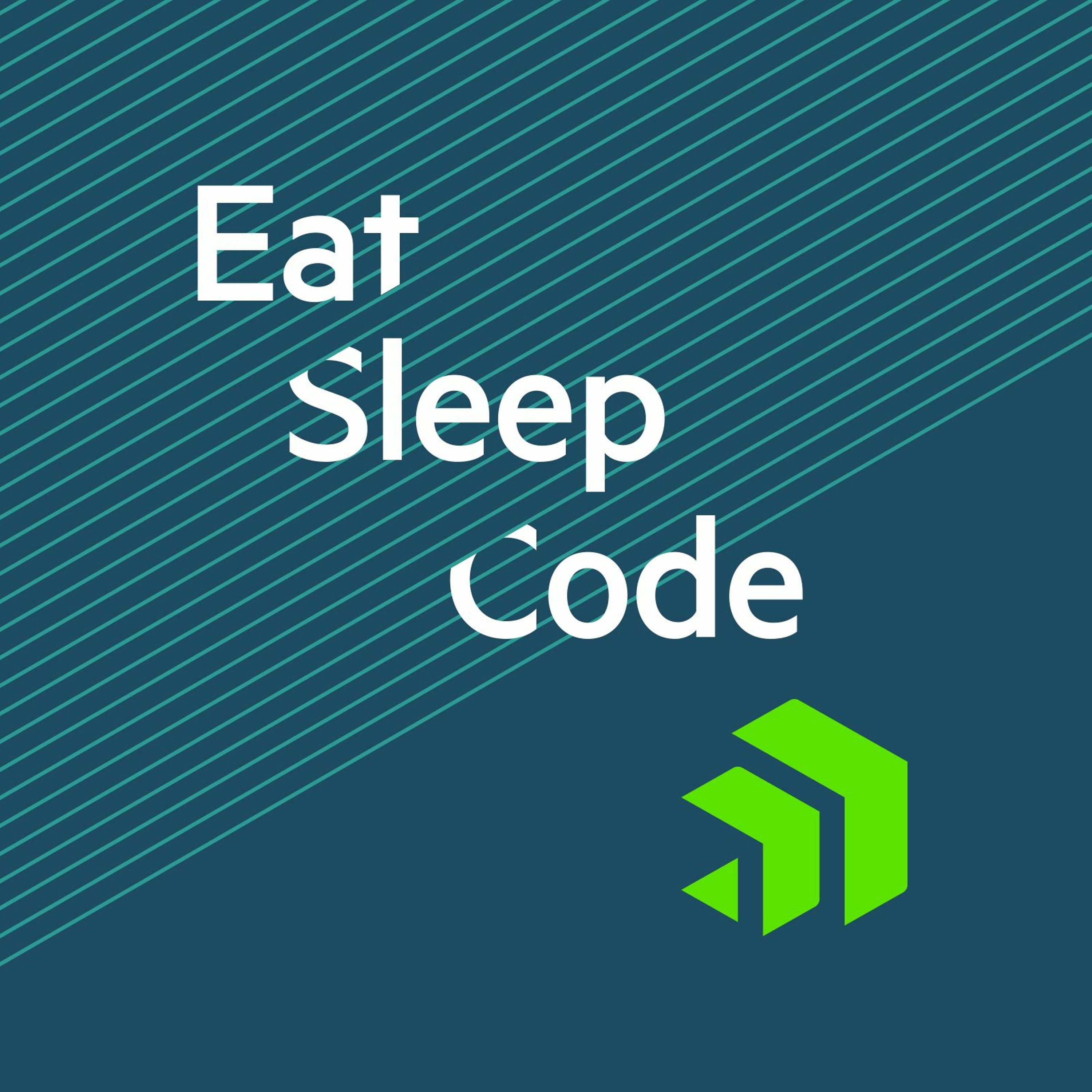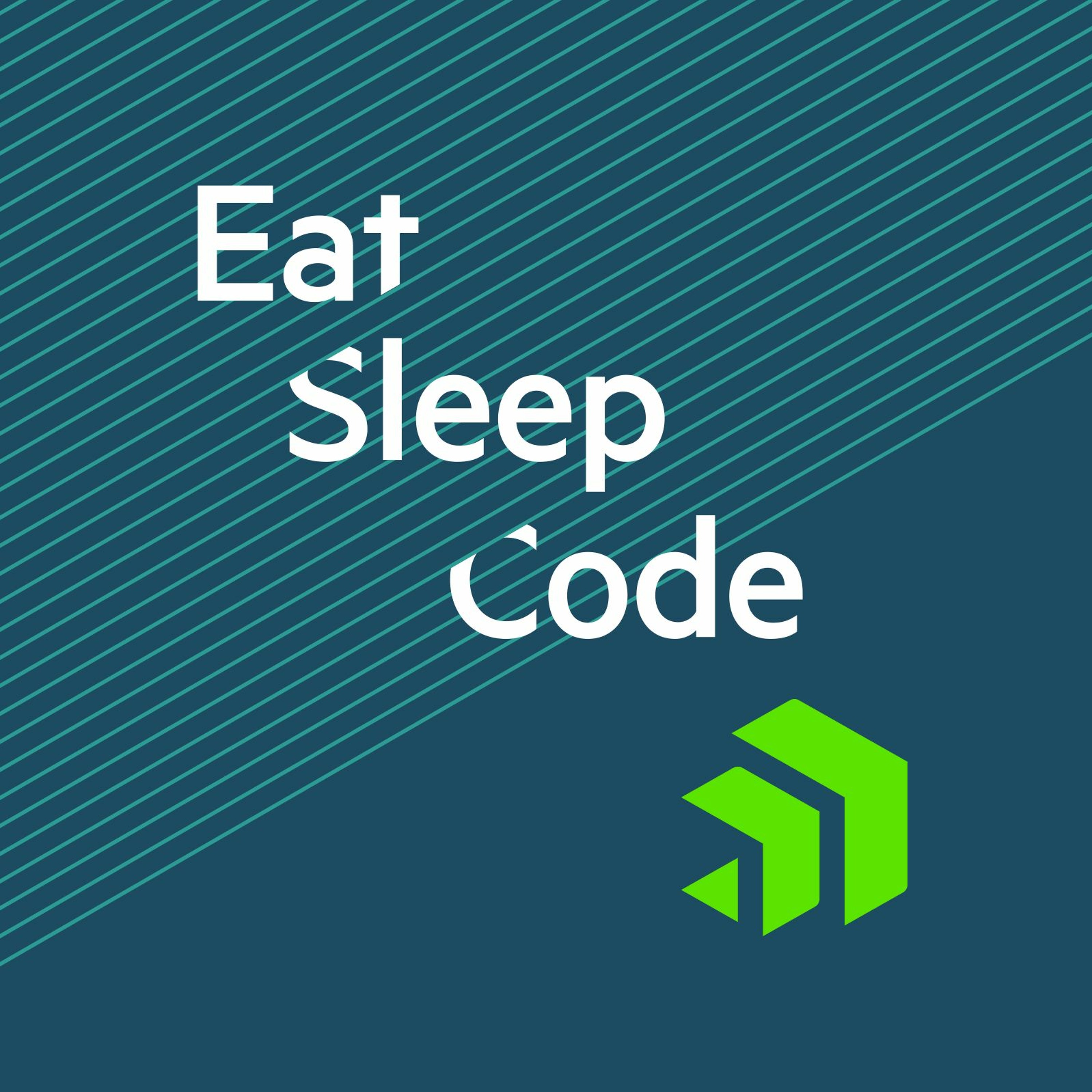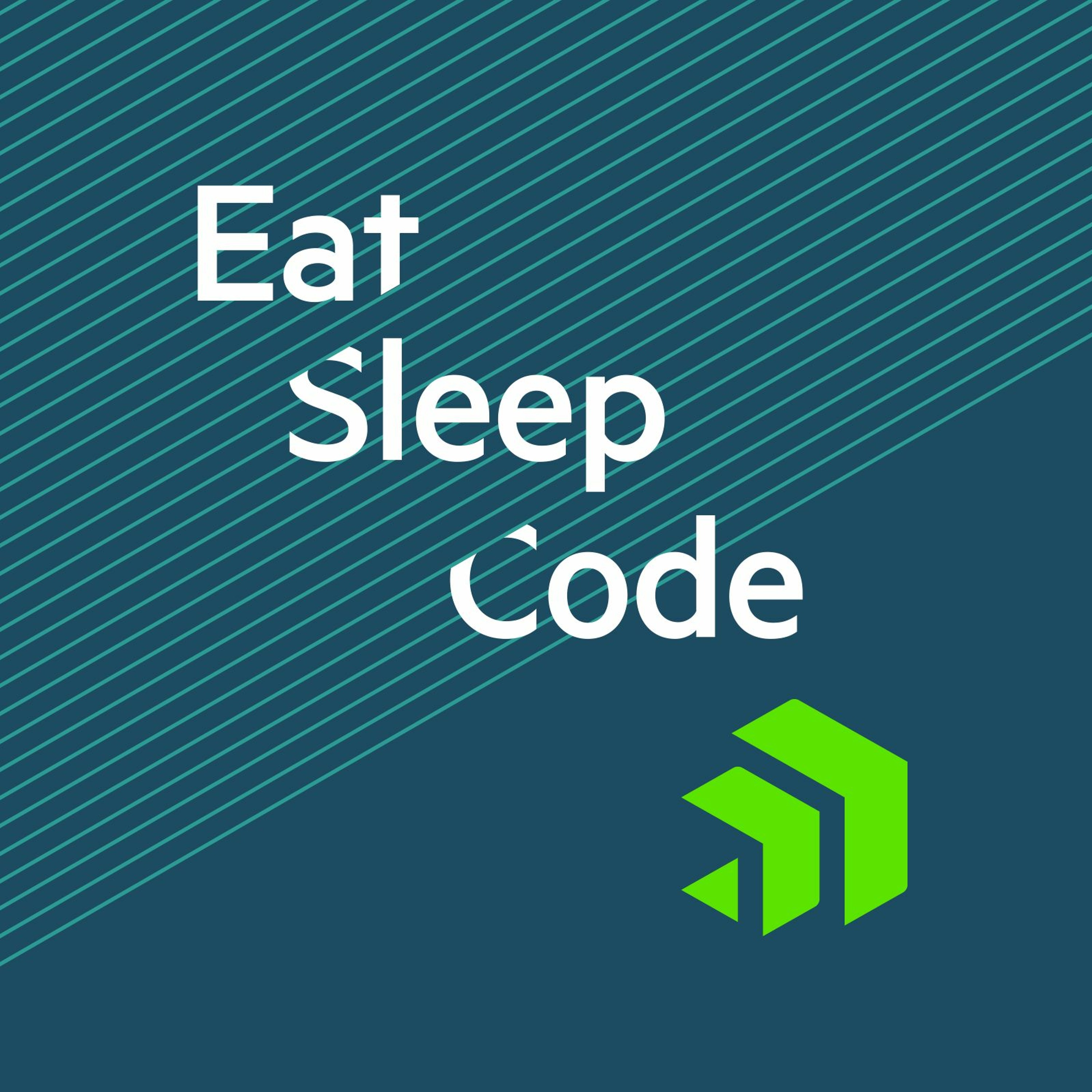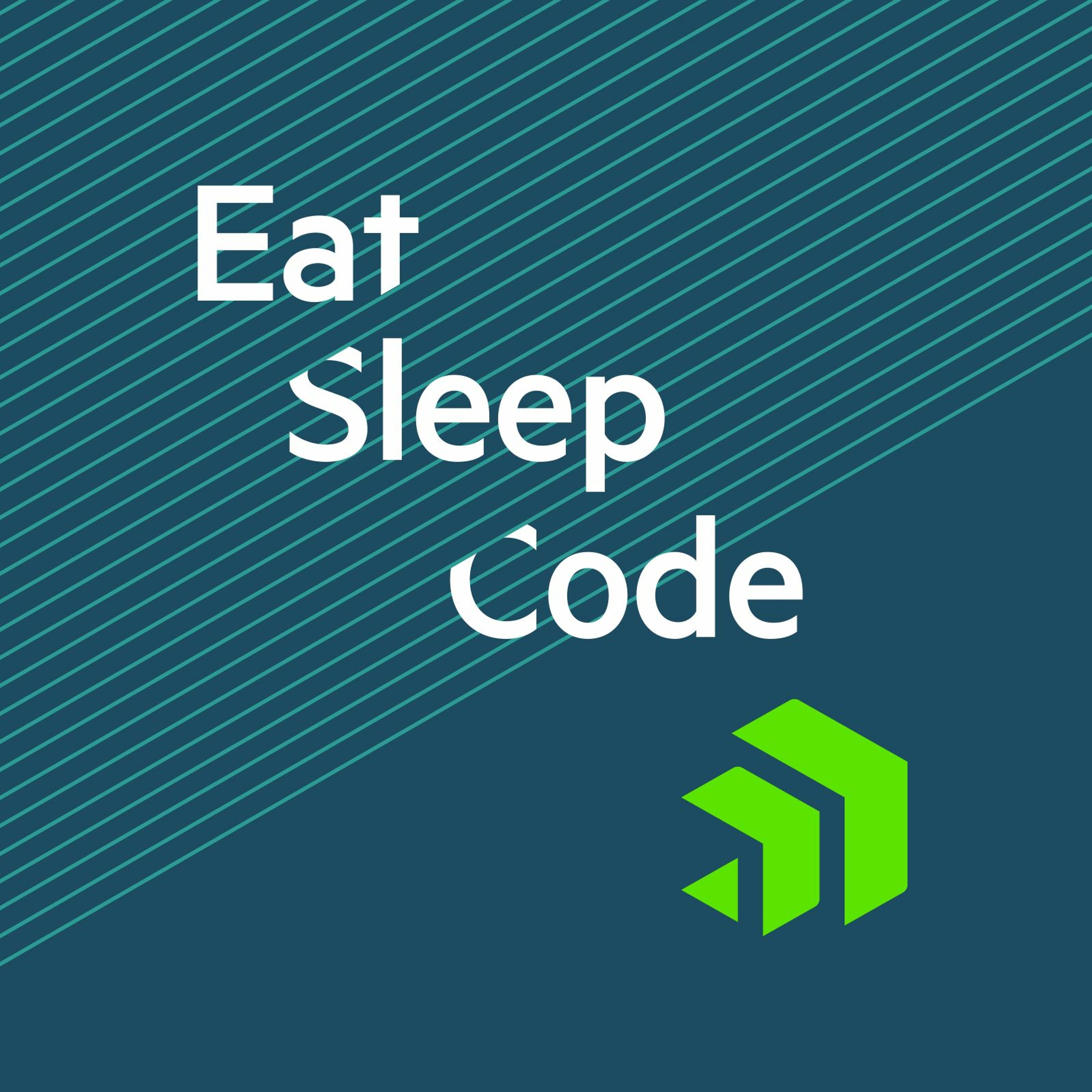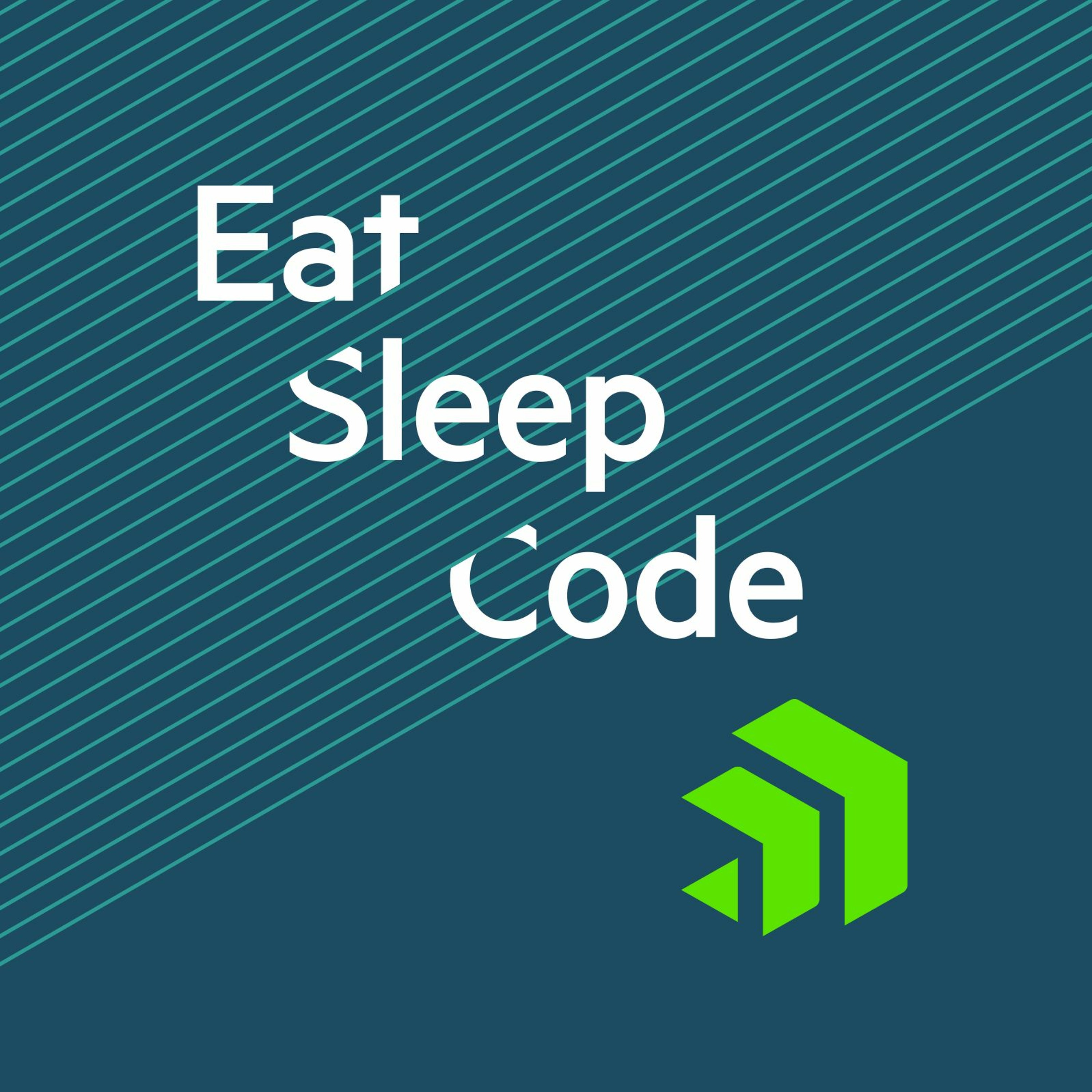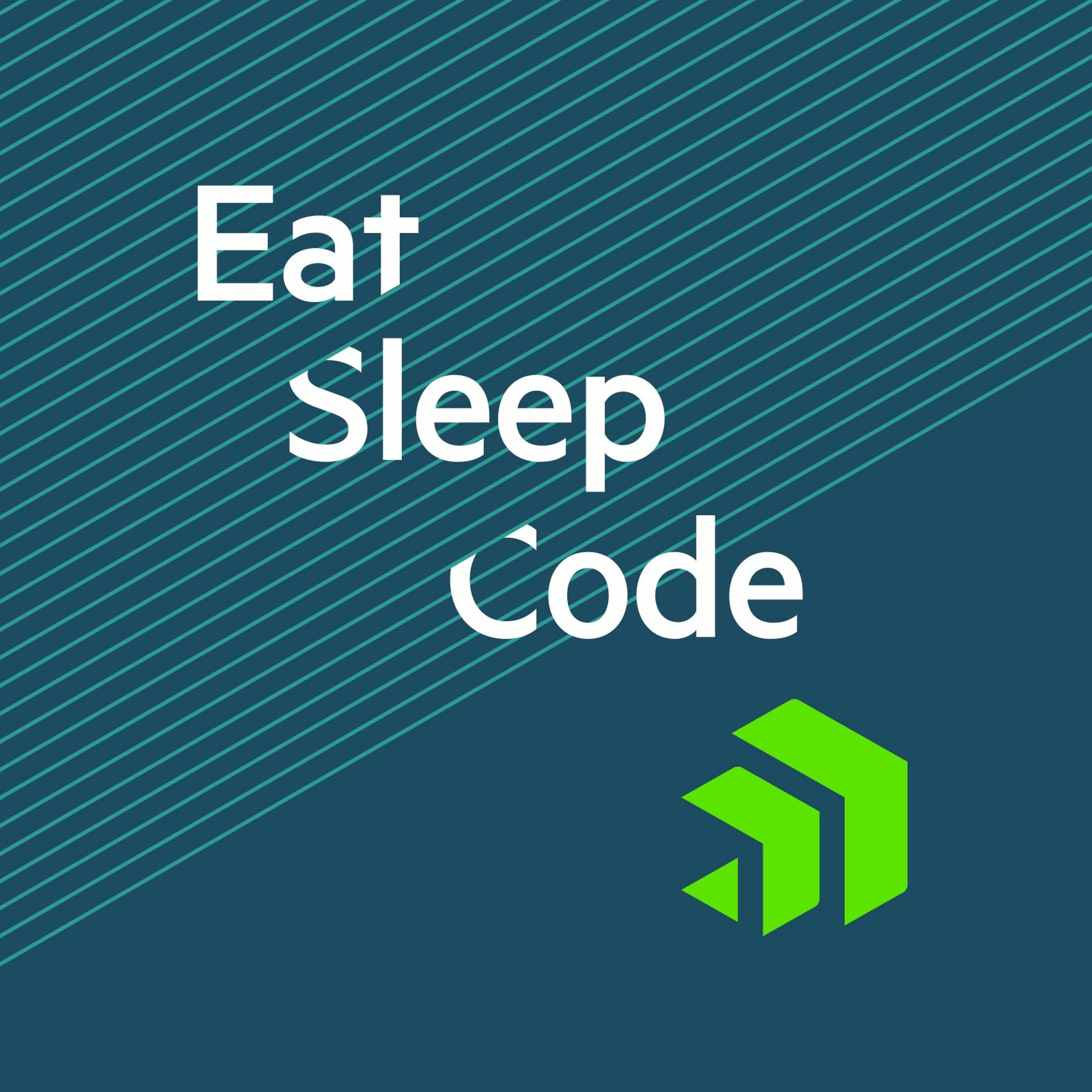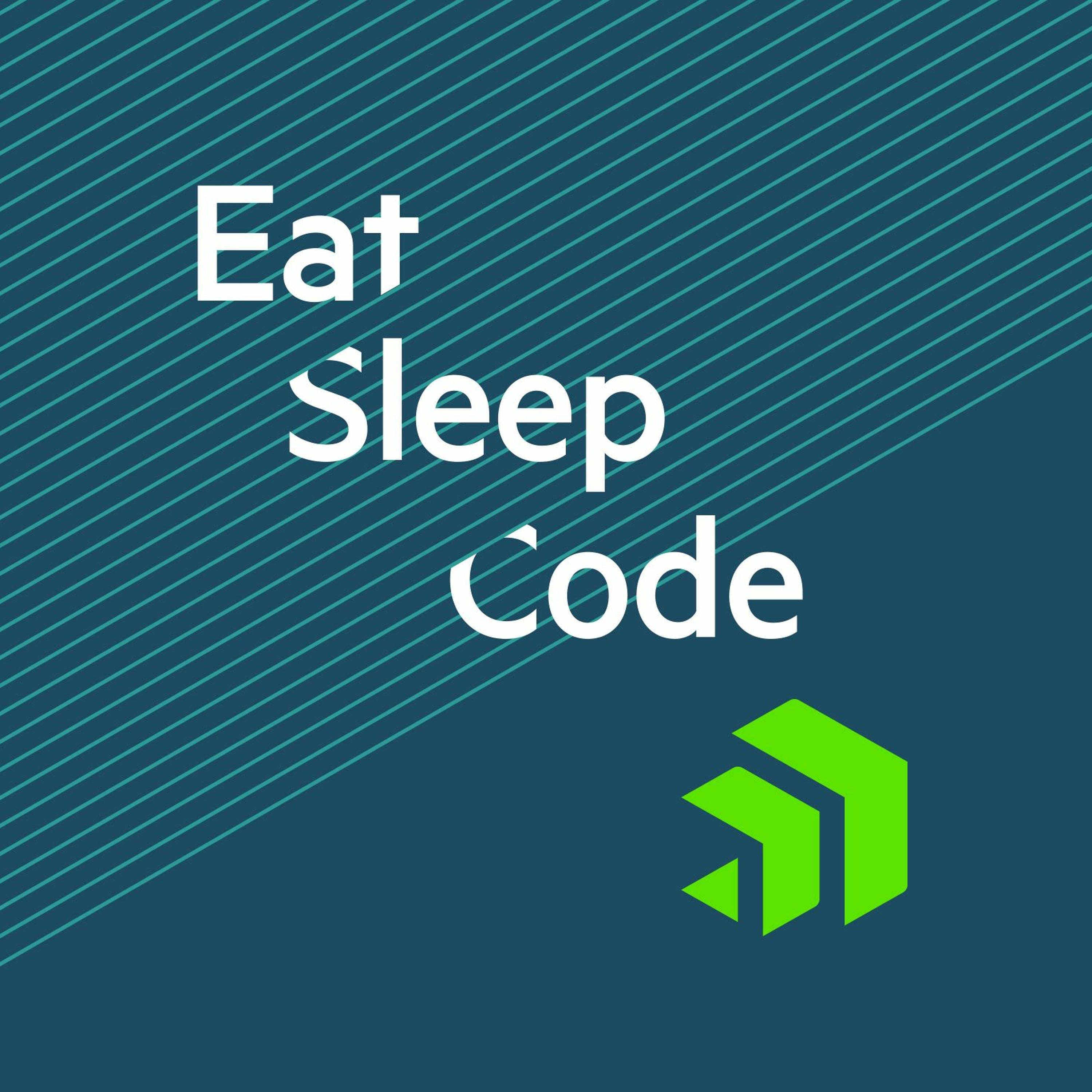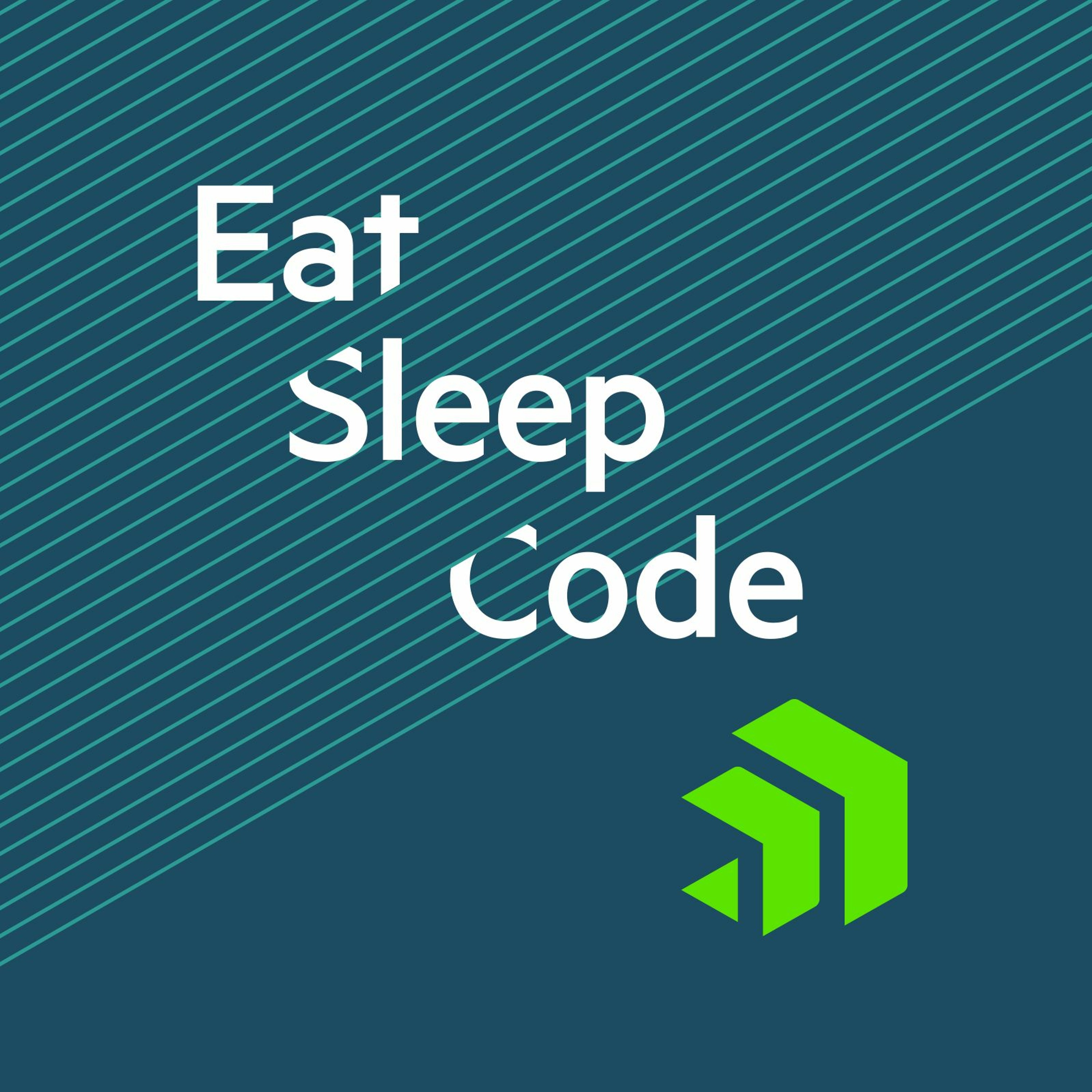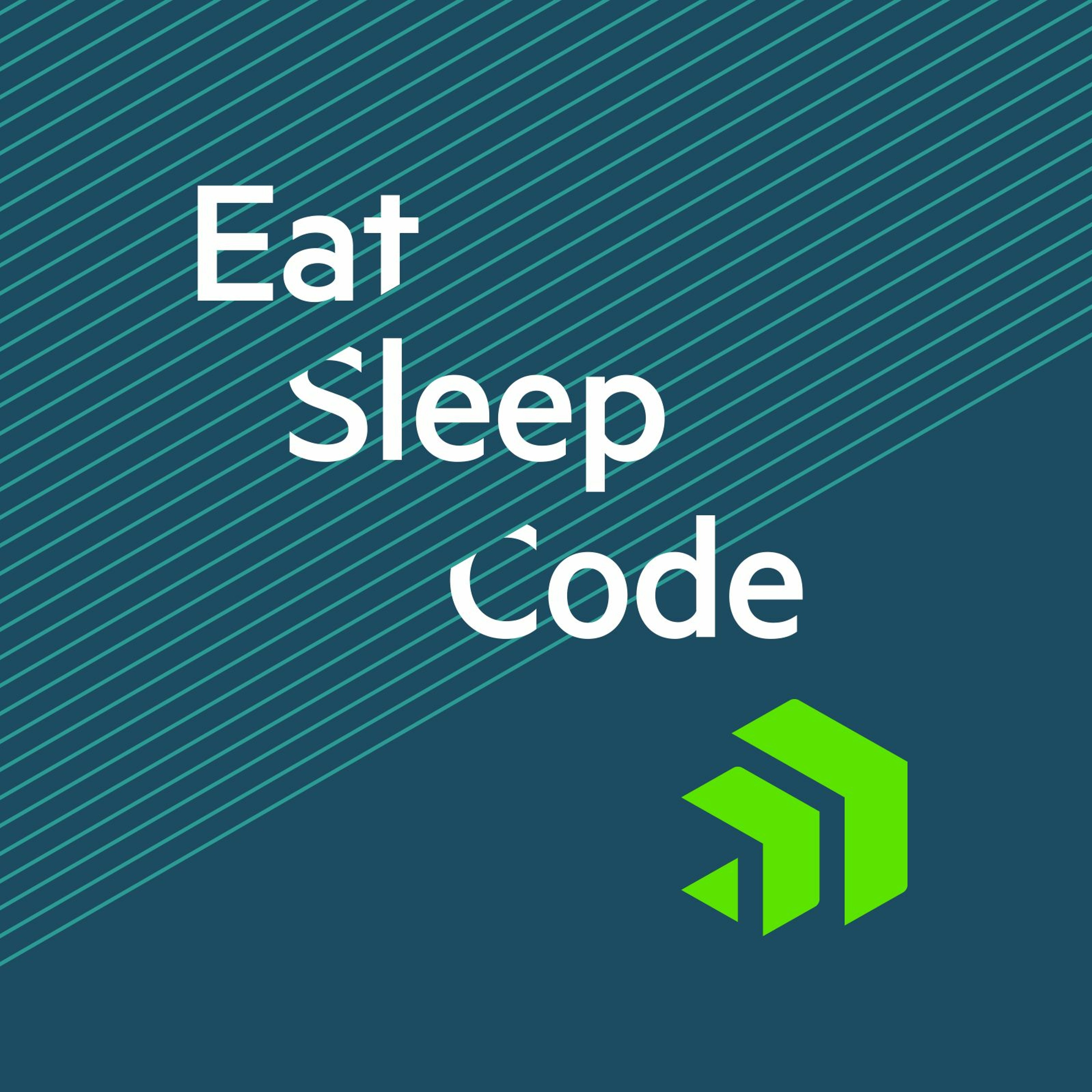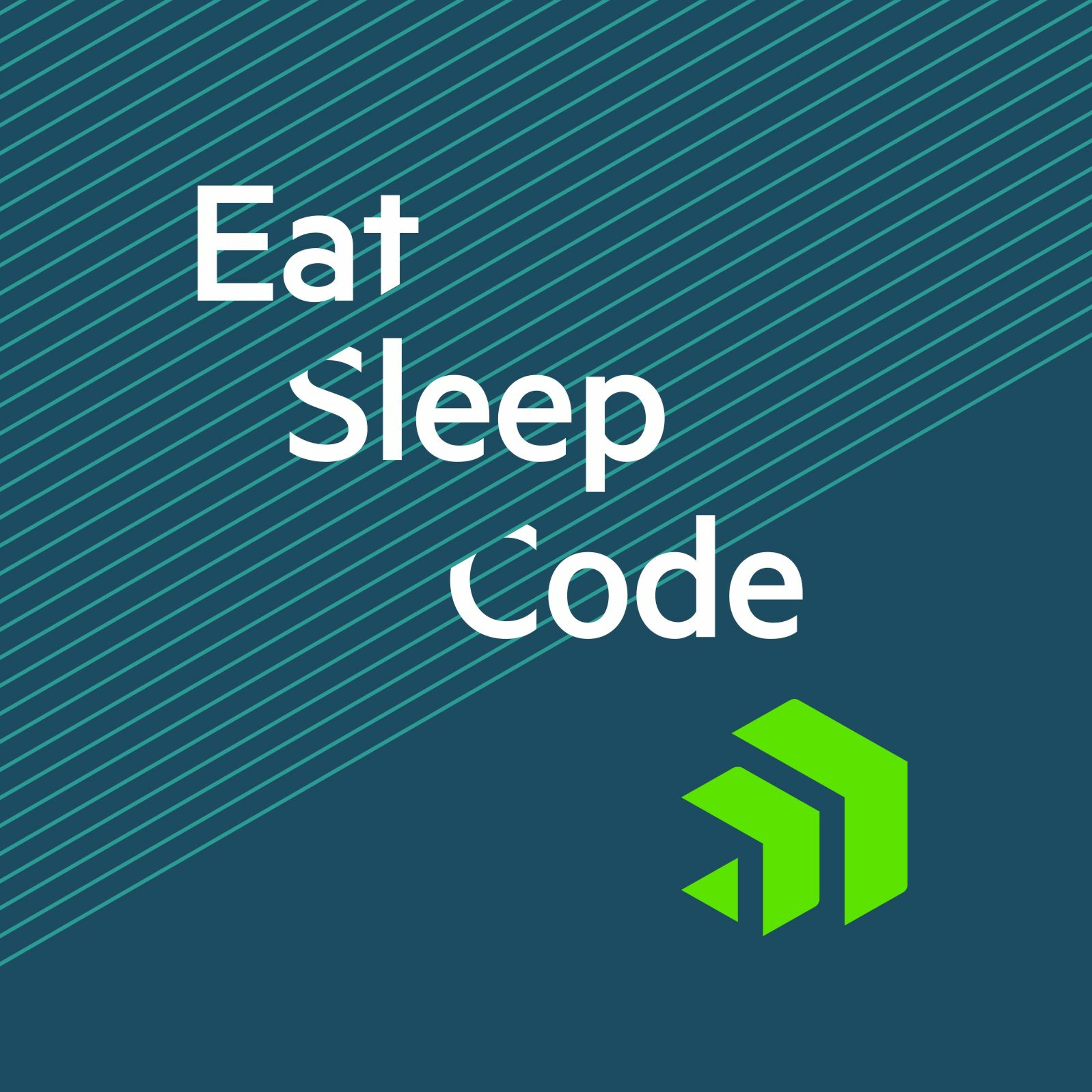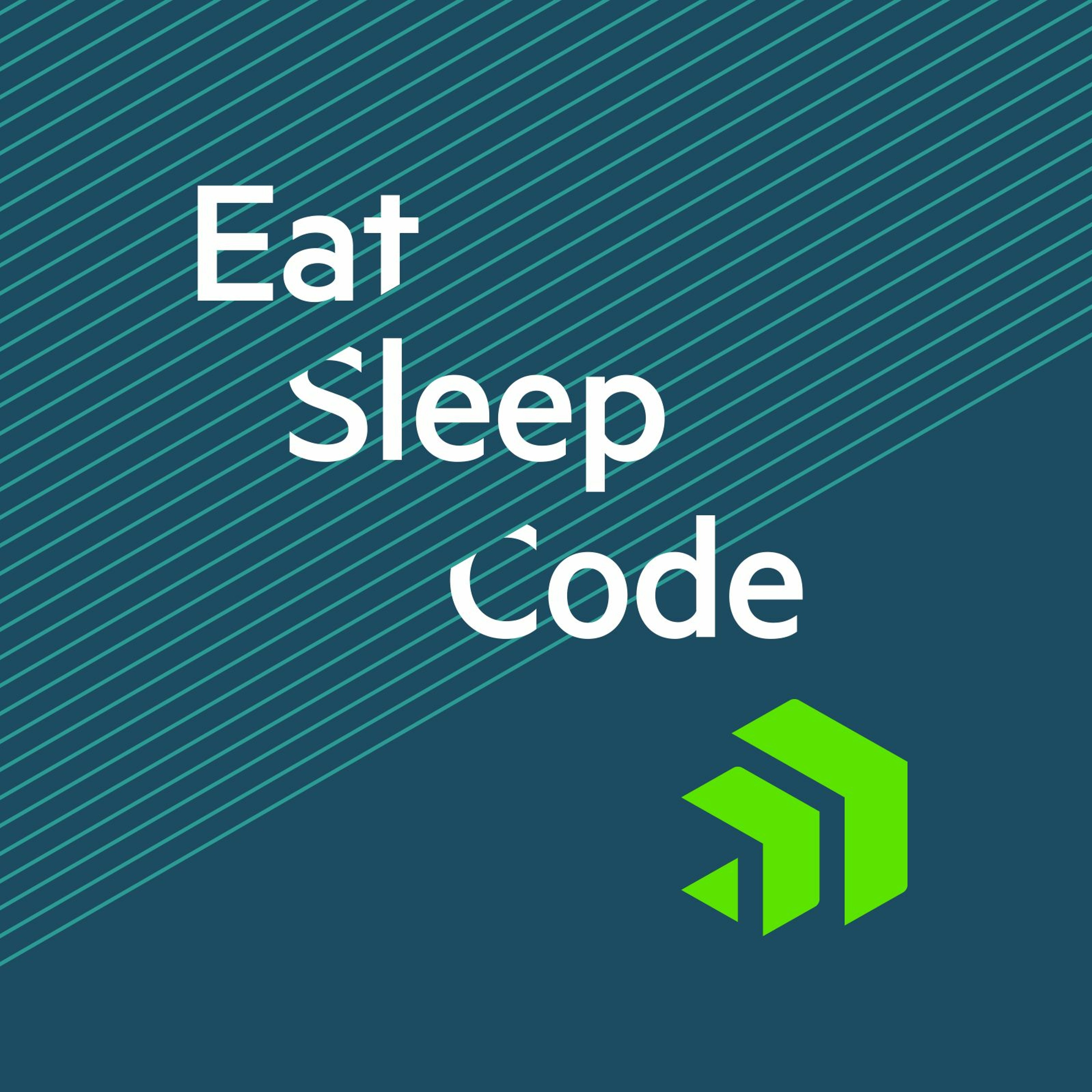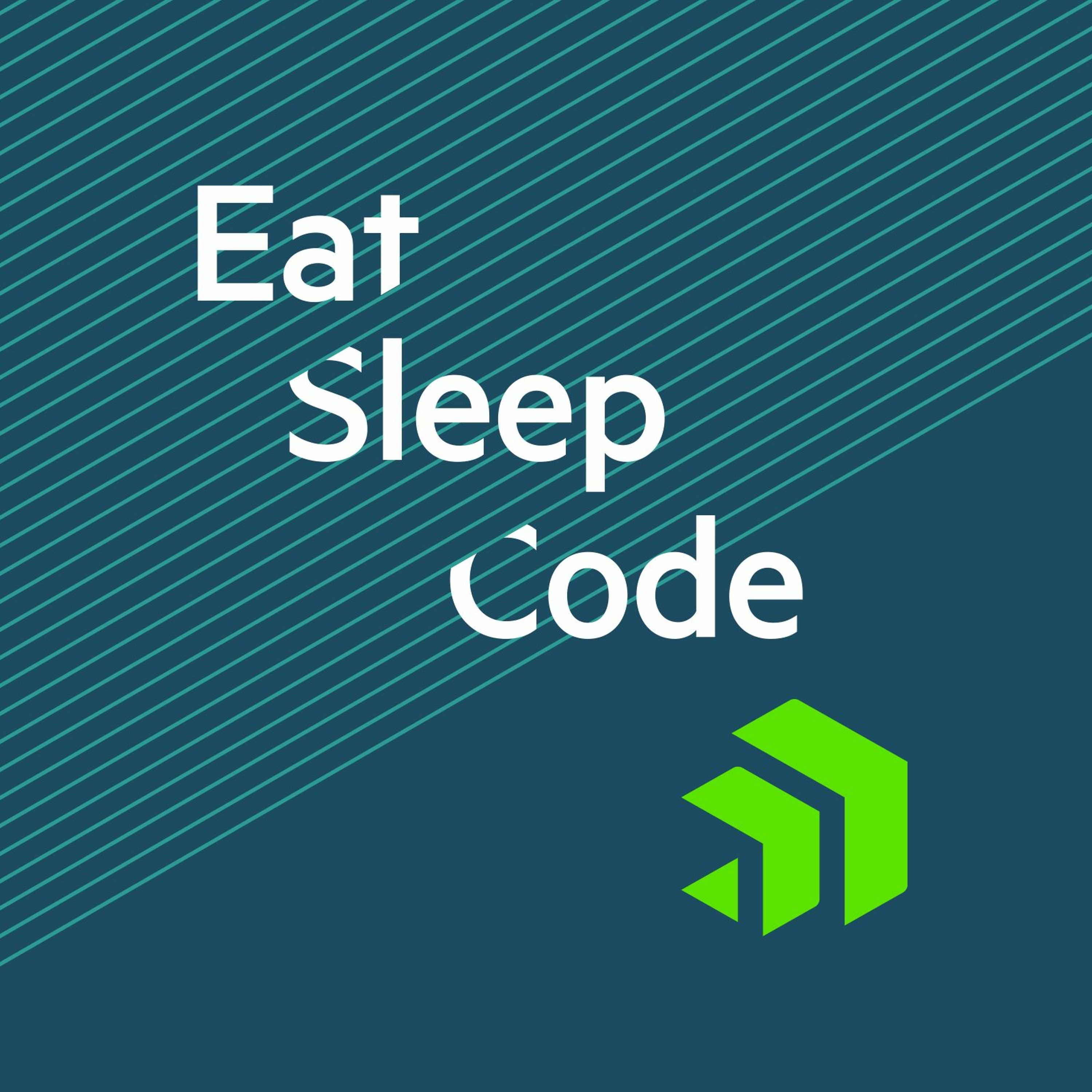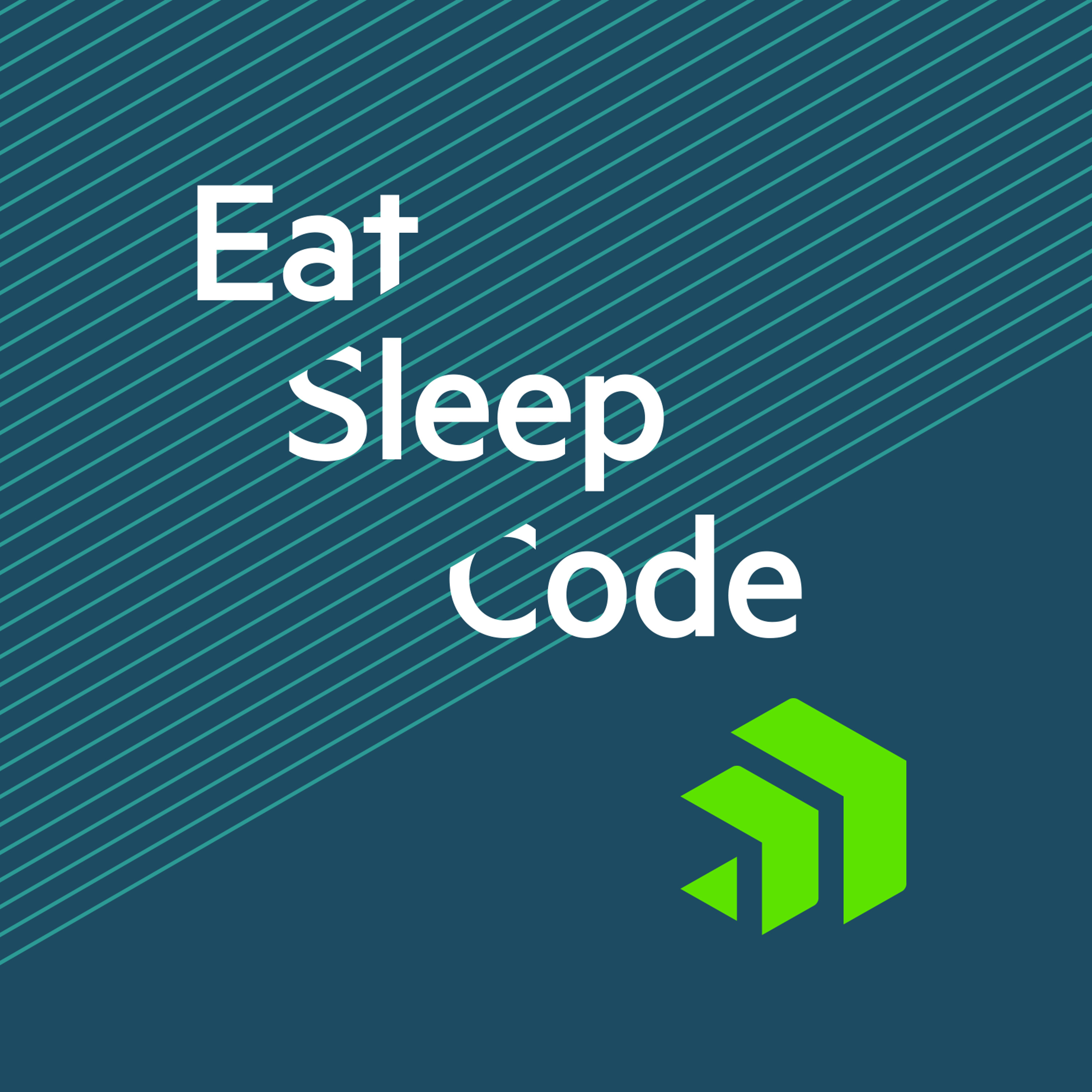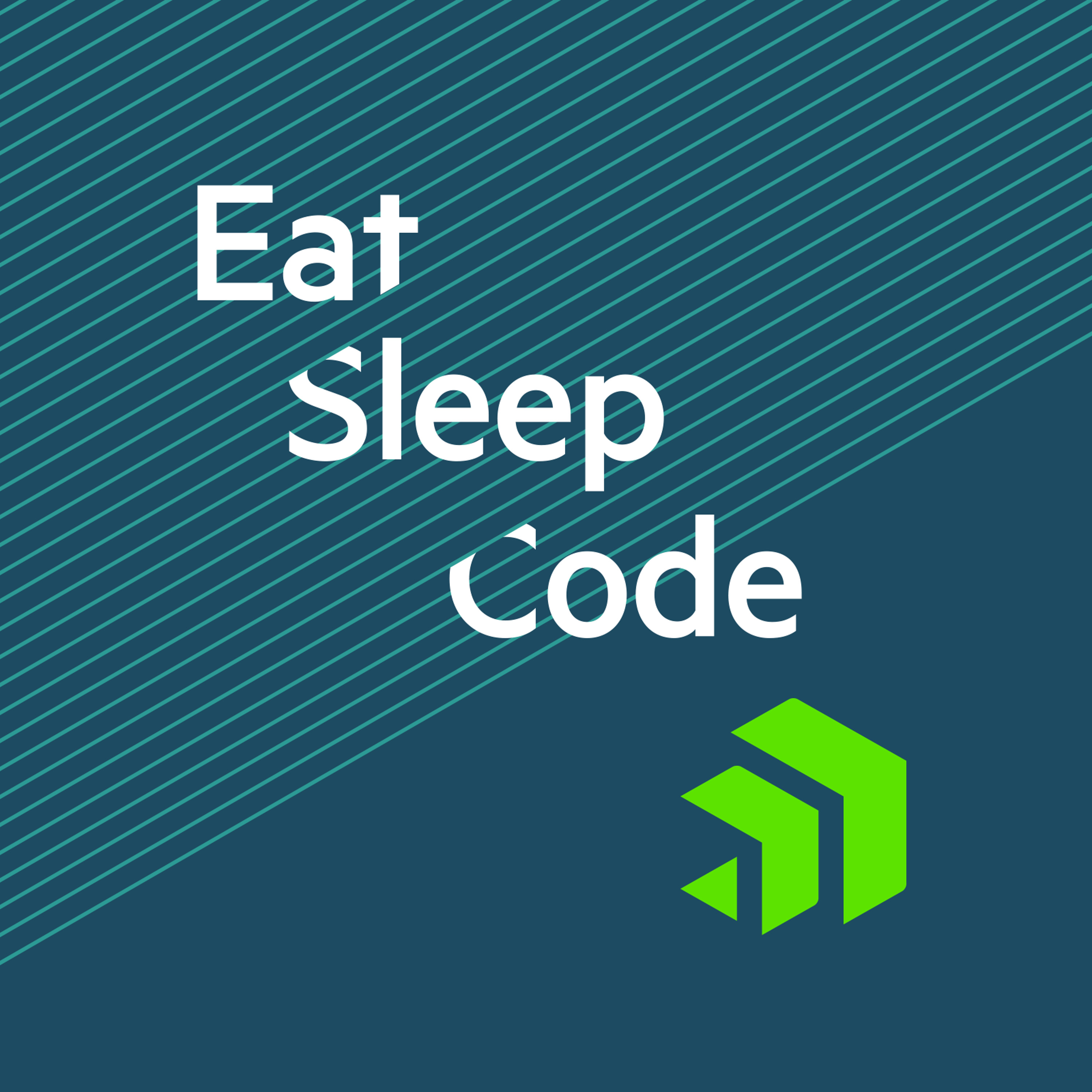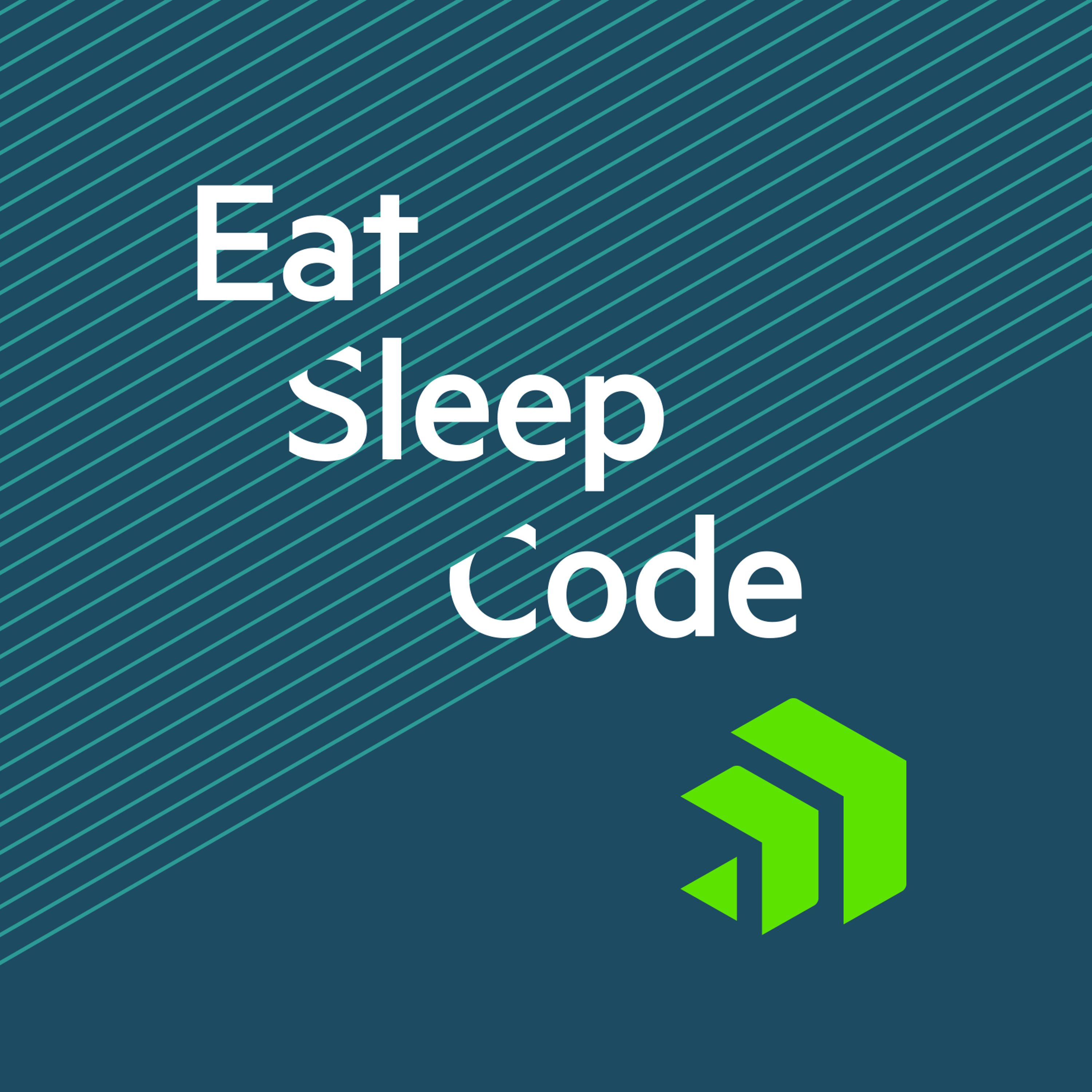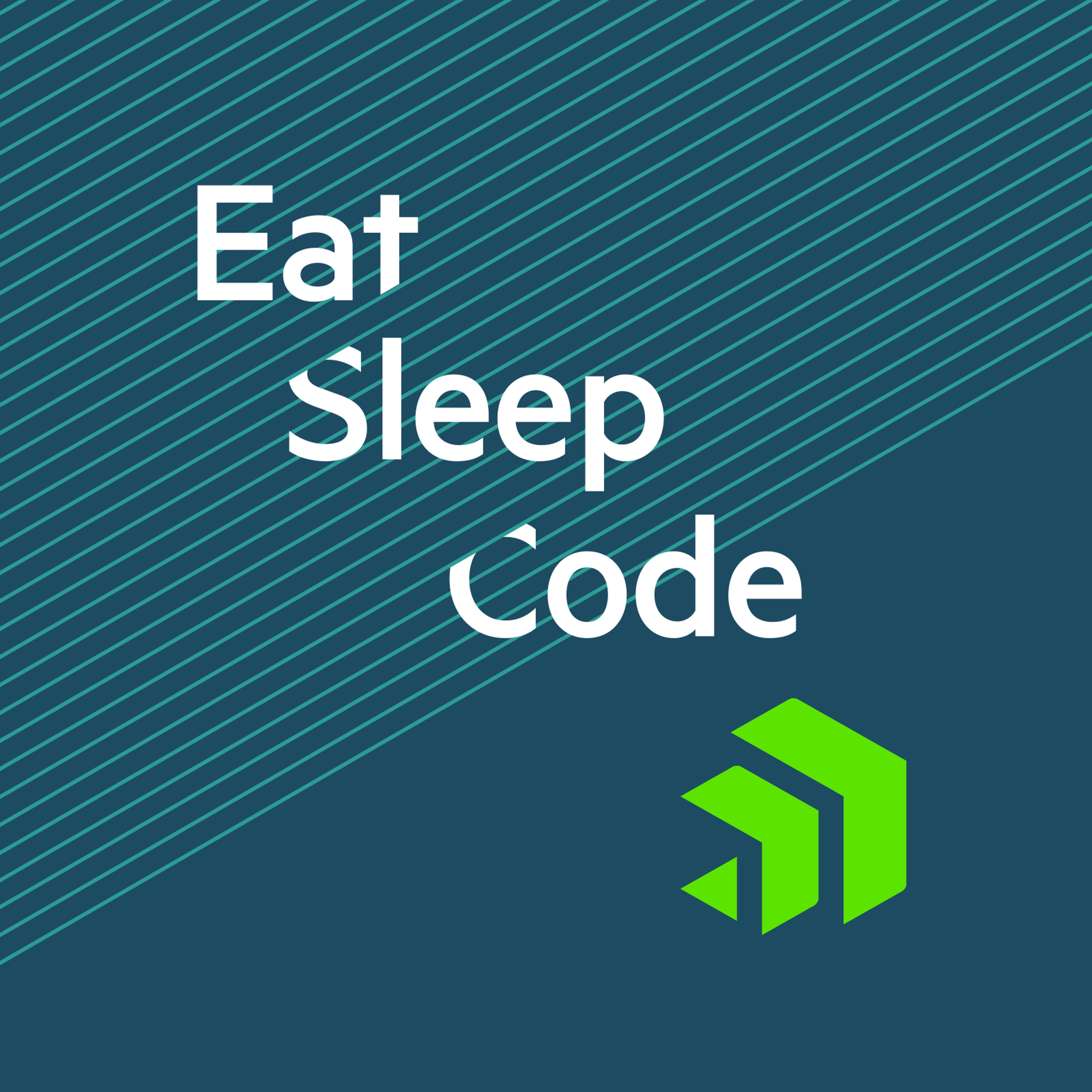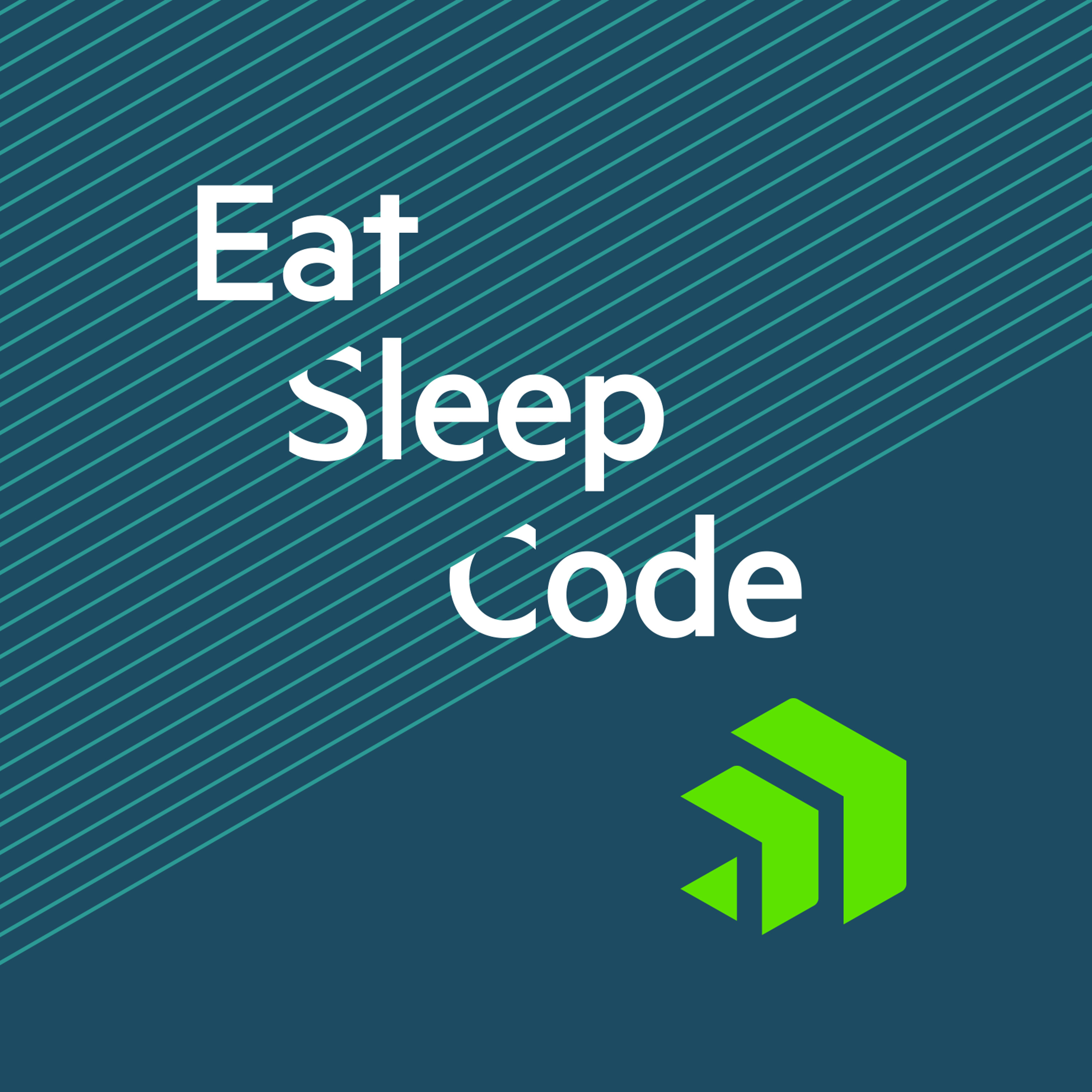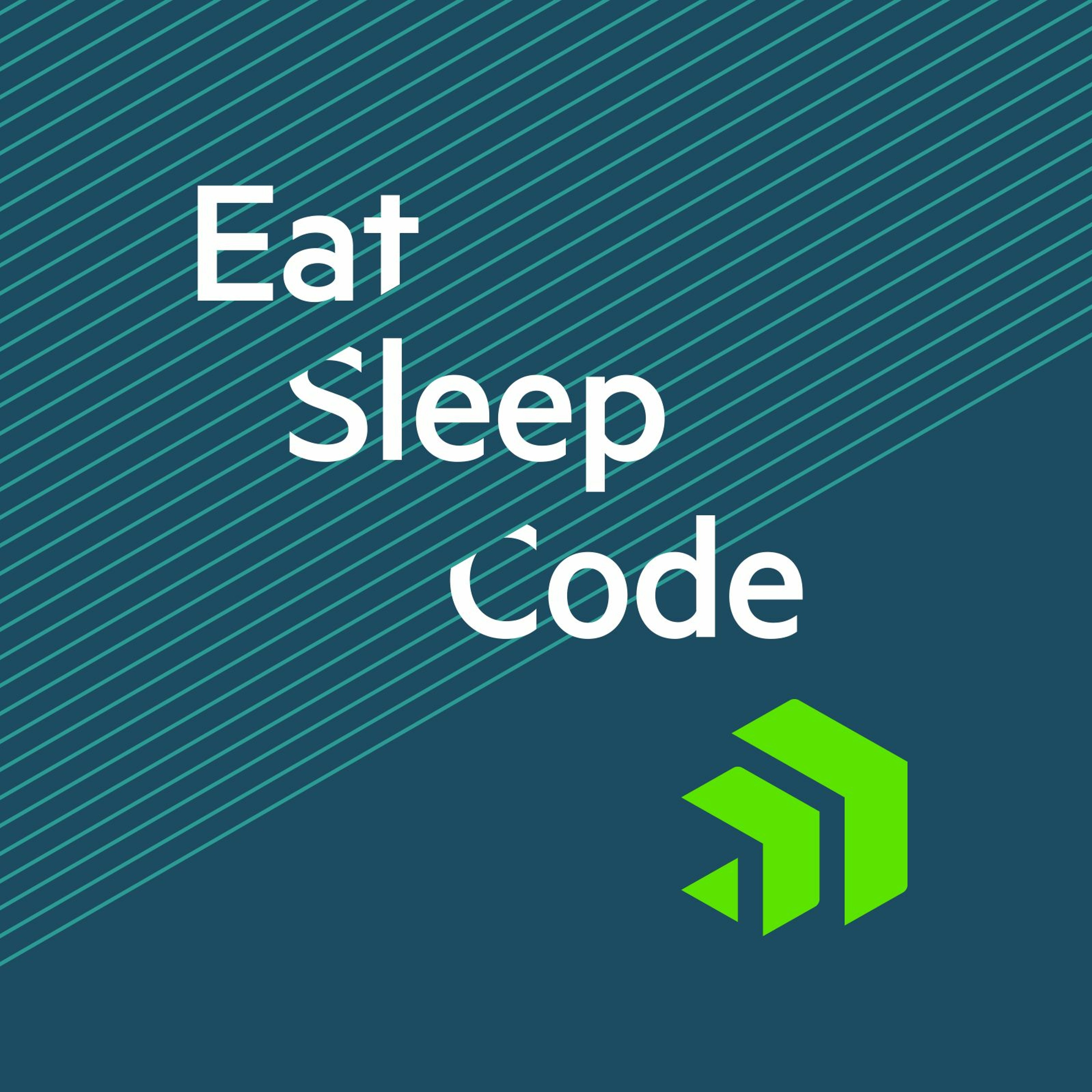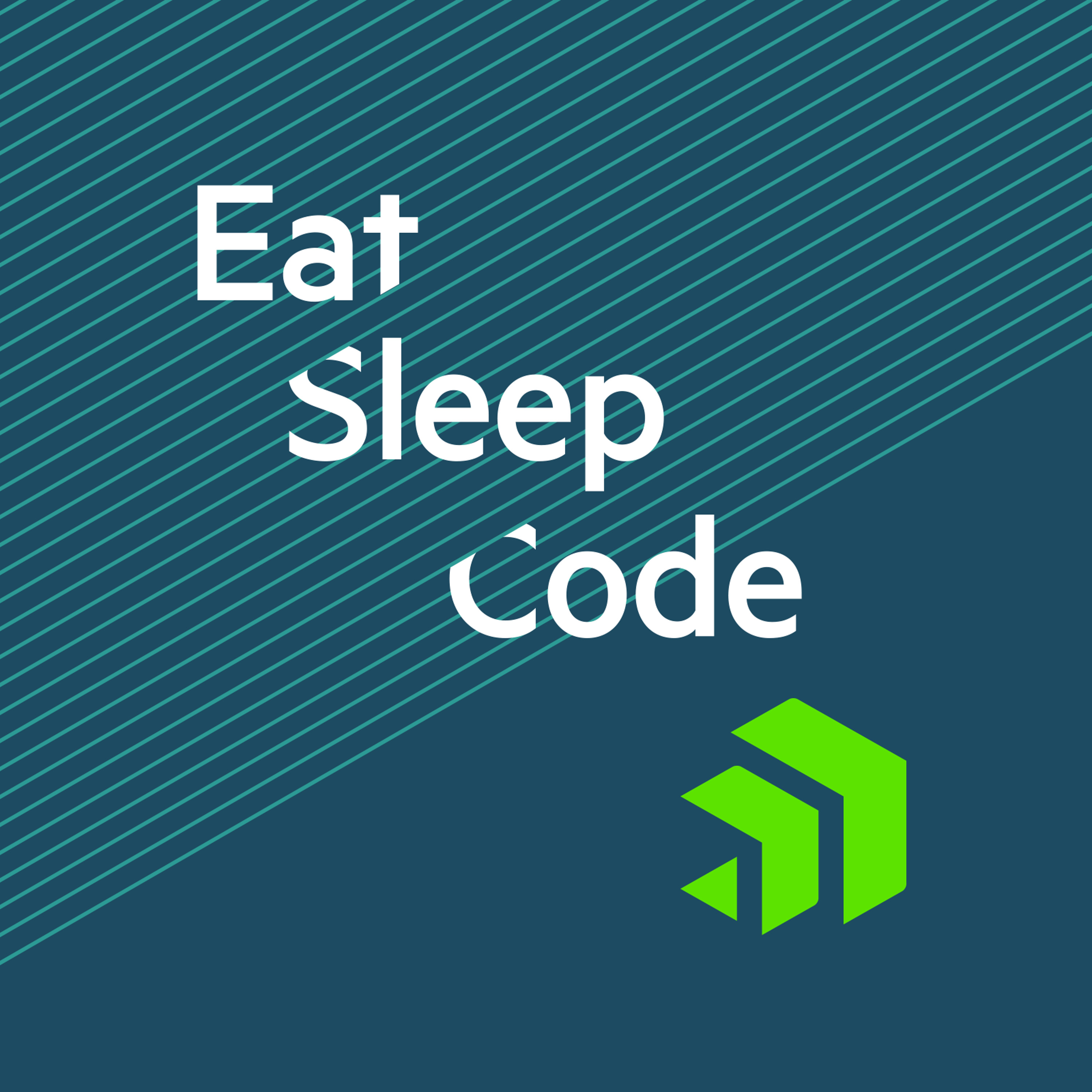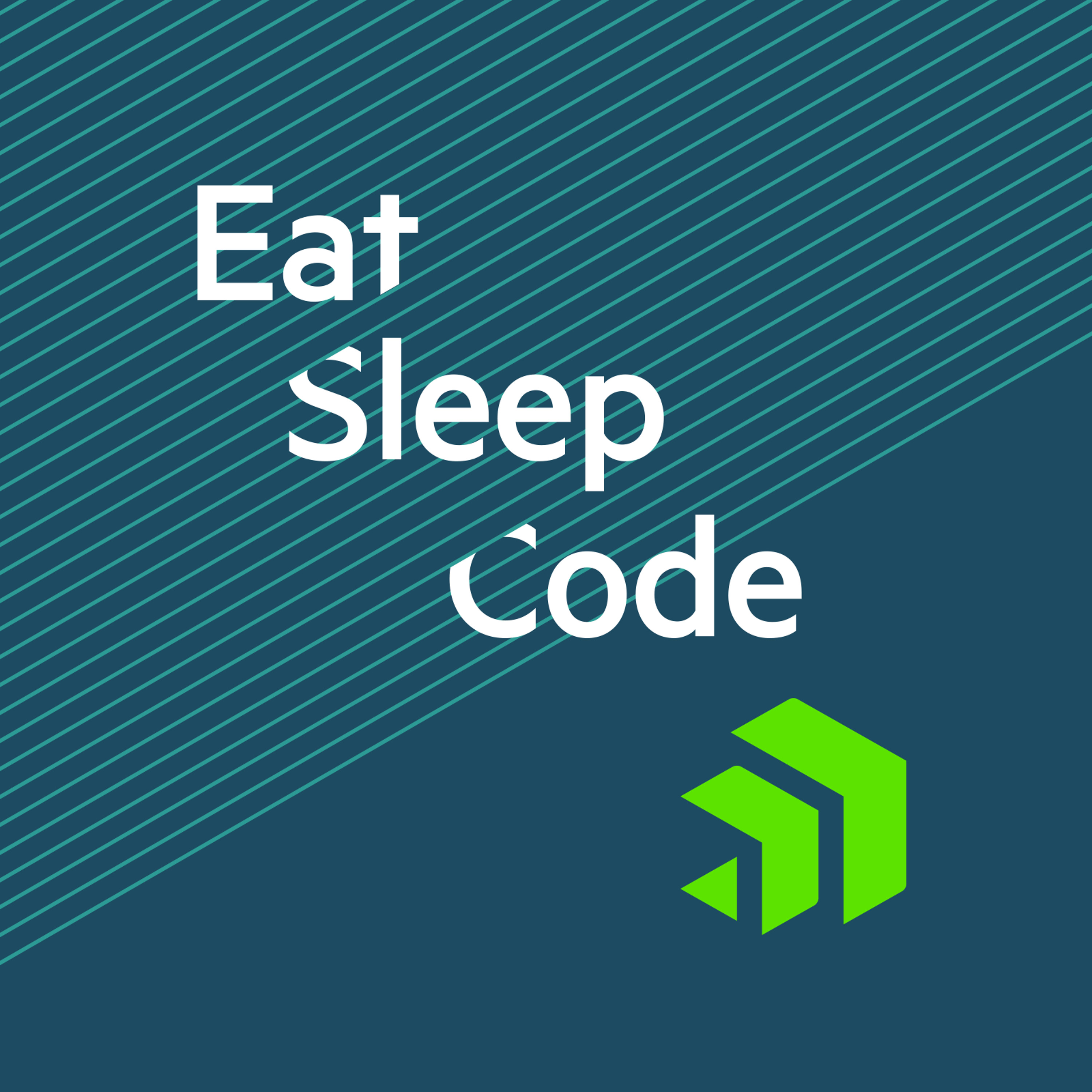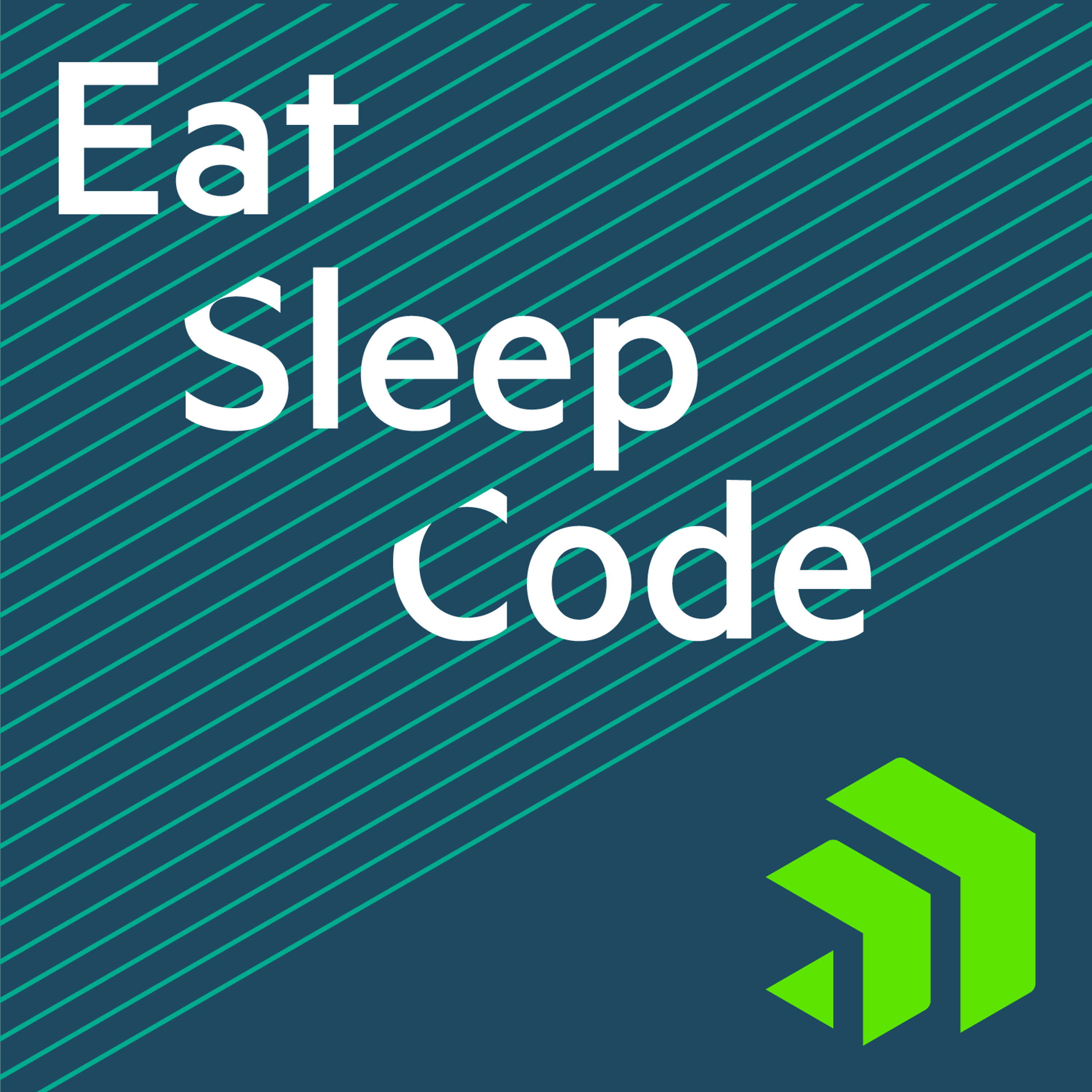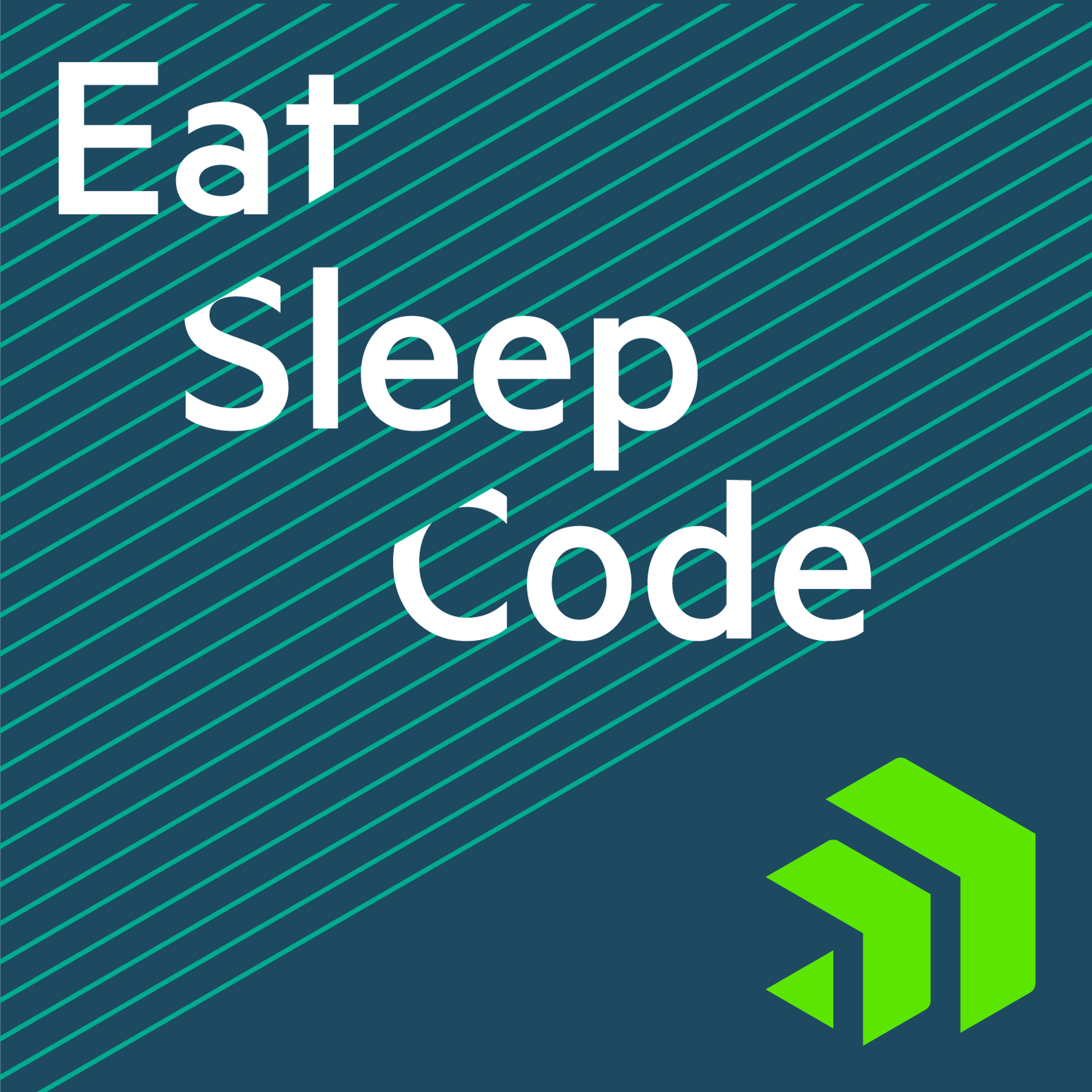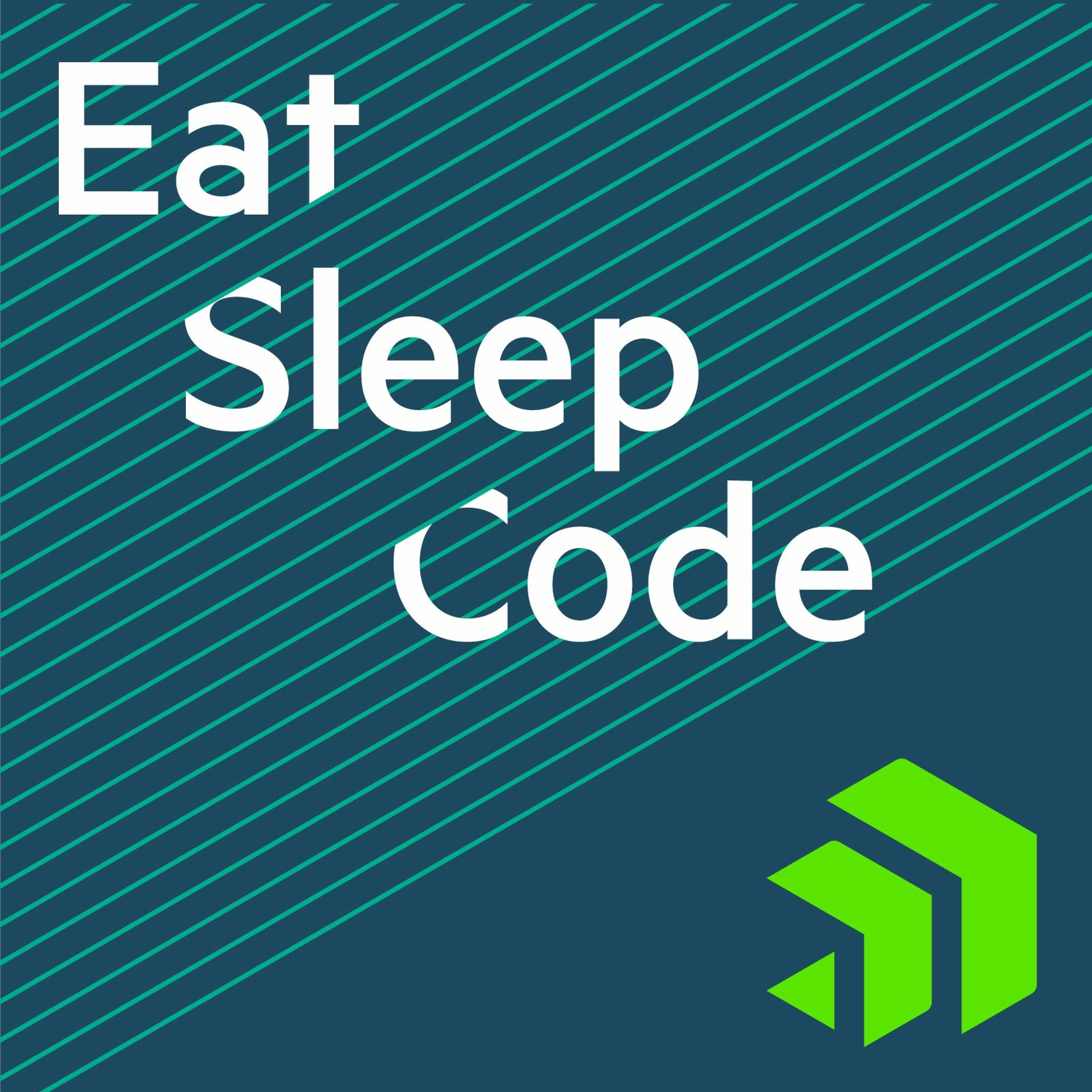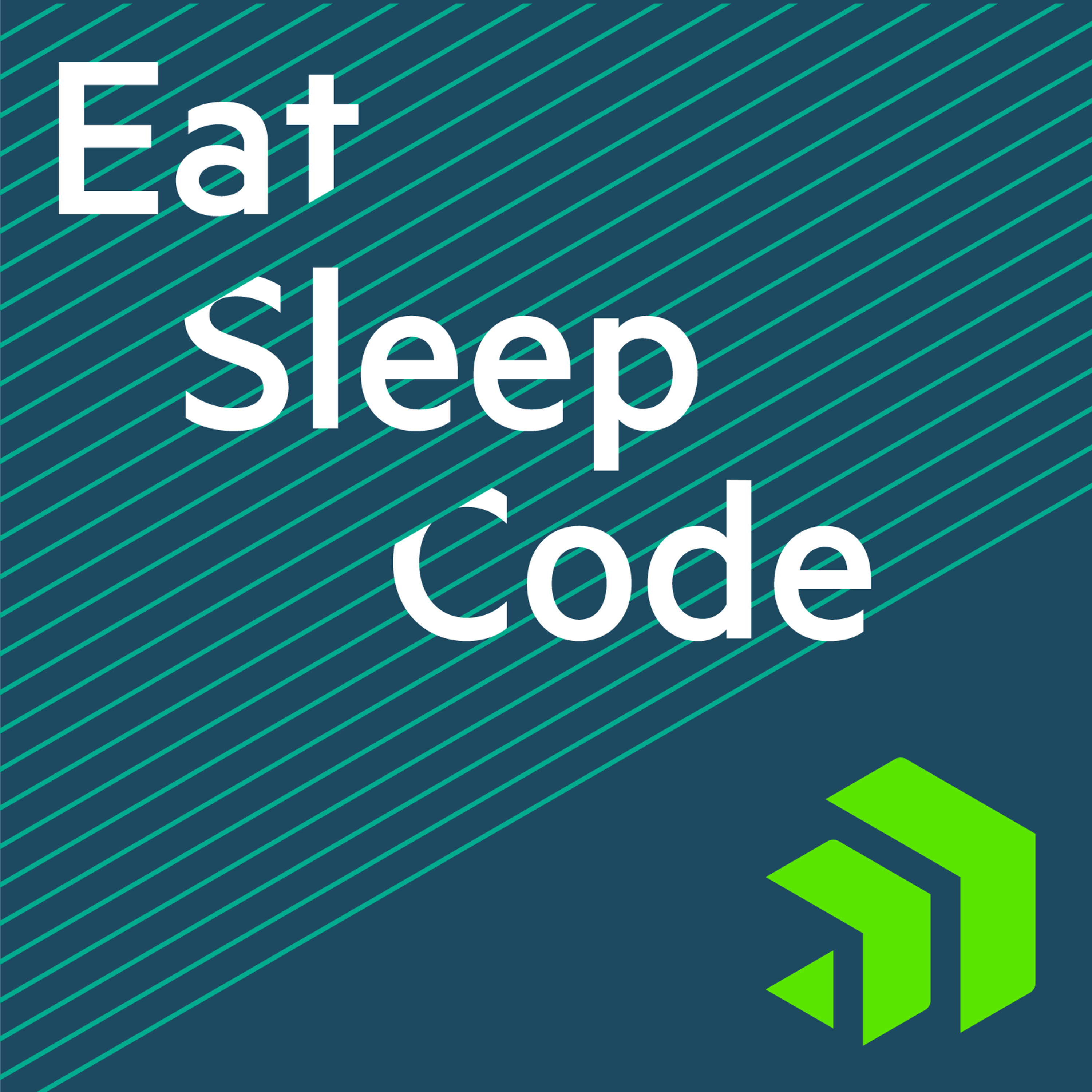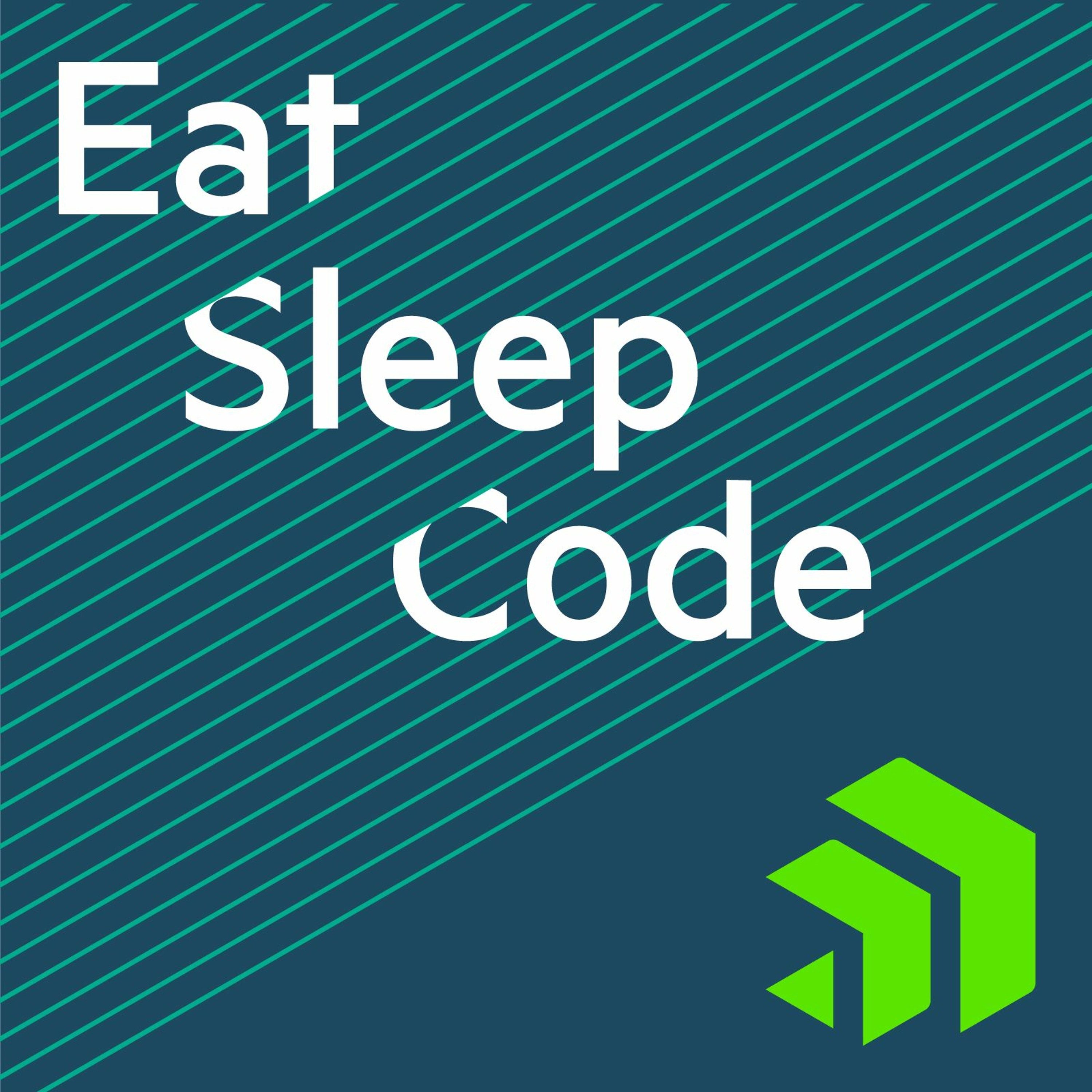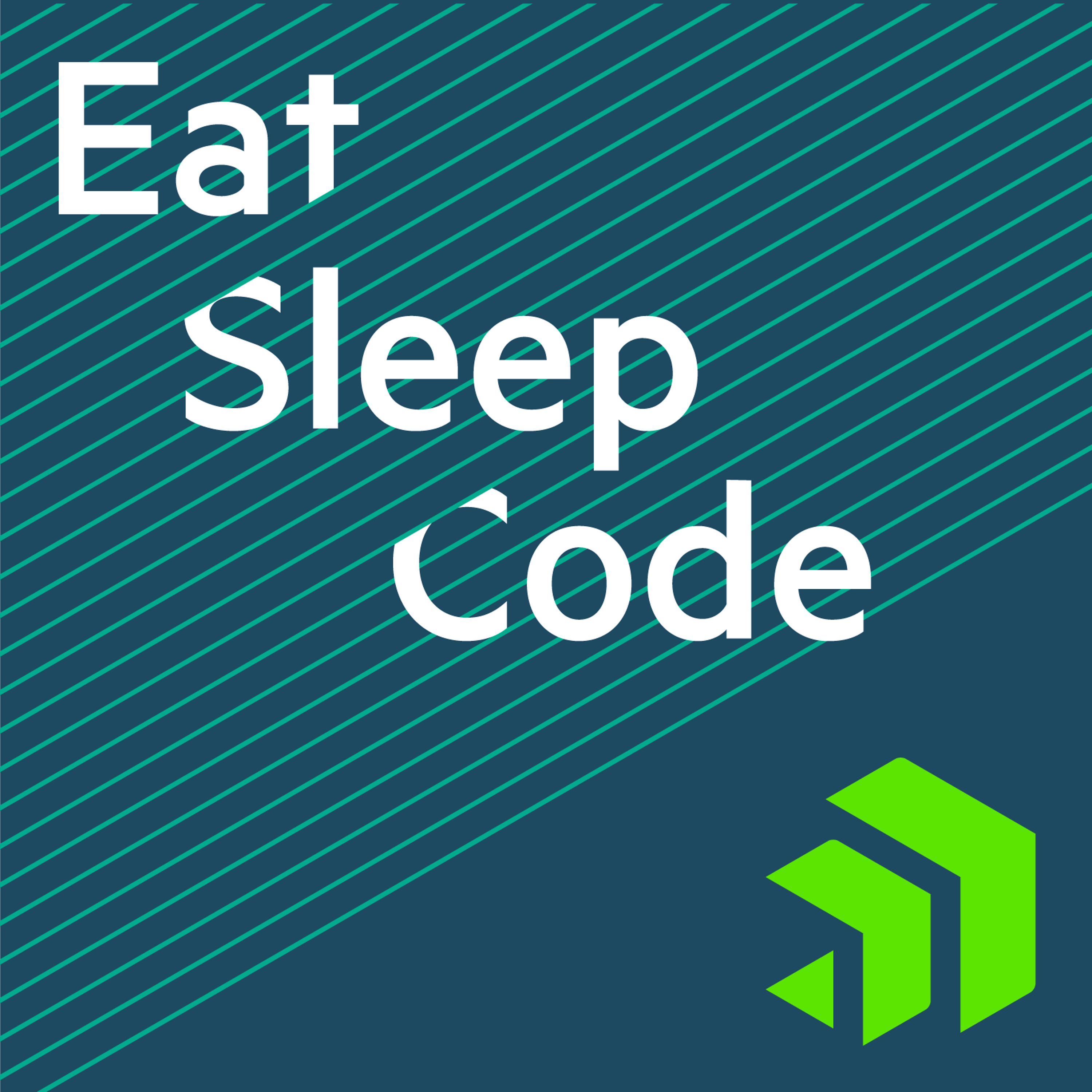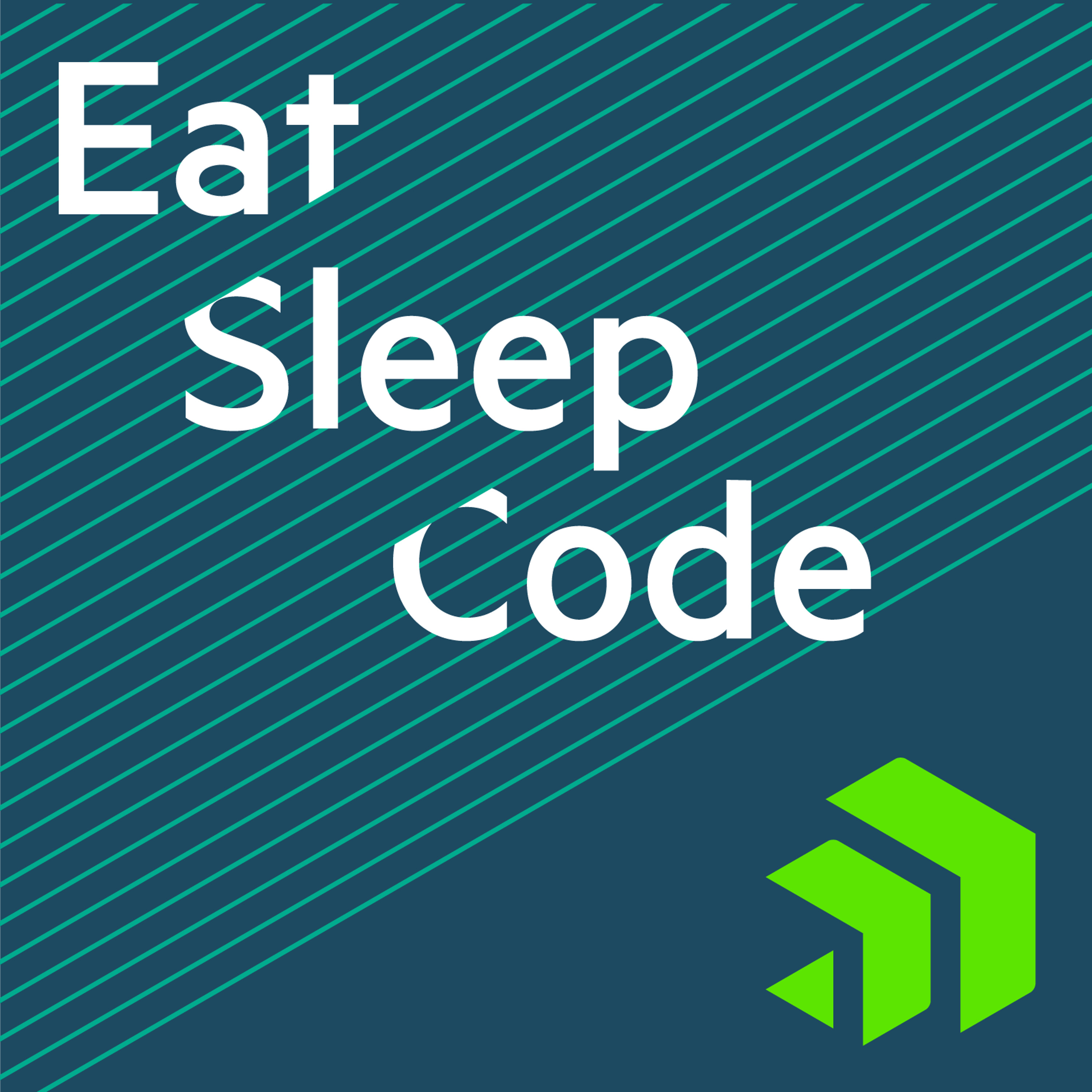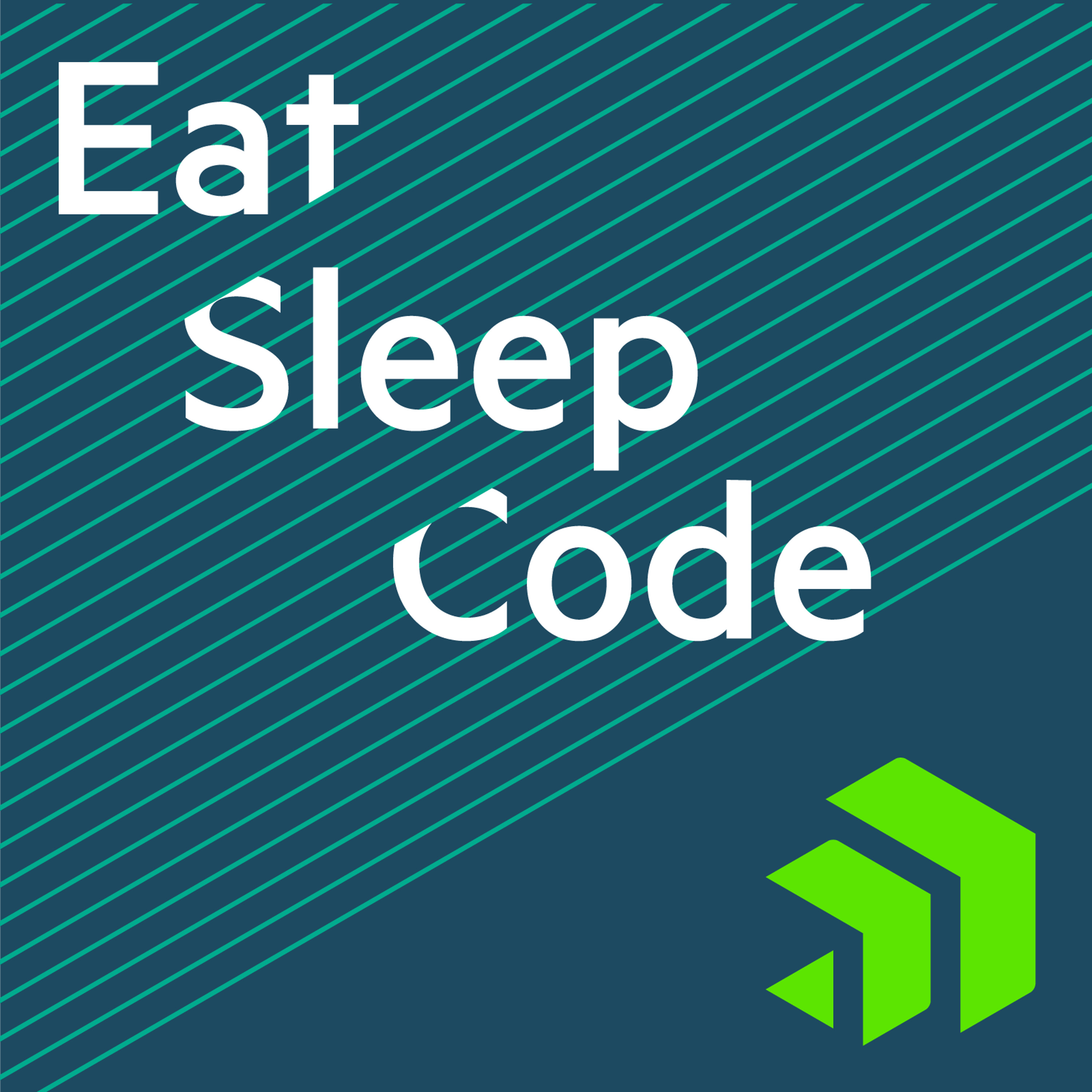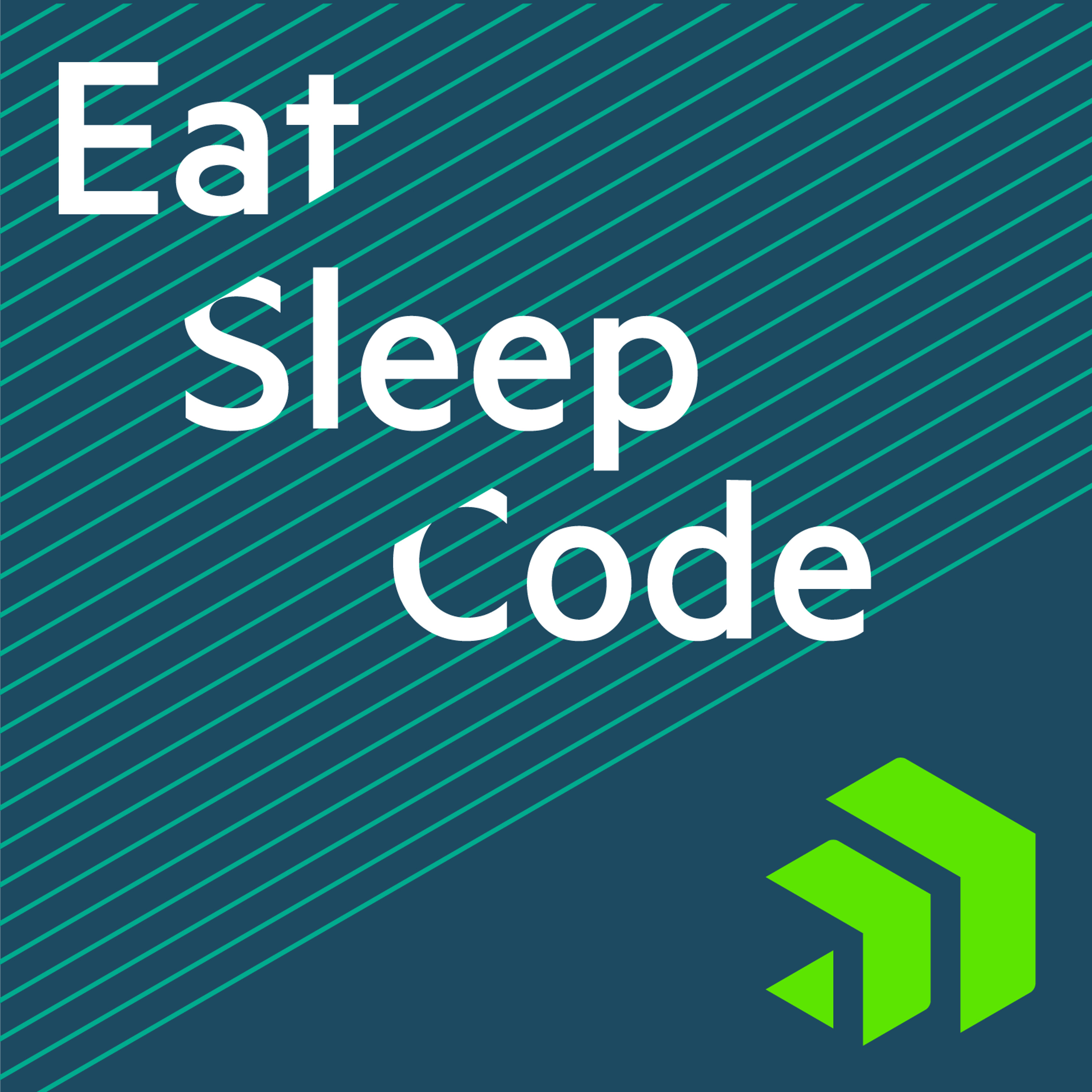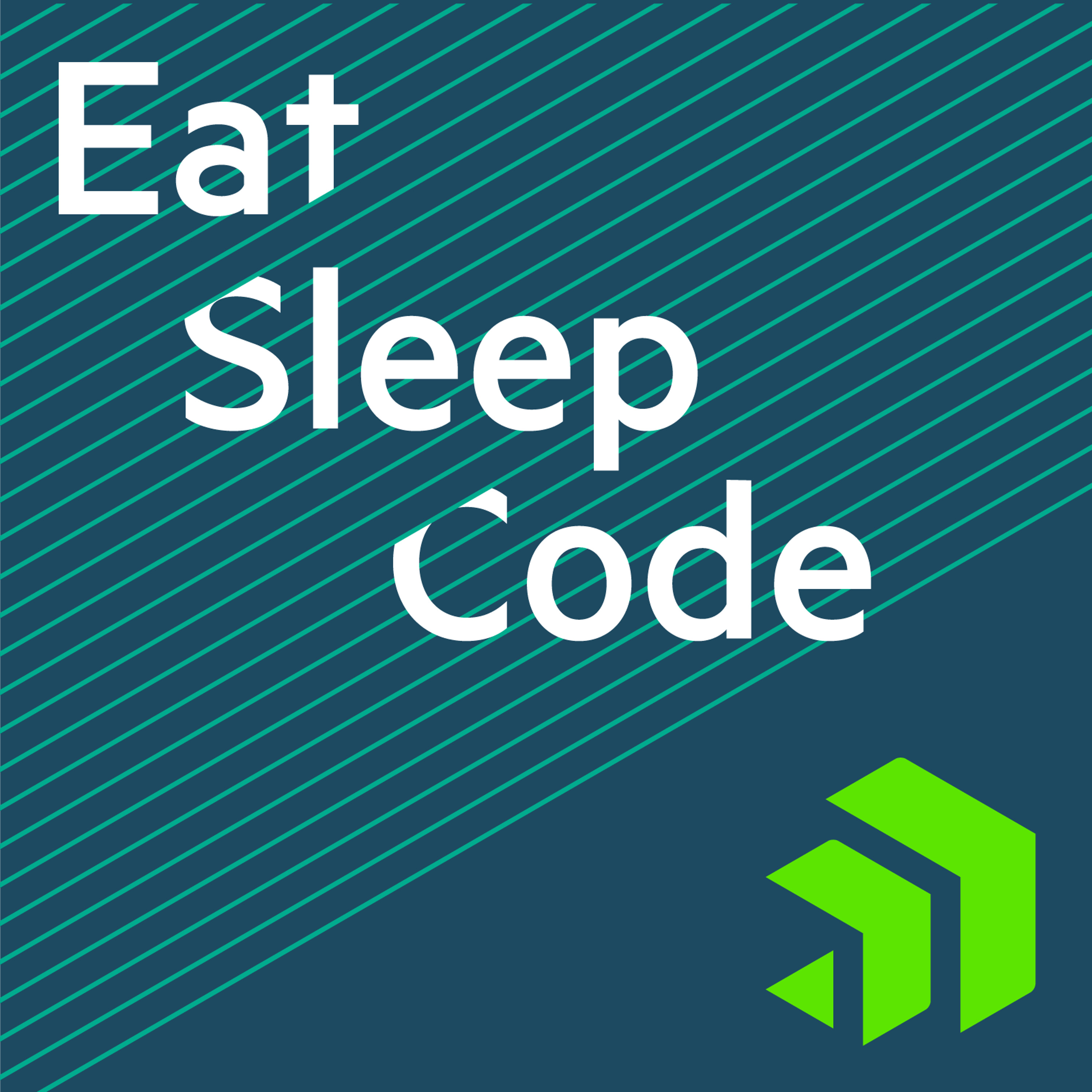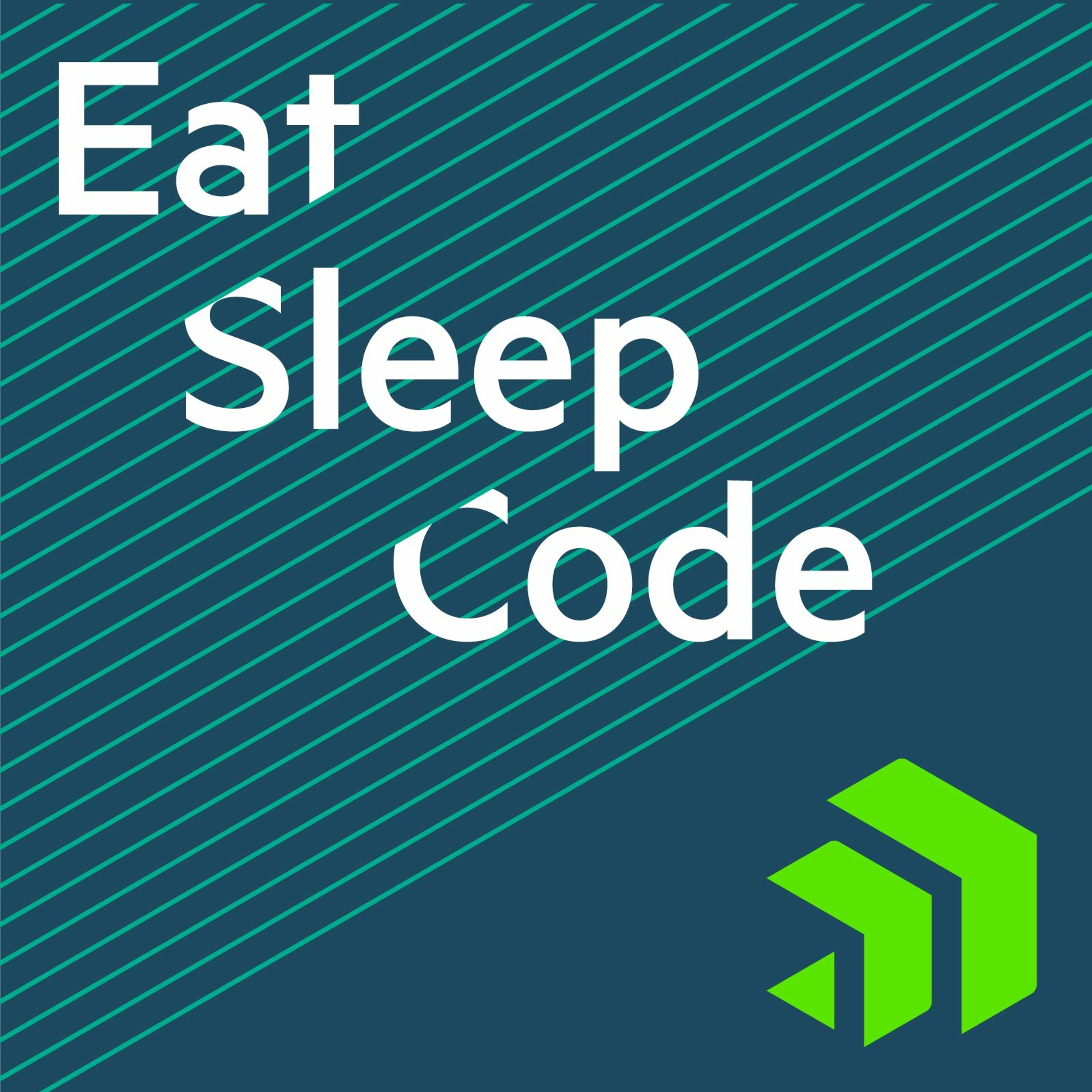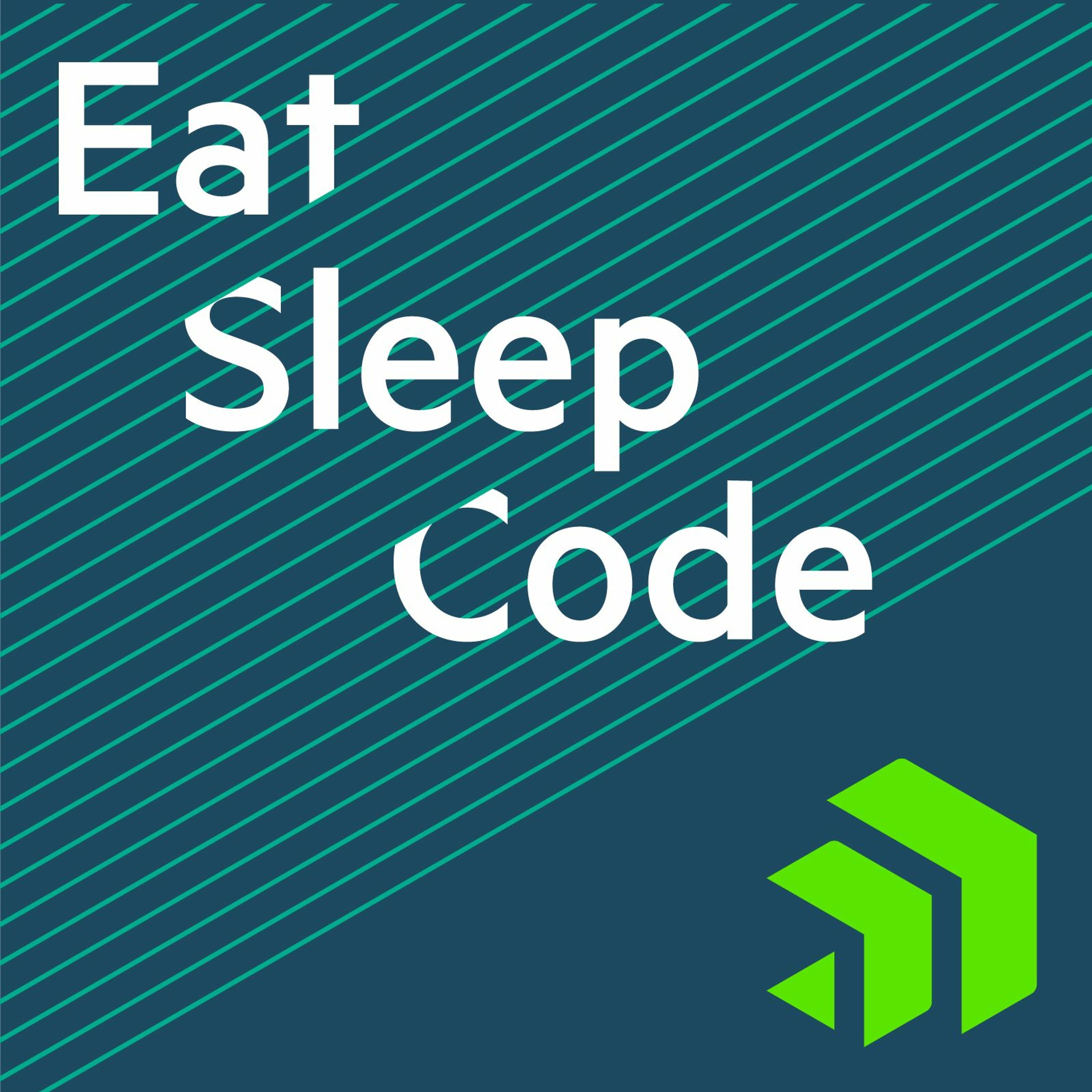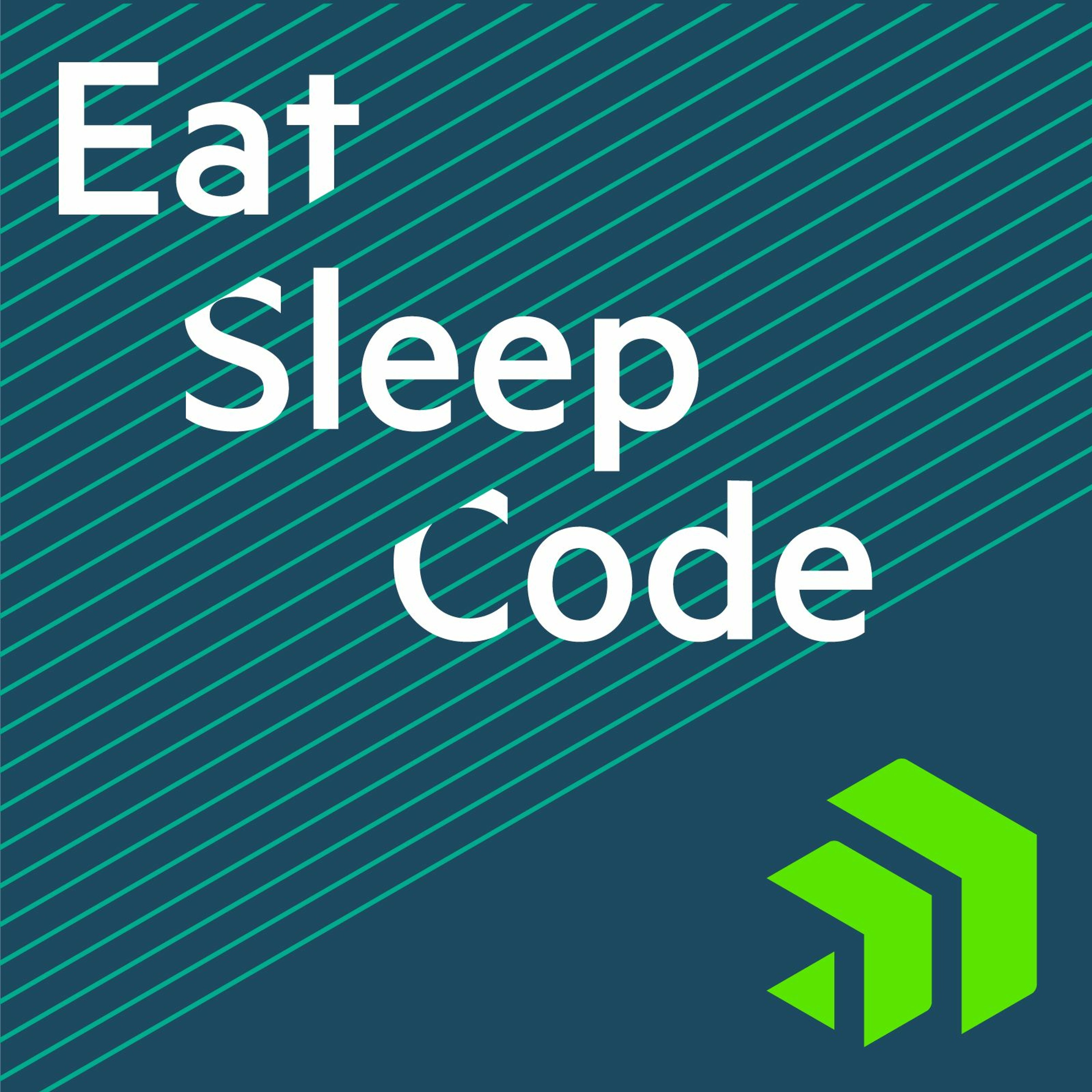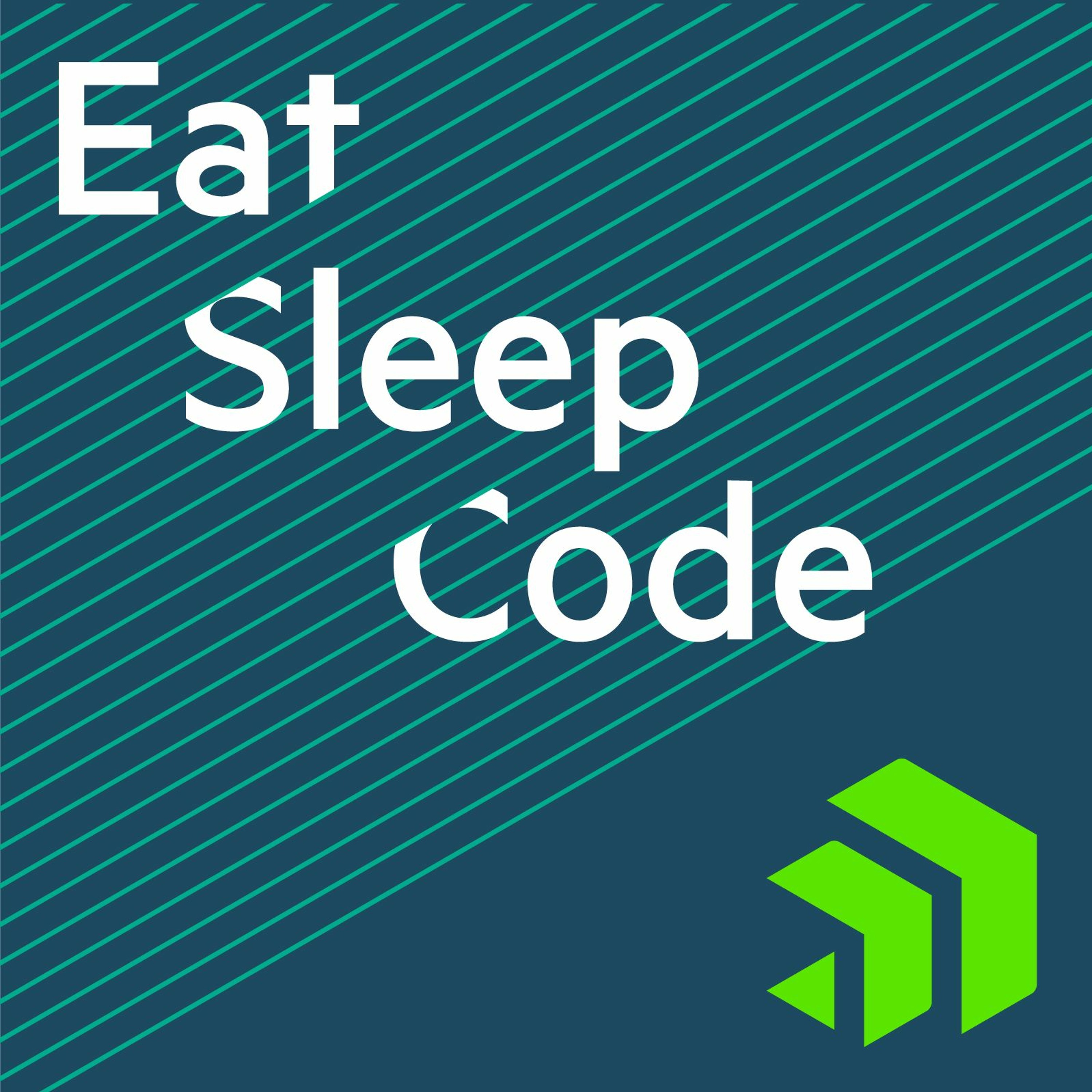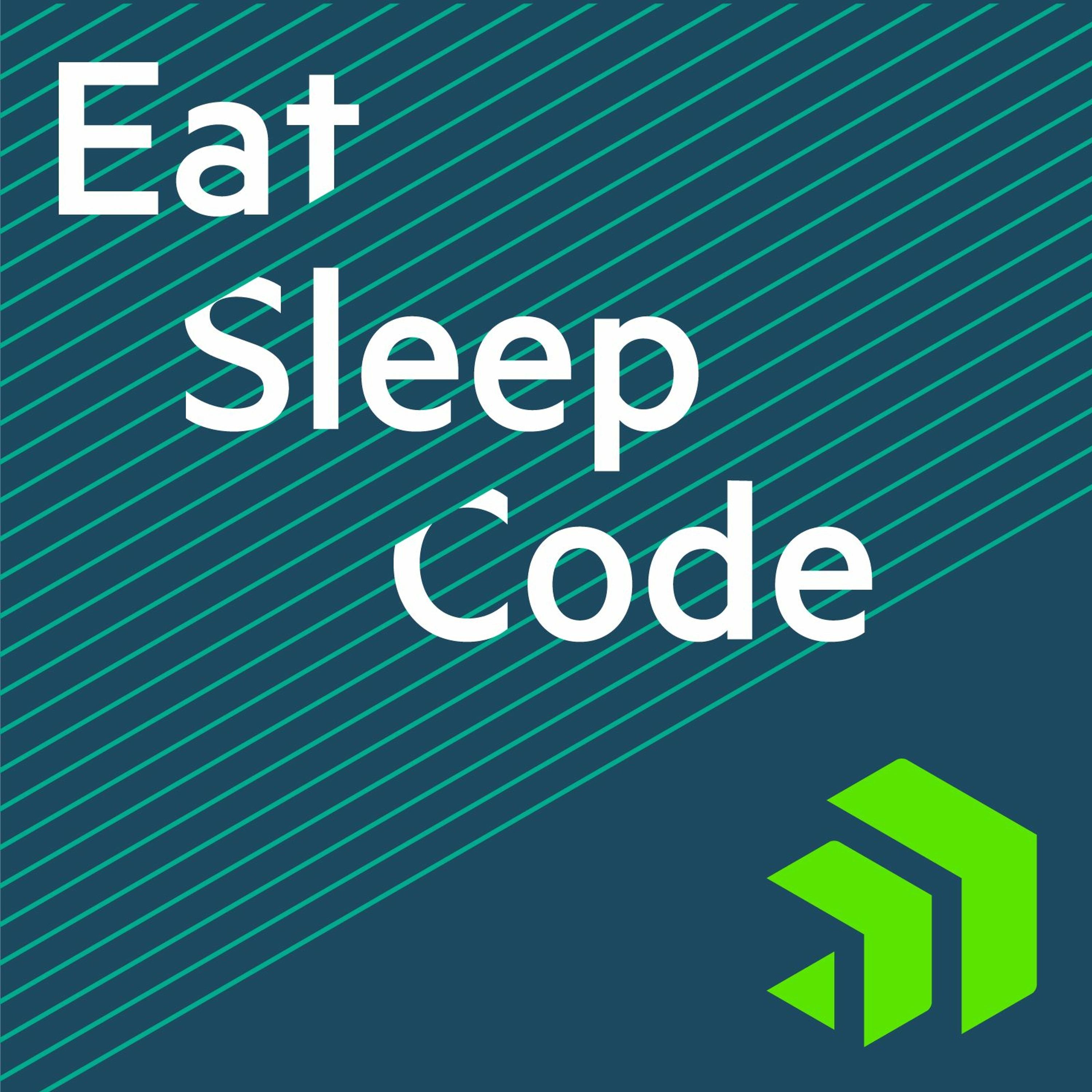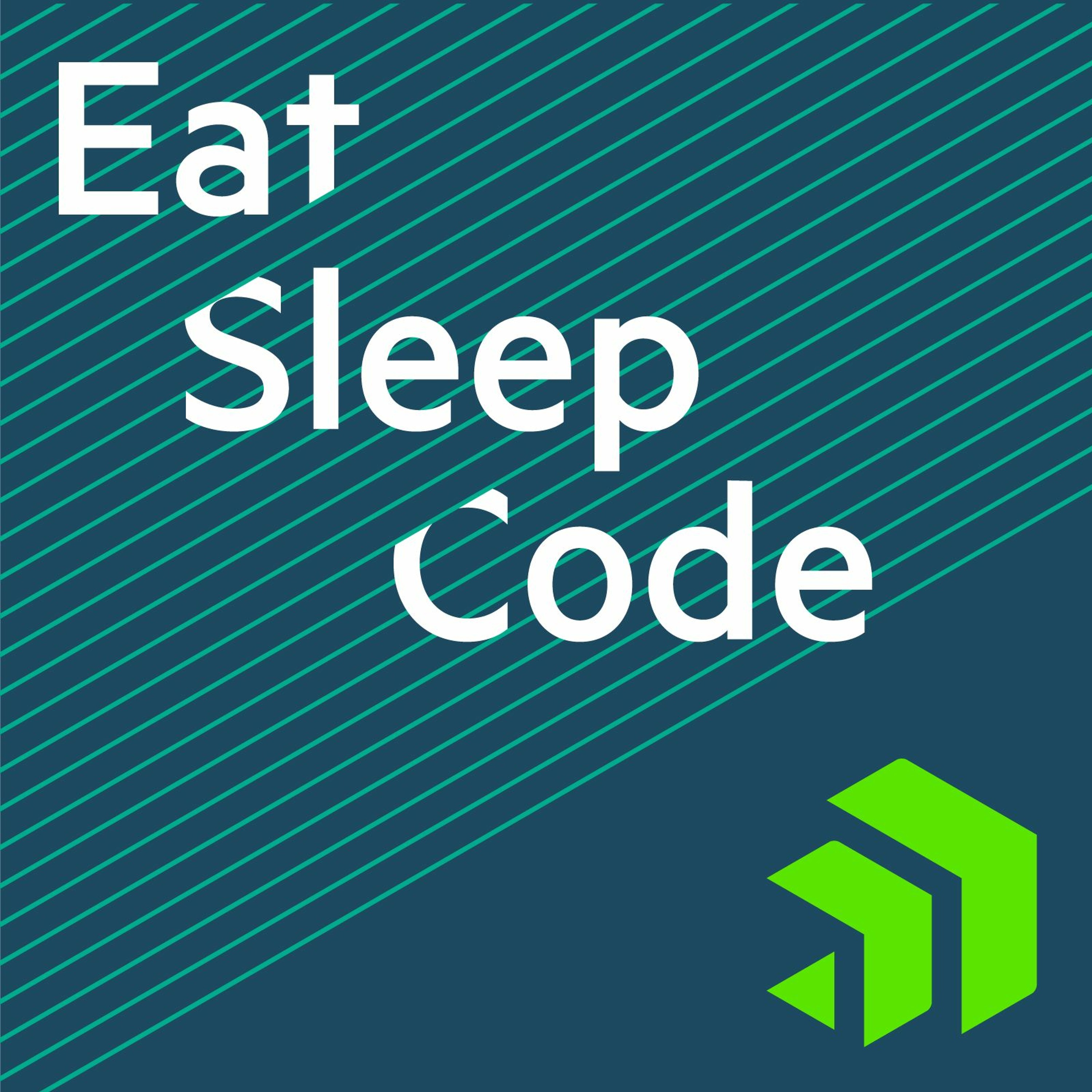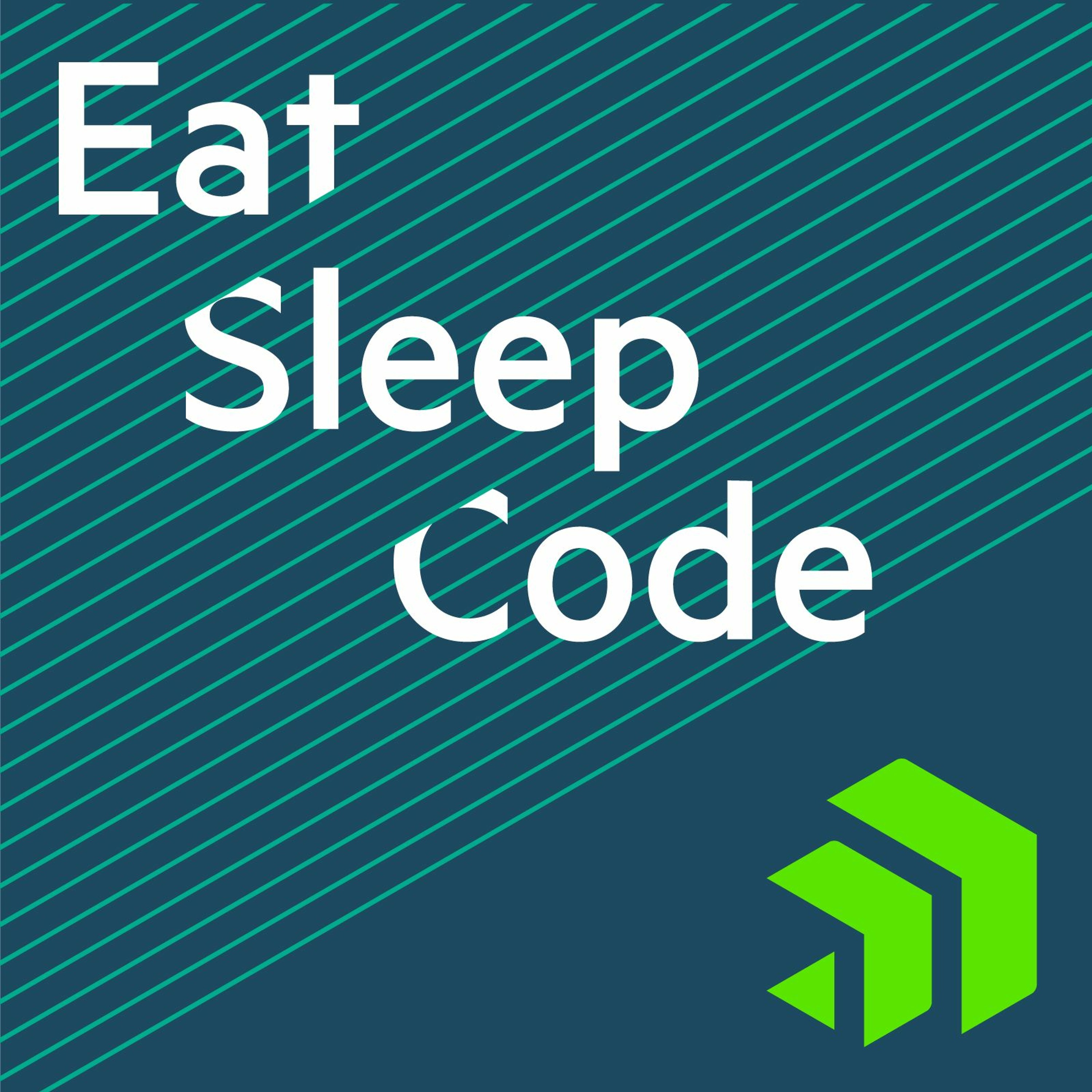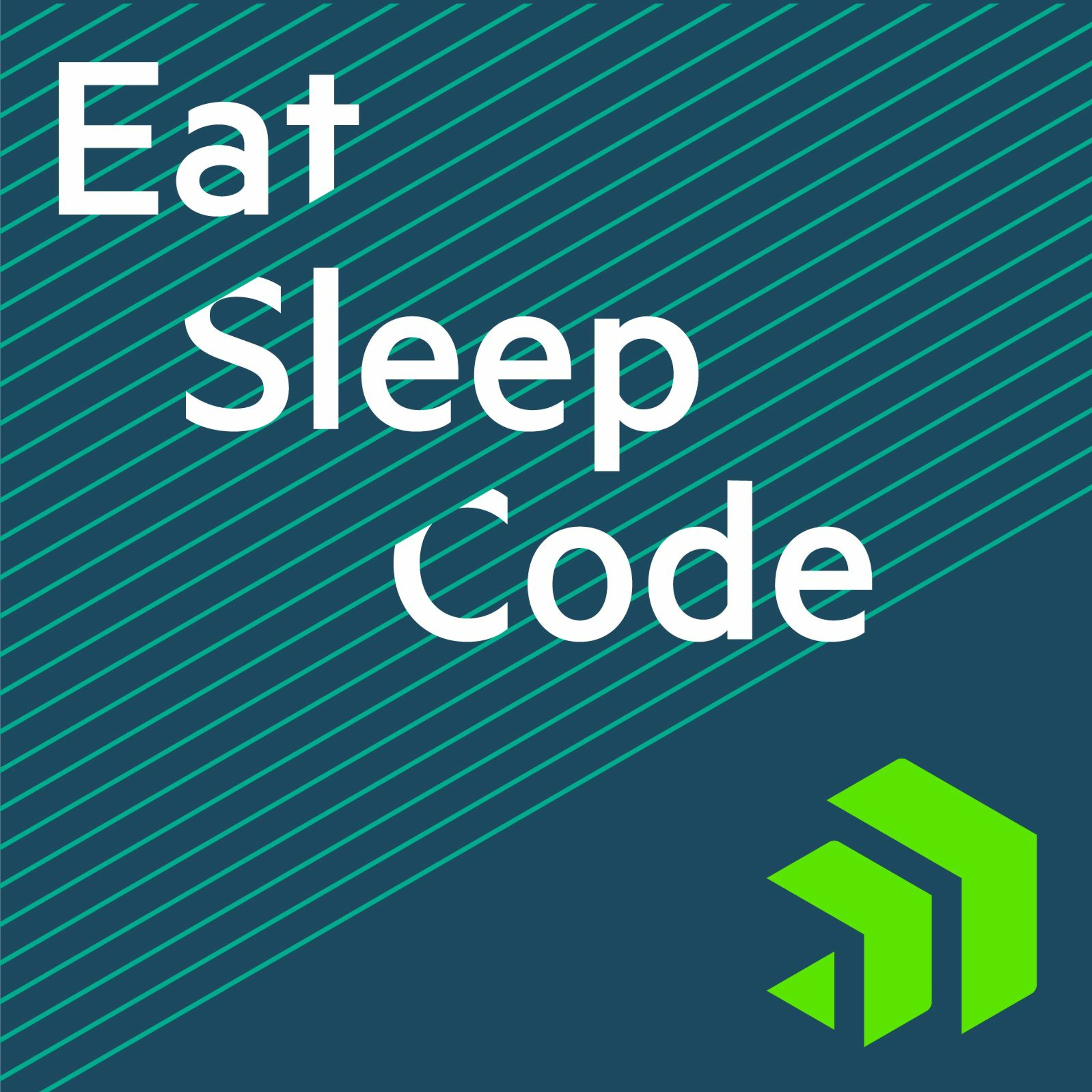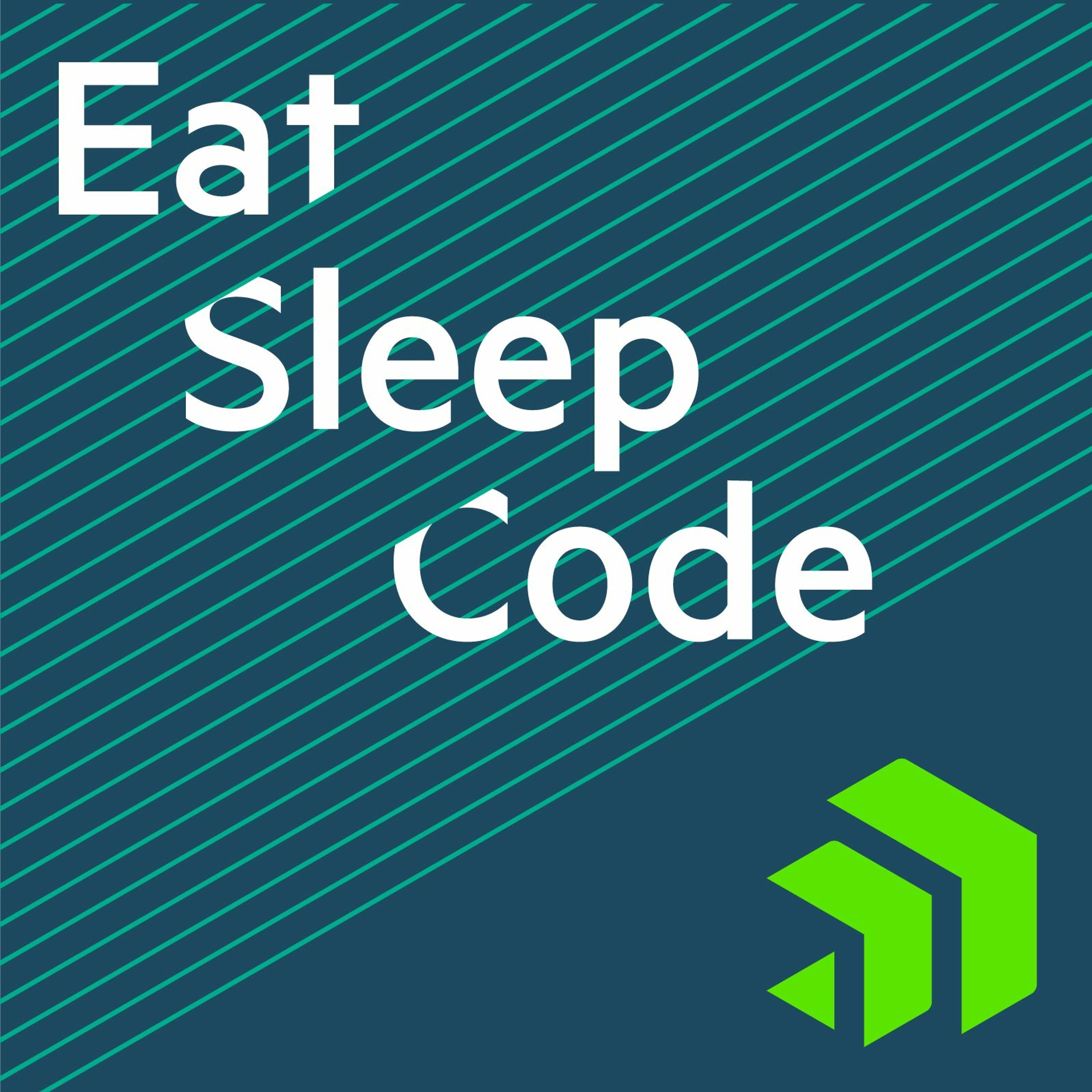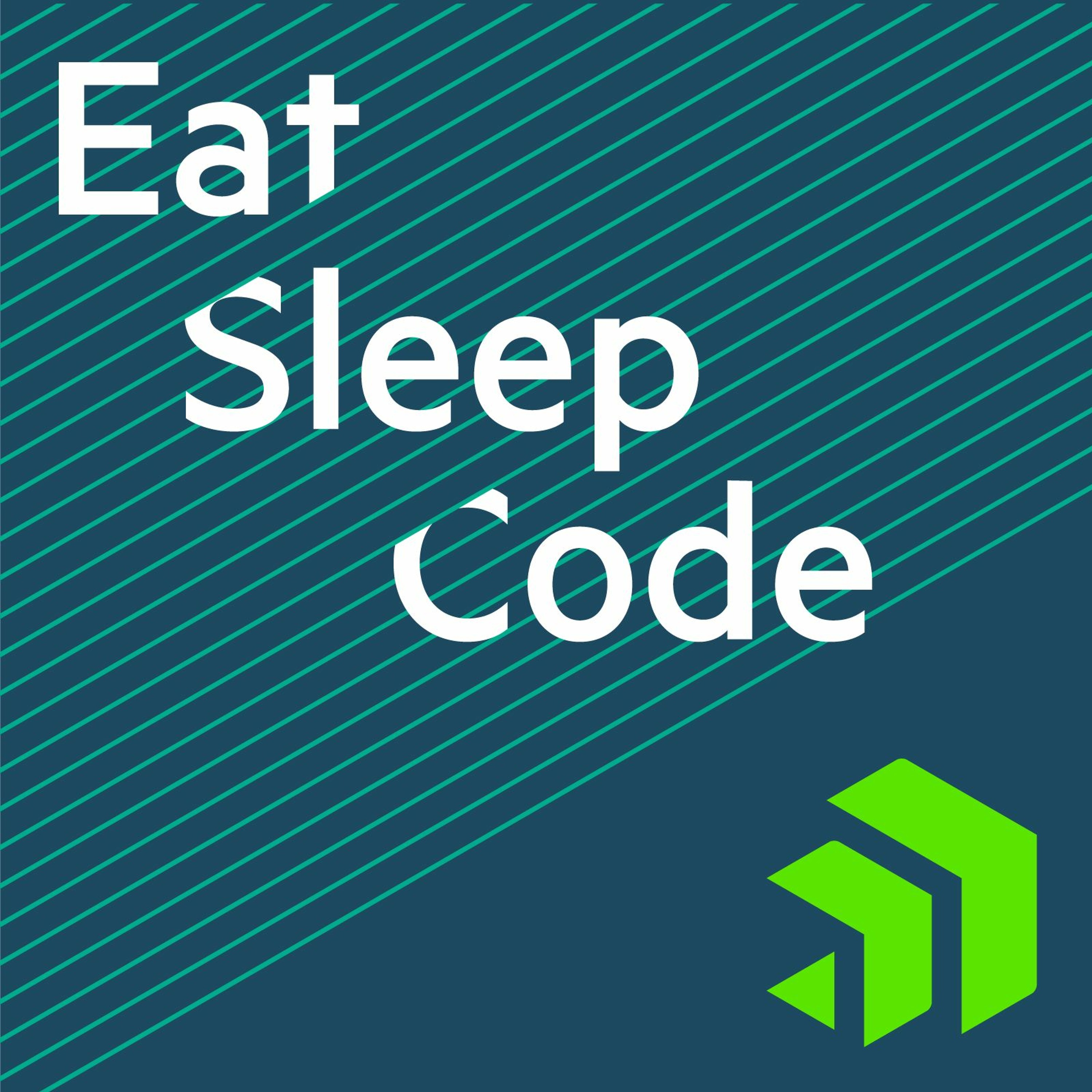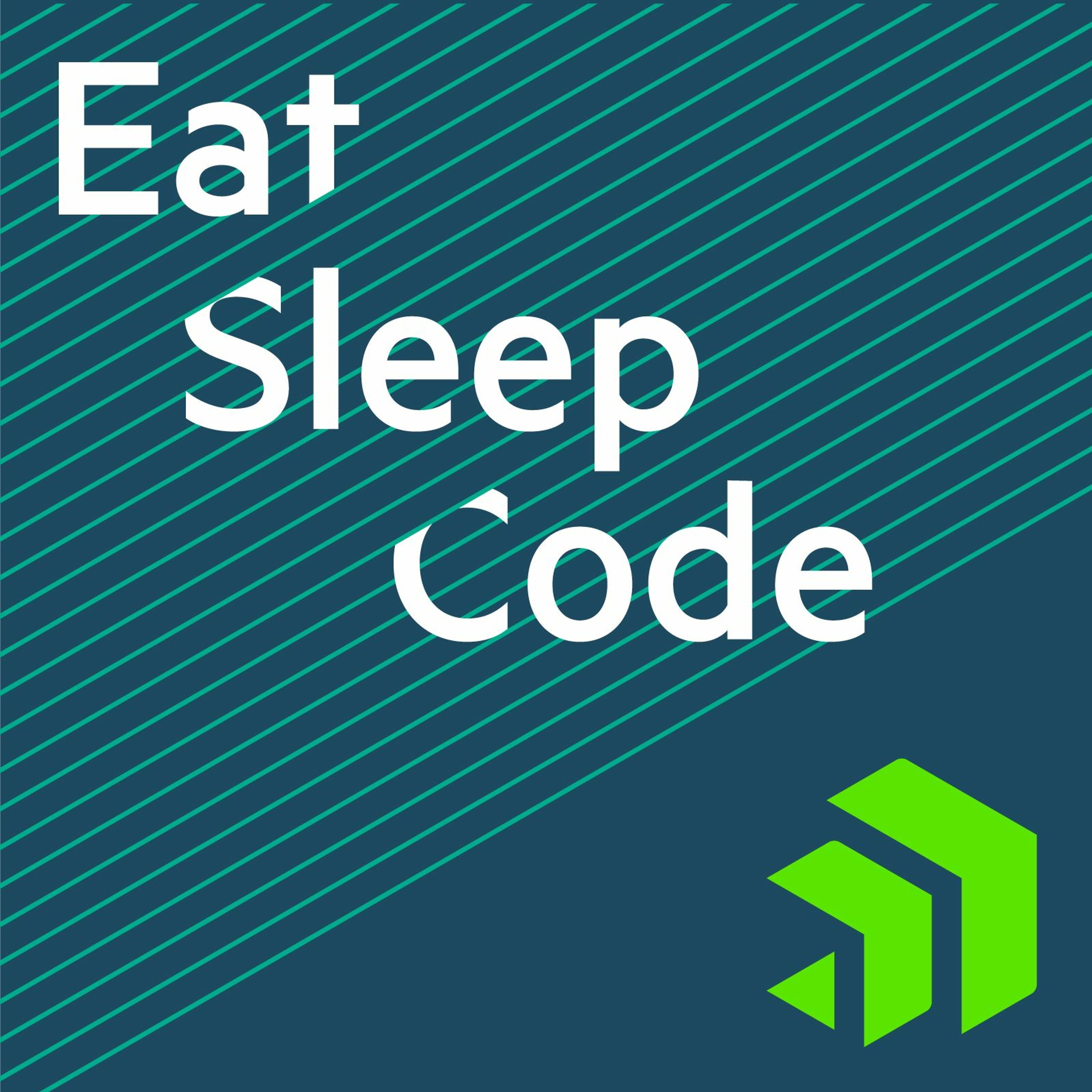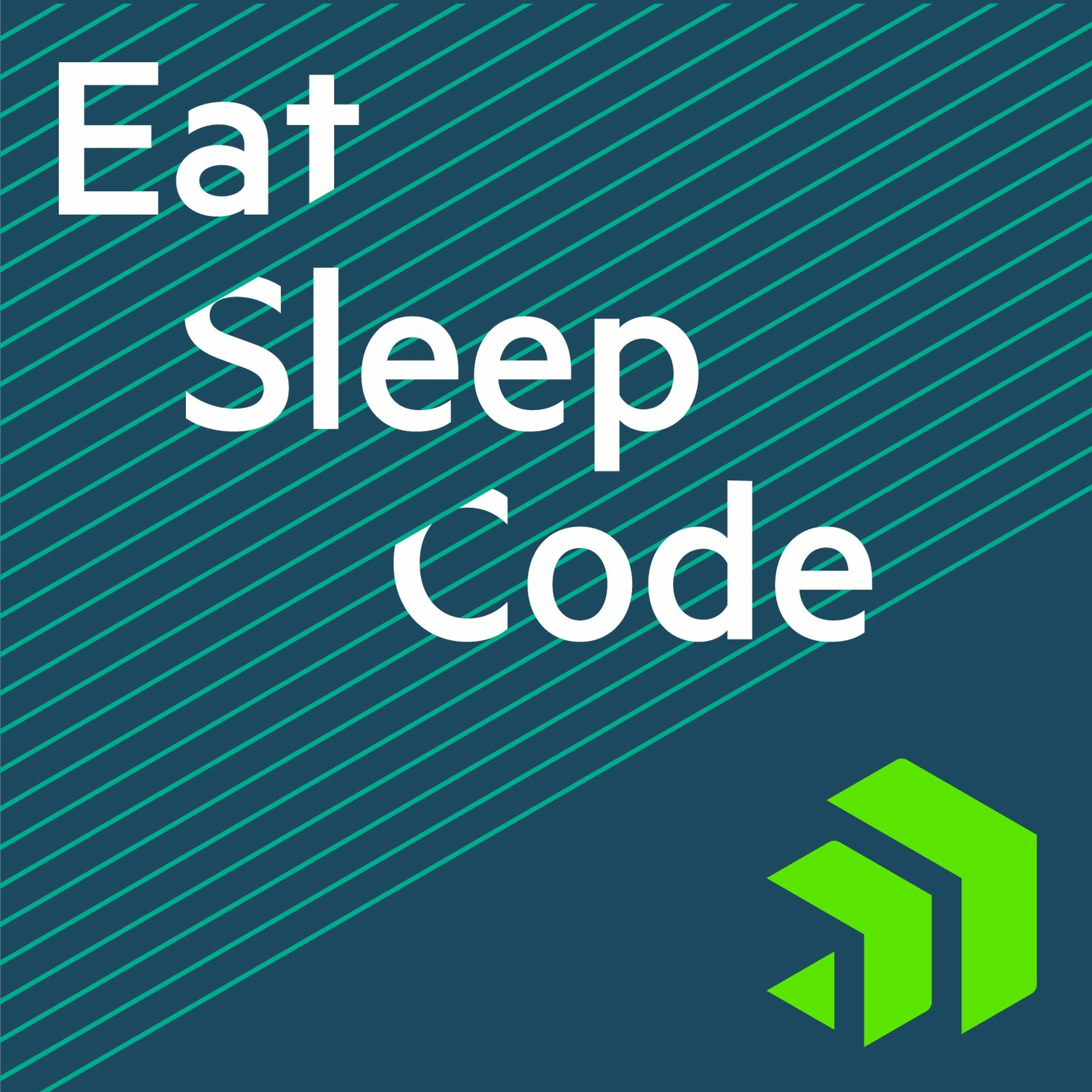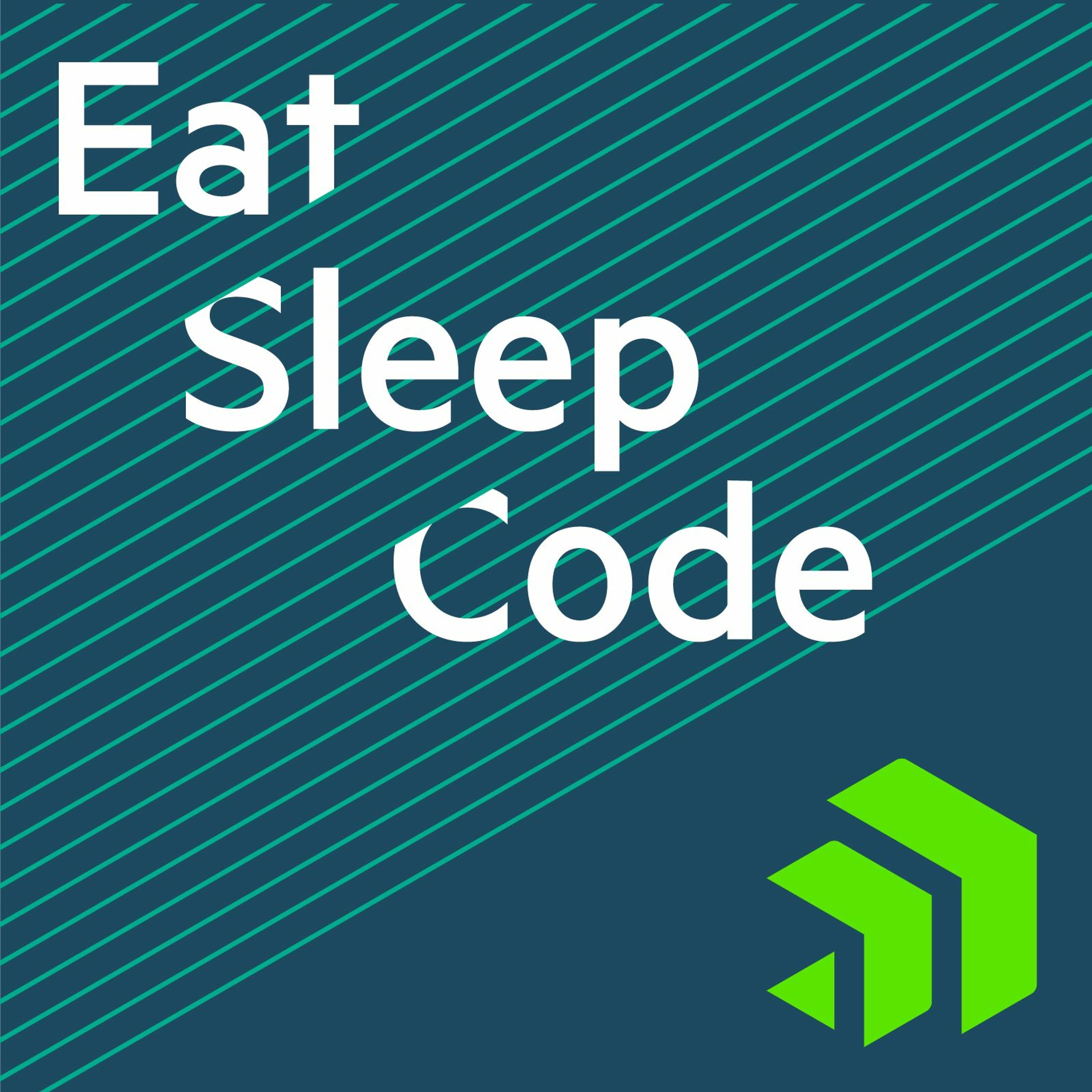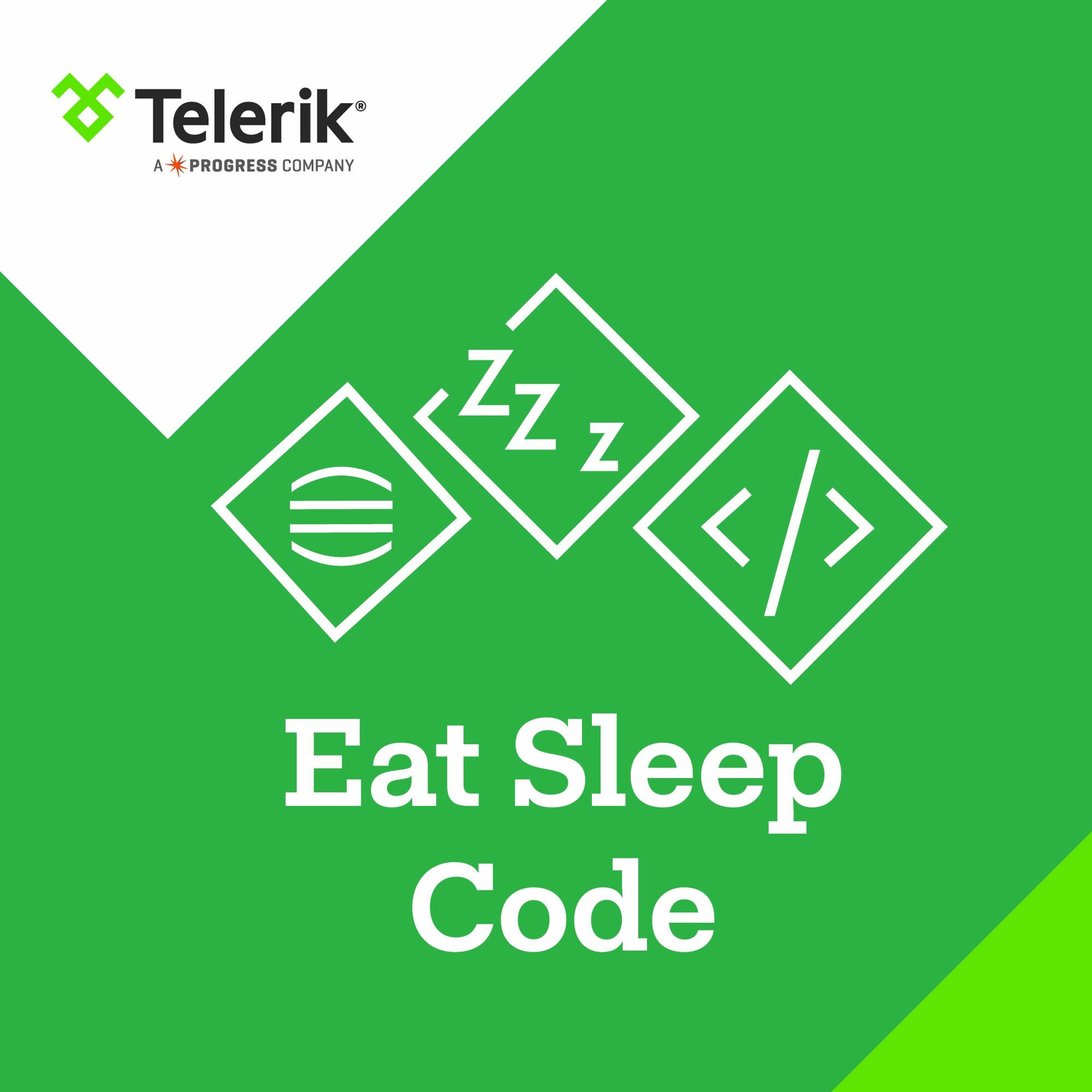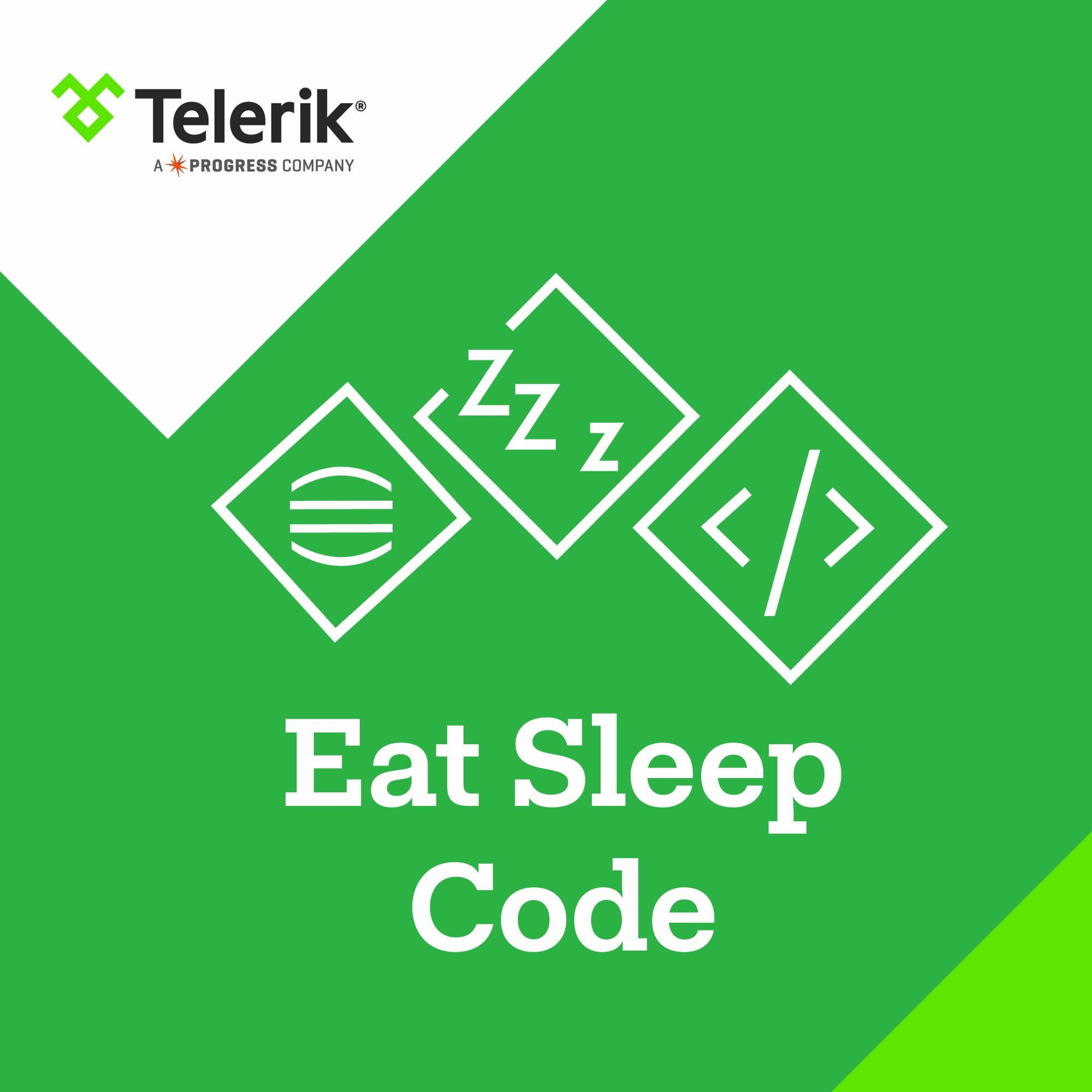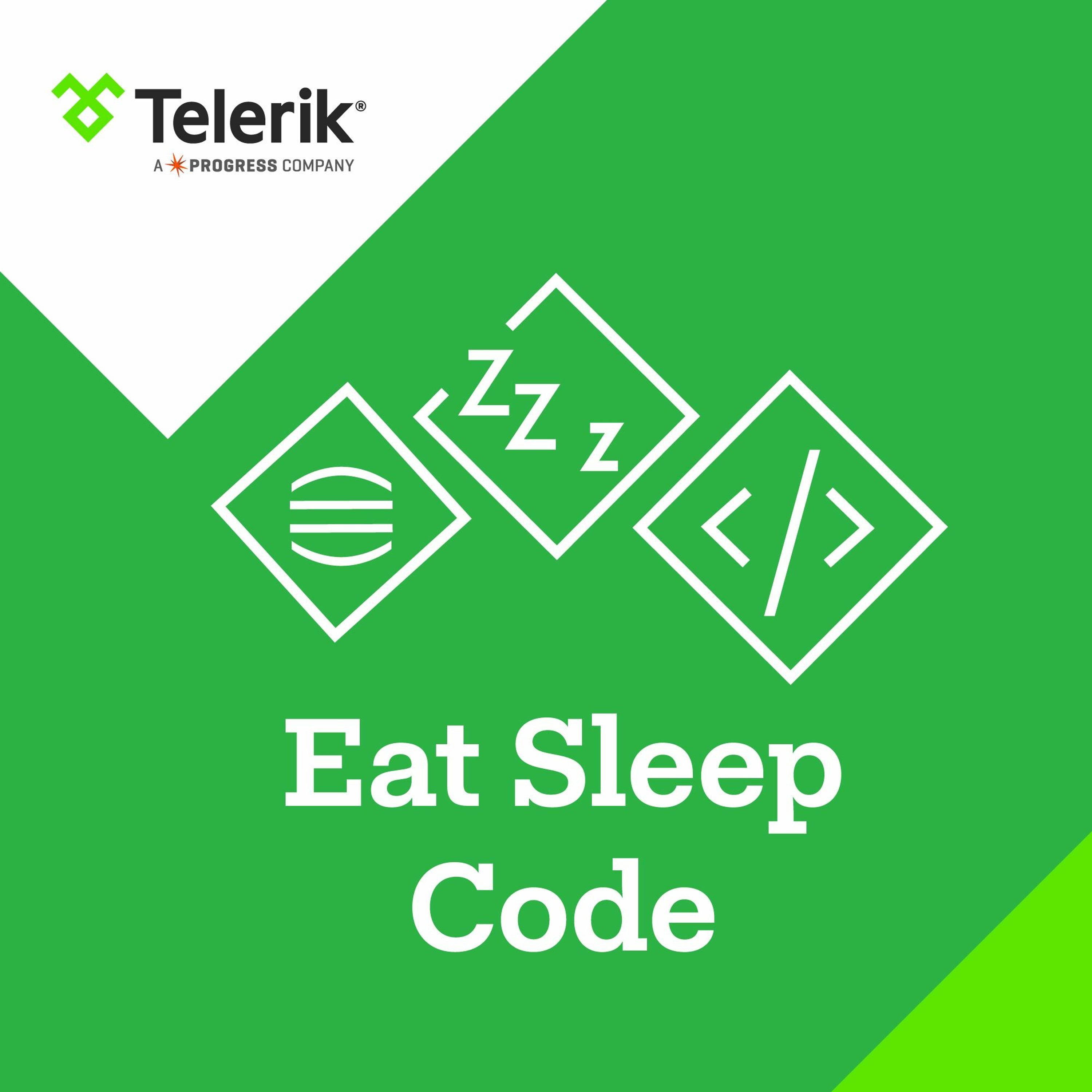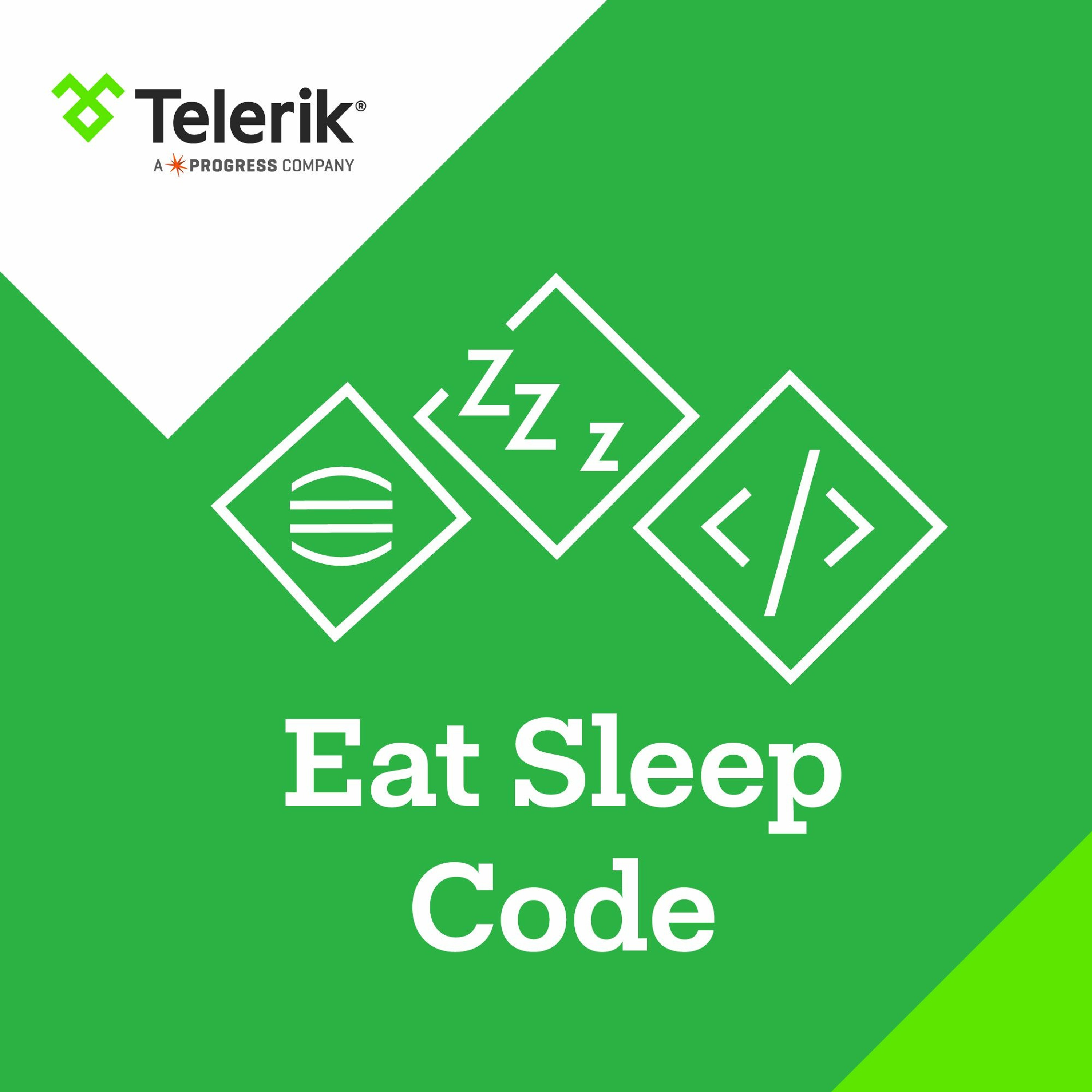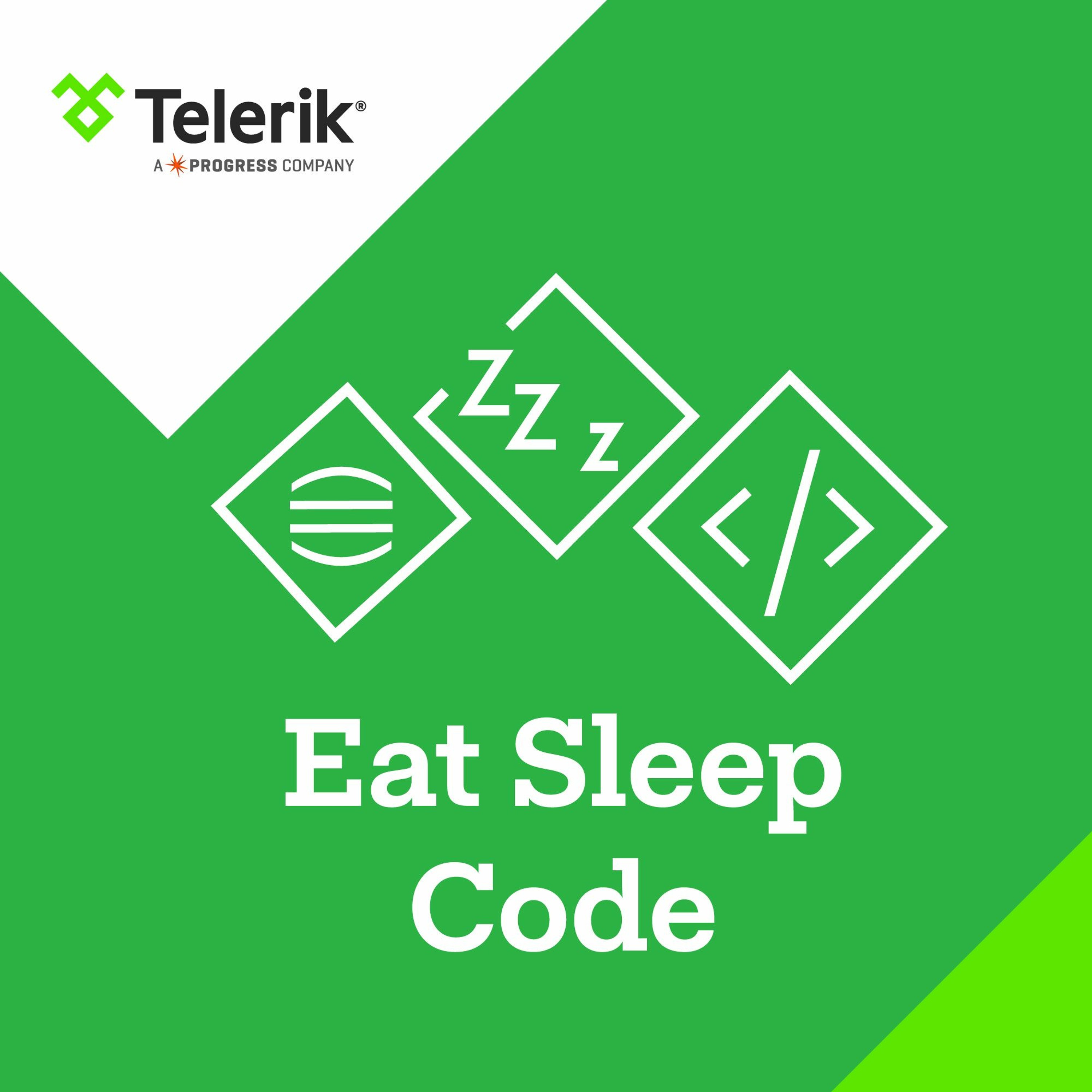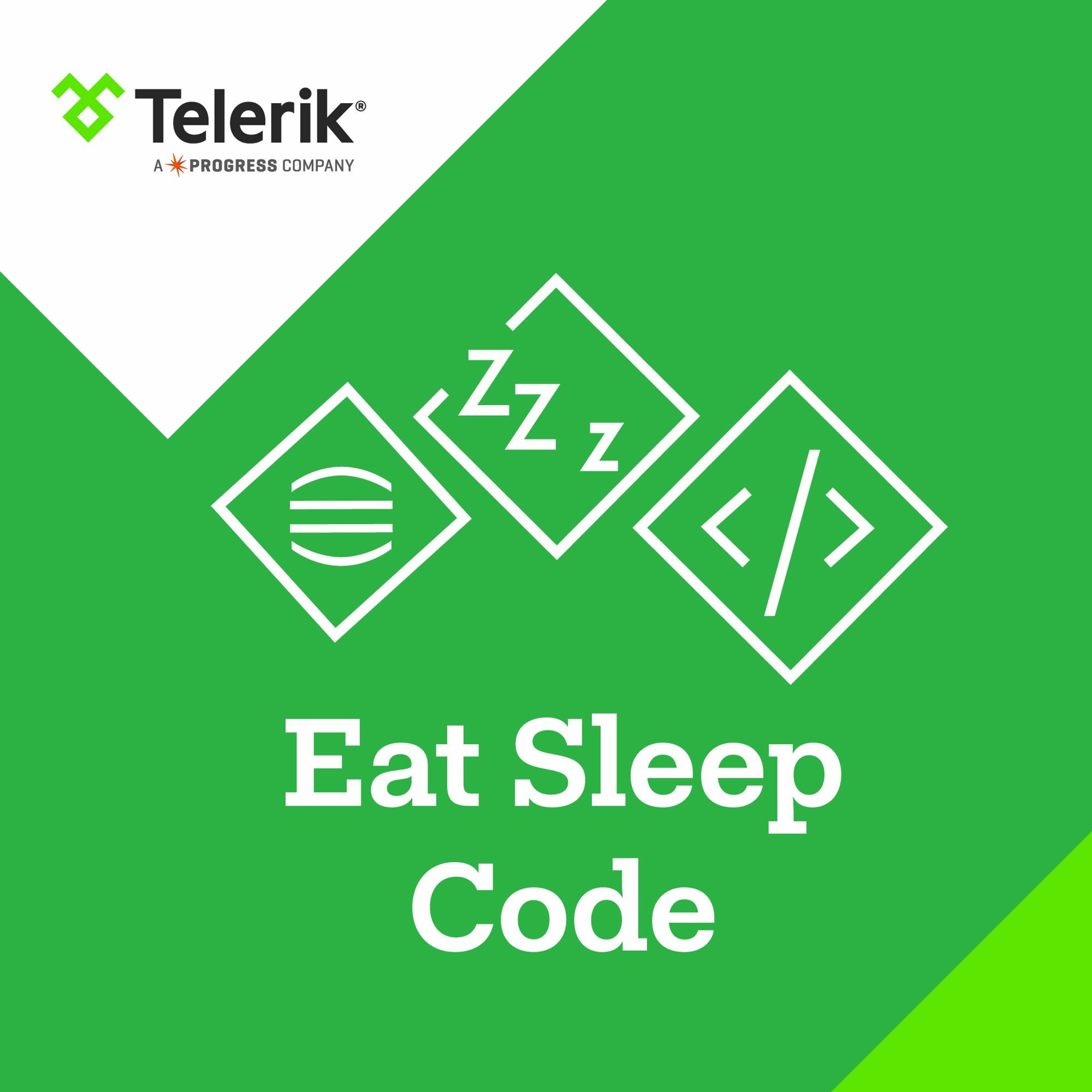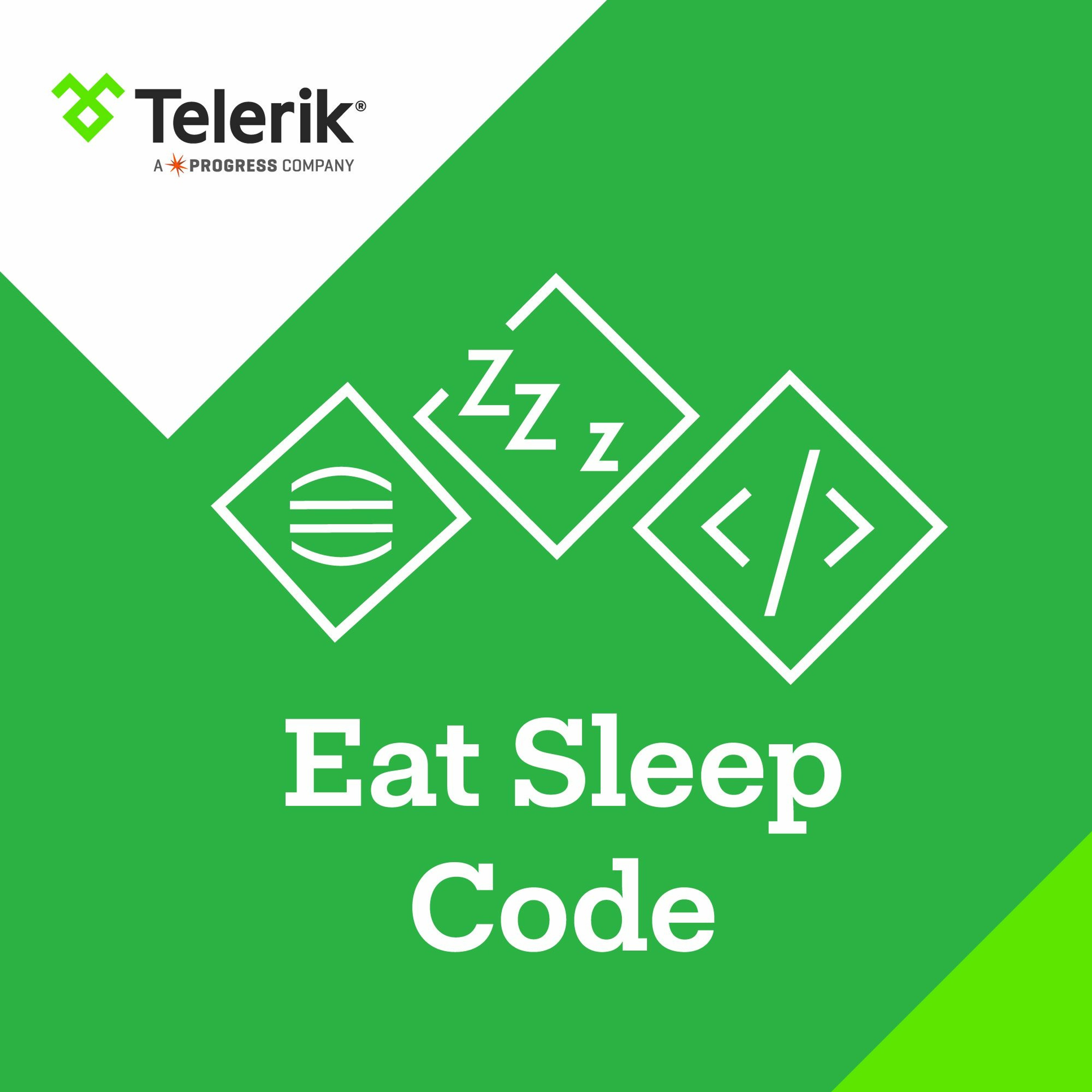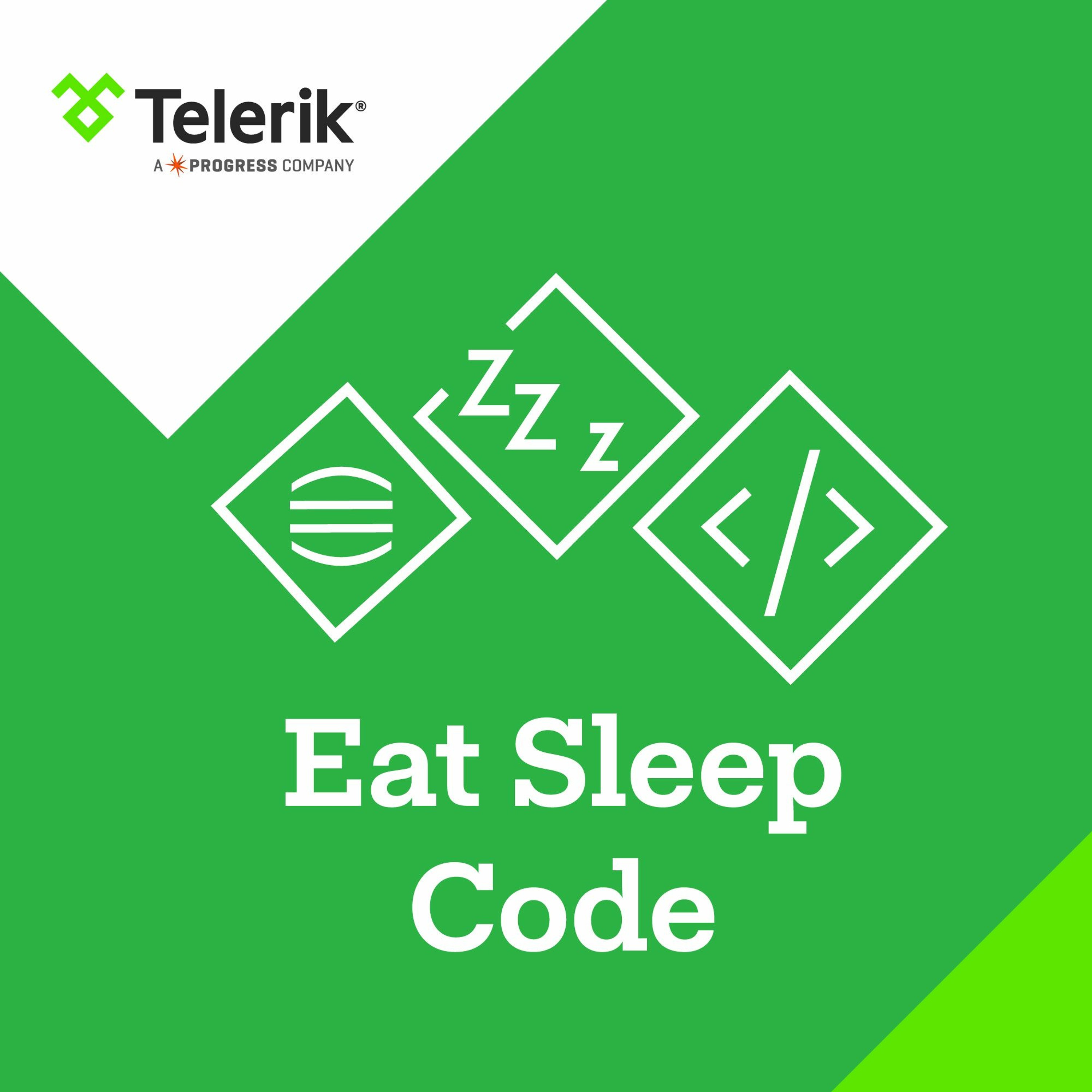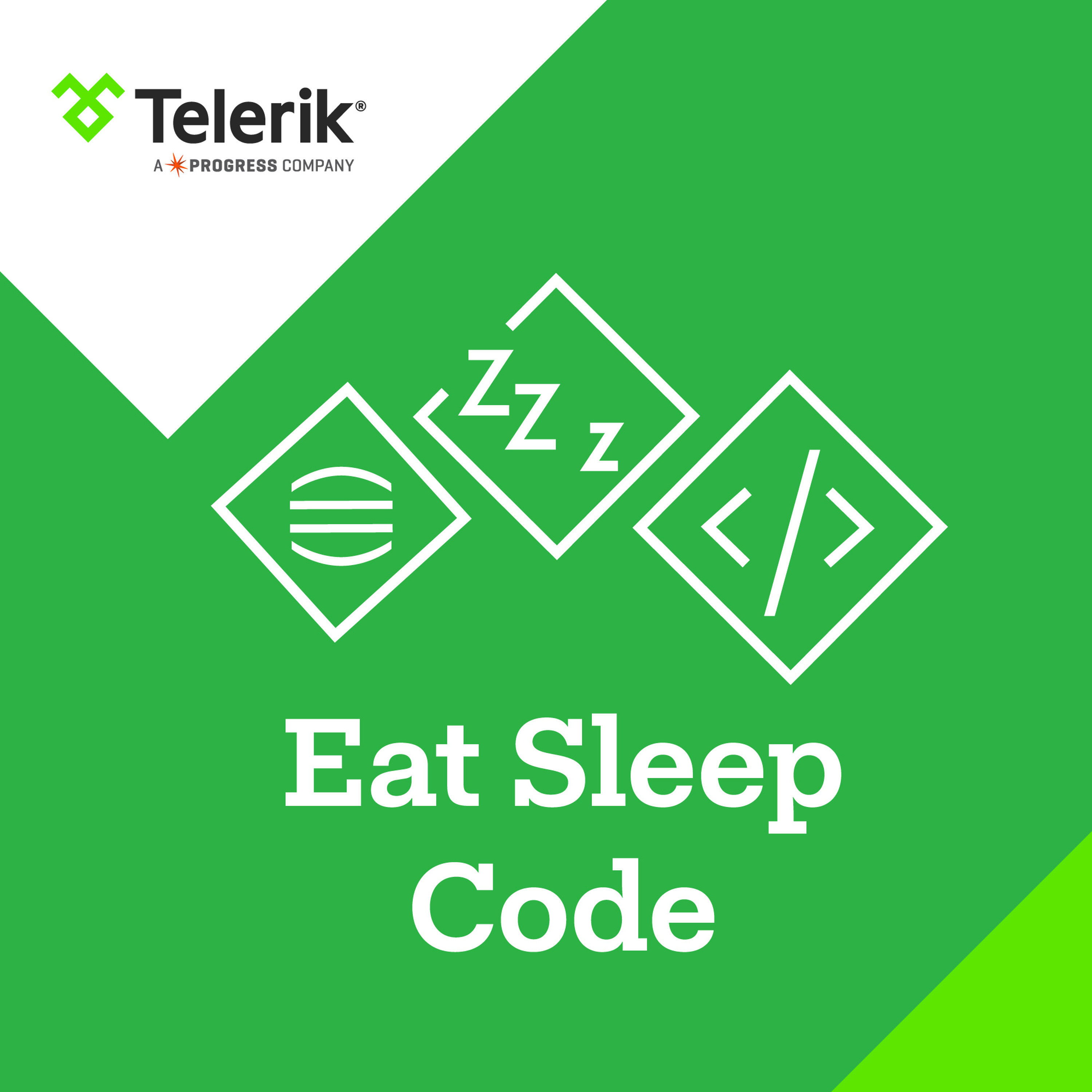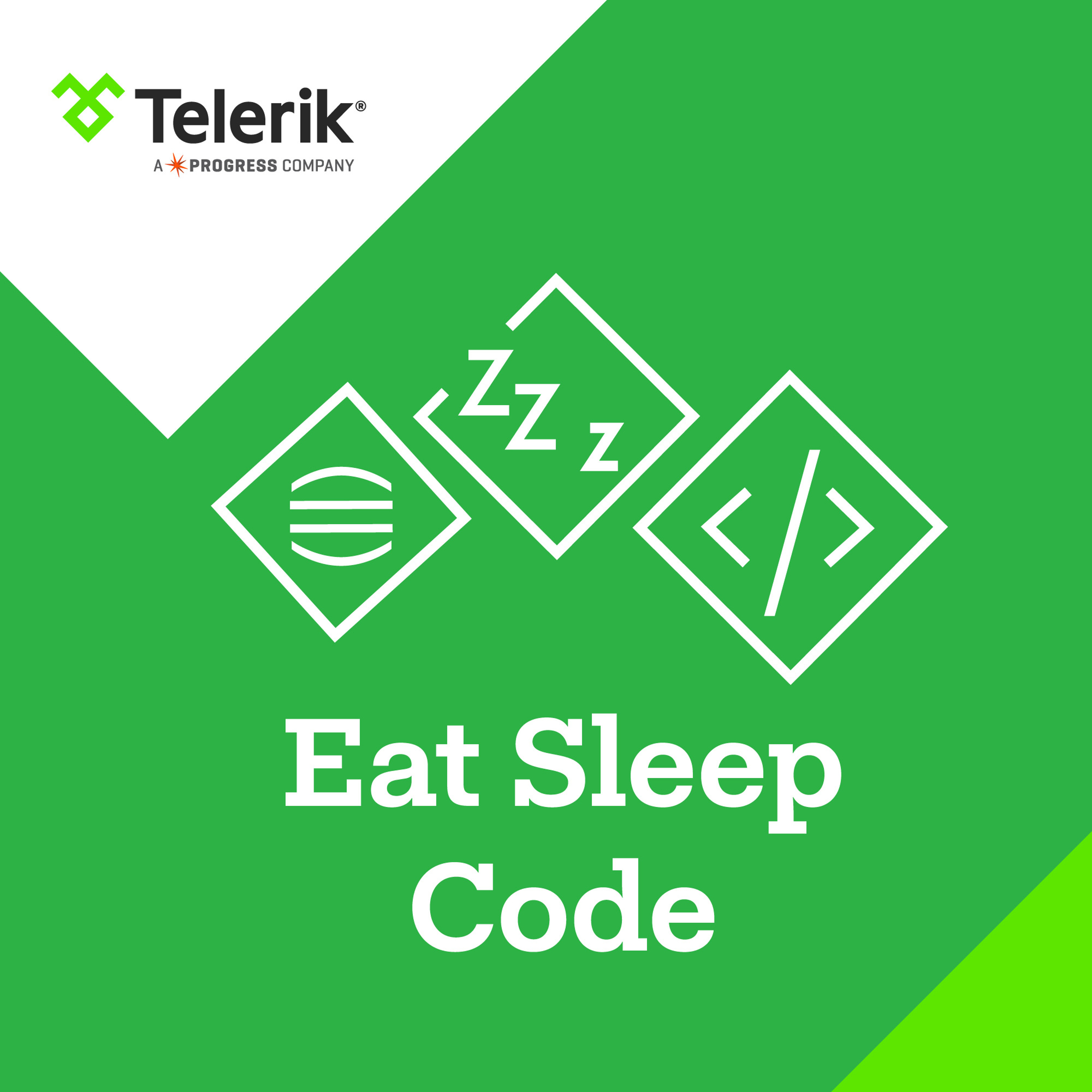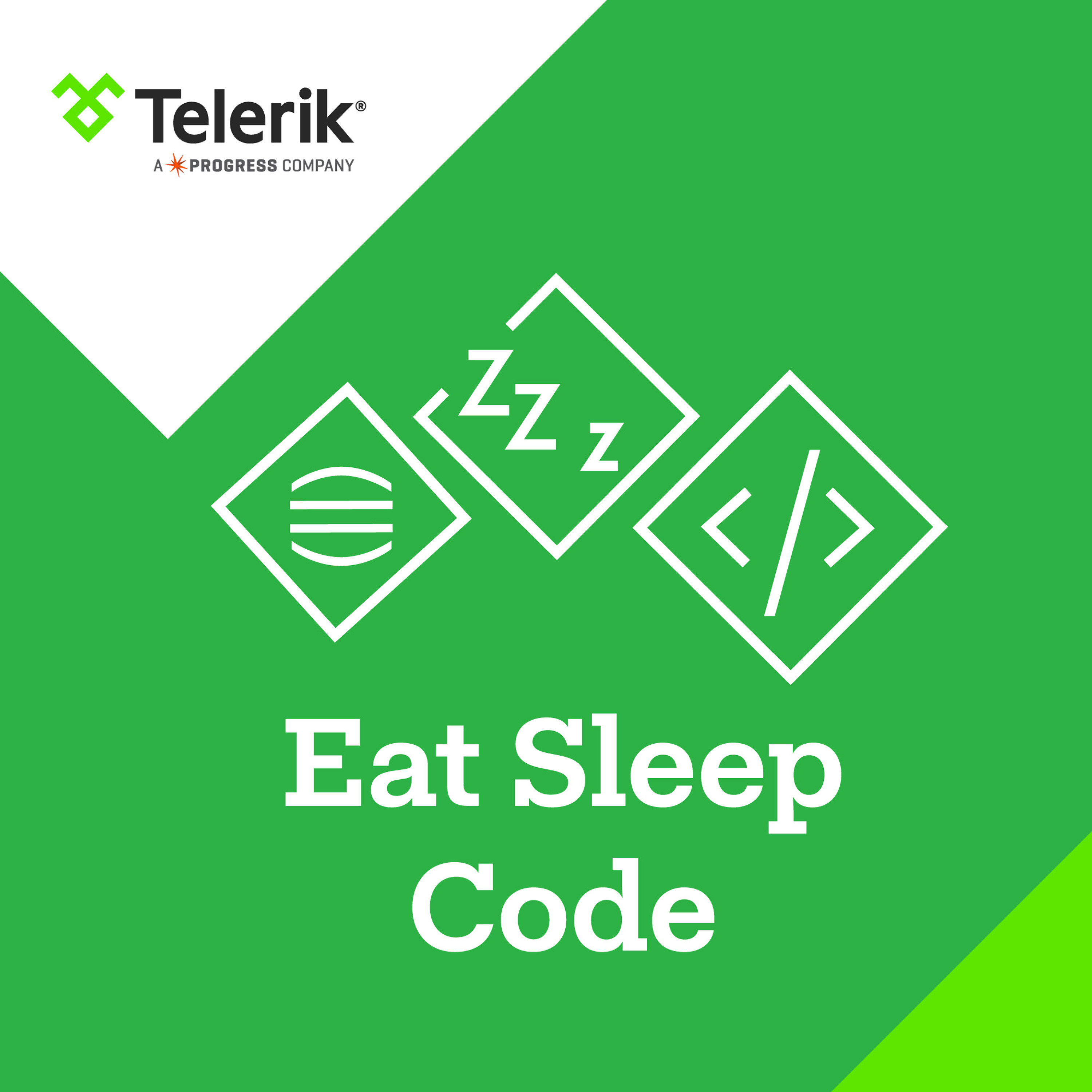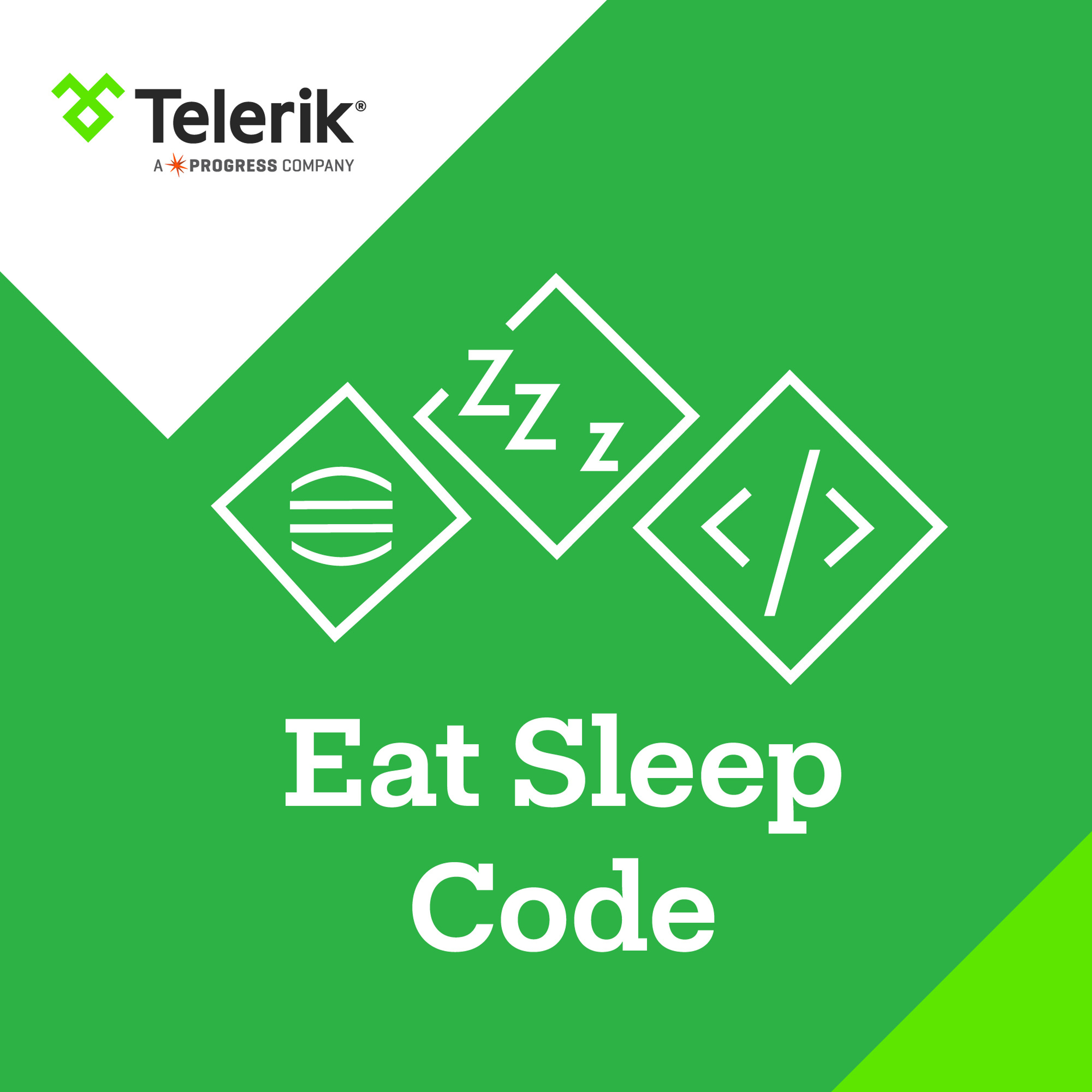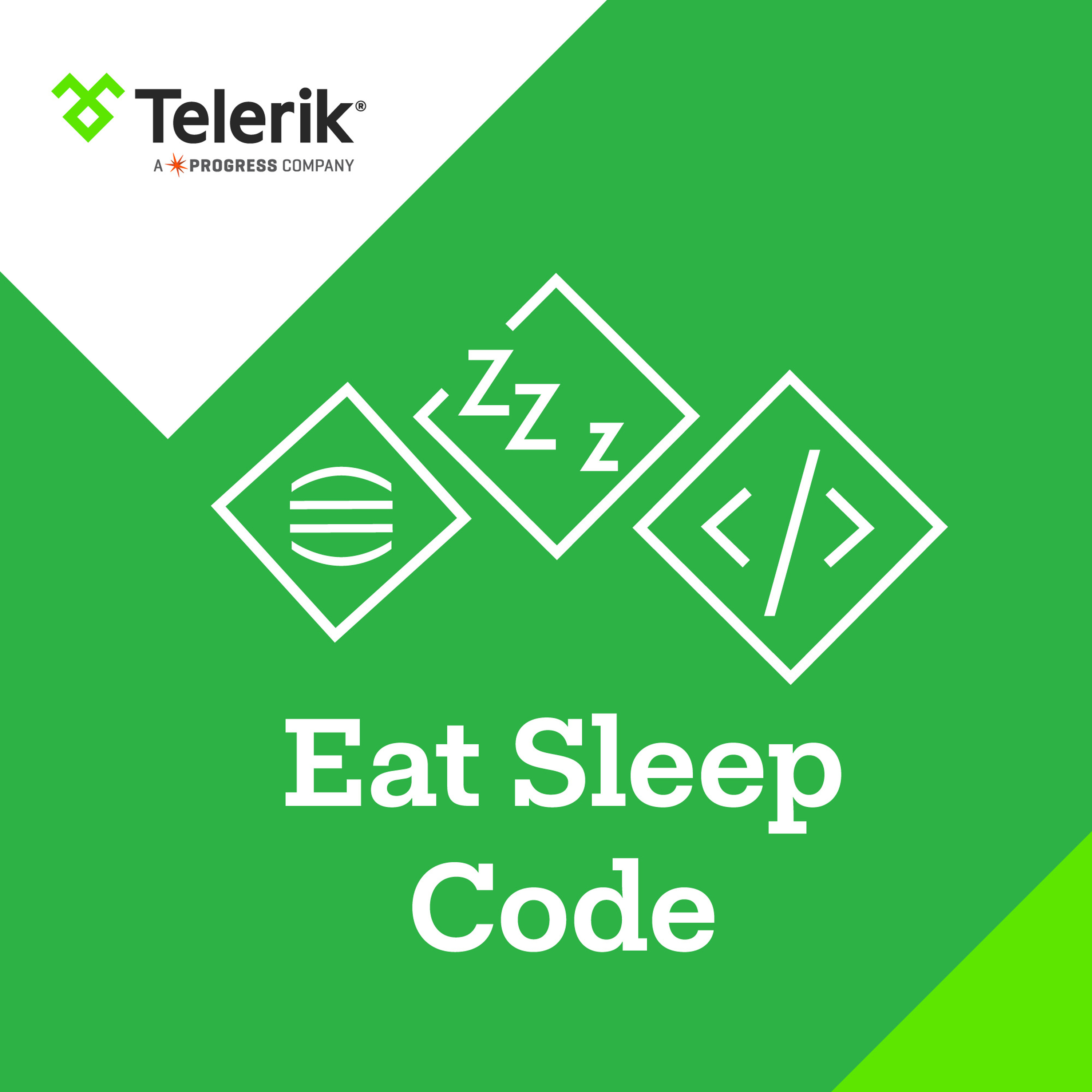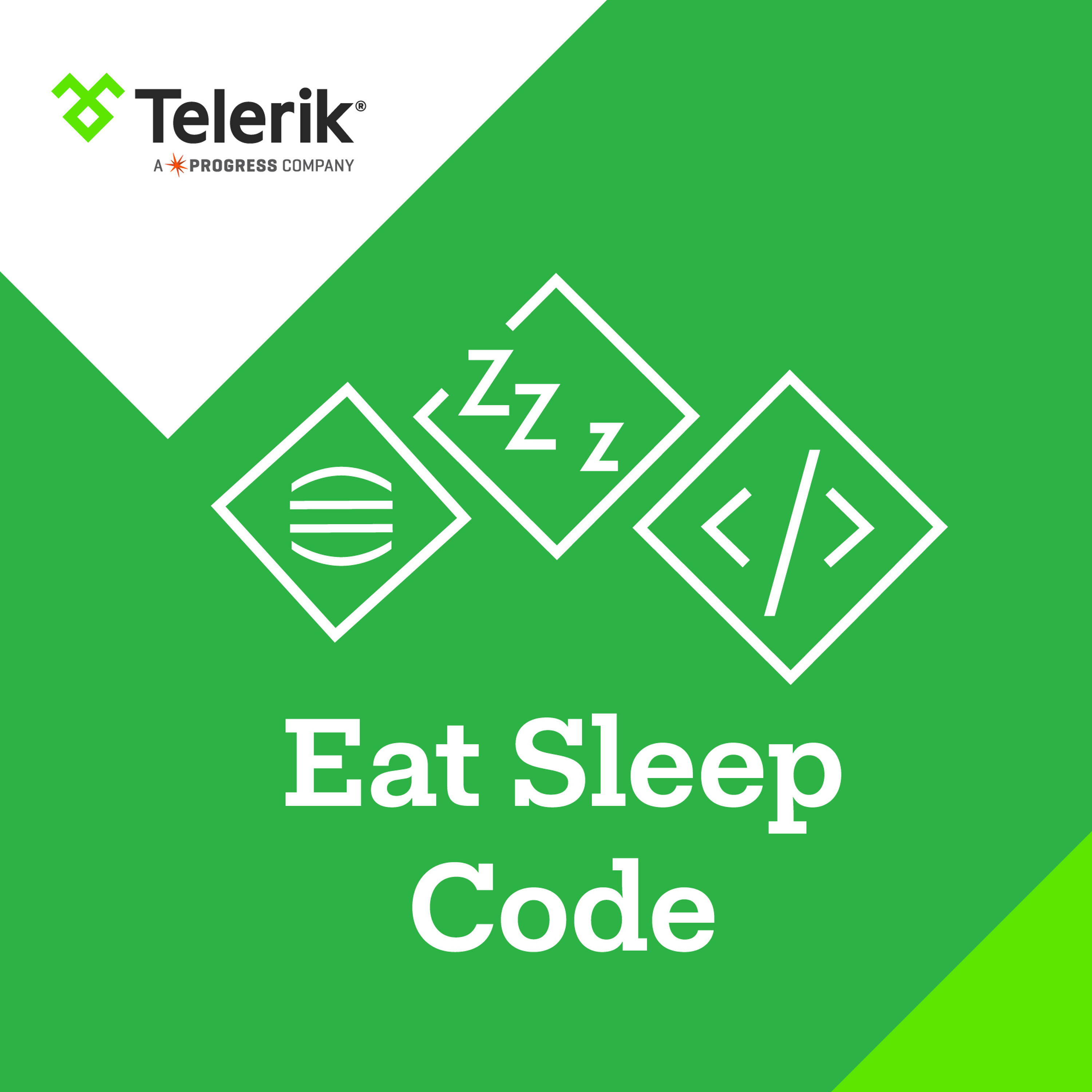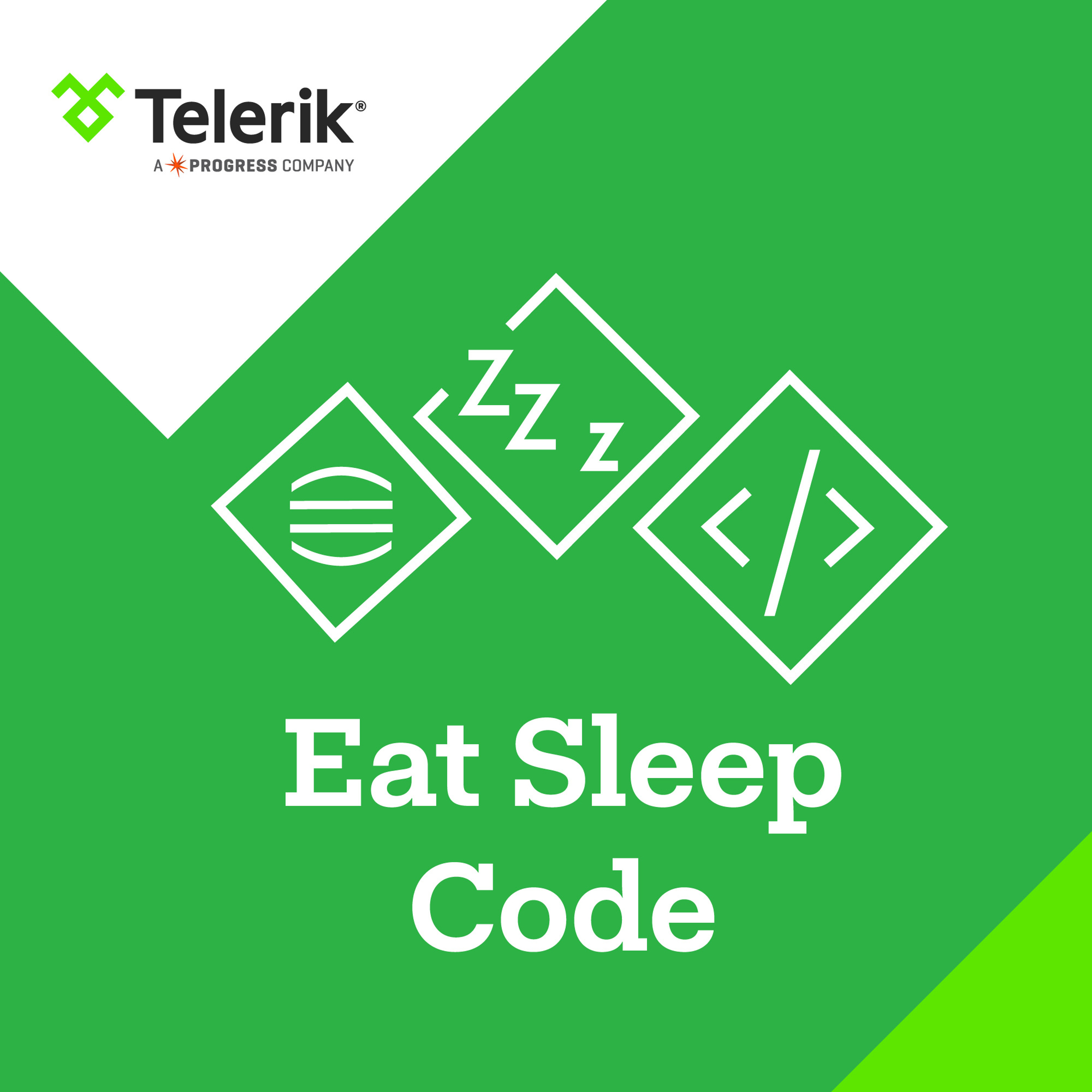Eat Sleep Code Podcast
Eat Sleep Code is the Official Telerik Podcast (Telerik by Progress). On Eat Sleep Code you'll hear from industry pros and developers just like you. Topics include all things software development and upcoming tech. Progress believes in giving back to the developer community and we do this by writing, speaking and staying in touch with the software development community.
Technology 102 rész Eat Sleep Code the Official Telerik Podcast
Tech Events Amid the Pandemic
66 perc
102. rész
On this episode of Eat Sleep Code, Ed Charbeneau and John Bristowe talk about the Tech Conferences initial response to the pandemic. Recorded 3.2.2020
https://www.theurlist.com/esc-news-3-2-2020
Eat Sleep News
63 perc
101. rész
On this episode of Eat Sleep Code, John Bristowe and Ed Charbeneau discuss software development and technology news from around the web.
Links from this show:
https://www.theurlist.com/esc-news-2-18-2020
Rock City A11y
44 perc
100. rész
On this episode of Eat Sleep Code, we talk to accessibility expect and front end developer Chris Demars. Chris discusses the current state of accessibility (a11y) on the web. We learn about common accessibility problems, mistakes and best practices.
Chris DeMars (https://twitter.com/saltnburnem) is a front end developer from Detroit, Michigan now living in Denver, Colorado. For his community contributions, he holds awards as a Microsoft MVP in developer technologies, Google Developer Expert in web technologies, and is an Oracle Groundbreaker Ambassador. Chris loves coming up with solutions for all types of applications, which include modular CSS architectures, performance, and advocating for web accessibility. When he is not working on making the web great and inclusive you can find him writing blog posts, recording episodes of his podcast, Tales From The Script, or watching horror movies.
http://chrisdemars.com/
https://www.telerik.com/
https://web.dev/
https://www.deque.com/axe/
https://uxdesign.cc/chrome-devtools-accessible-colors-300ec462a63c
https://www.w3.org/TR/WCAG21/
Net Core on the Desktop
26 perc
99. rész
On this episode of Eat Sleep Code, guests Olia Gavrysh and Daniel Jacobson discuss how .NET Core 3 will improve the Windows Desktop app development landscape. We discuss application compatibility, and building bridges between old app technology and new.
Blazor a live QA with Daniel Roth at Build
43 perc
98. rész
On this episode of eat sleep code, ASP.NET PM Daniel Roth answers live questions about Blazor. Blazor is a new SPA framework by Microsoft that enables full stack C# web applications by leveraging WebAssembly. Daniel fills us in on the latest announcements and estimates release dates for Blazor client and server side.
The Uno Platform And Web Assembly
40 perc
97. rész
On this episode of Eat Sleep Code, Jérôme Laban, Uno Platform CTO talks about the prospects of using Uno to create cross platform .NET applications. Jérôme also discusses the use of WebAssembly by Uno and what WebAssembly means for deploying .NET to the web.
Serverless Blazor talking Next Gen with Jeremy Likness
51 perc
96. rész
On this episode of Eat Sleep Code, Jeremy Likness talks about creating next gen web applications using Blazor & Serverless with Azure. Jeremy shares his interest in Blazor. How to implement serverless using the Azure serverless platform that includes Azure Functions, Logic Apps, and Event Grid is discussed.
Why You Should Learn TypeScript
41 perc
95. rész
On this episode, David Pine (Microsoft MVP) shares his experience with TypeScript. David talks about why TypeScript is a valuable tool for improving your experience with applications that normally are written using JavaScript. We discuss how to compile TypeScript, what are its strengths and how to get started.
Machine Learning With ML Dot NET
41 perc
94. rész
On this episode of Eat Sleep Code, Sr. Content Developer at Microsoft John Alexander talks about ML.NET, a set of new Machine Learning libraries for .NET. John explains the purpose of ML.NET and how it enables .NET developers to incorporate machine learning into their .NET (C# & F#) applications. ML.NET basics, extensiblity, and road maps are all discussed.
Meet the Vue Vixens
47 perc
93. rész
On this episode Jen Looper and Diana Rodriguez discuss Vue Vixens an organization of people who identify as women and who want to learn Vue.js to make websites and mobile apps. Jen and Diana share their story of creating and building successful developer community and growing Vue Vixens into a world wide organization.
An Augmented Reality Check
40 perc
92. rész
On this episode of Eat Sleep Code, TJ Vantoll discusses the current state of building iOS, Android, and cross-platform AR applications. TJ shares his insight on what technologies are currently available, how to get started, and what to expect when building mobile AR applications.
Living On The IoT Edge
33 perc
91. rész
On this episode of Eat Sleep Code, Carl Schweitzer a Software Engineer at Microsoft discusses IoT edge. Carl shares information about what is the IoT edge. We learn what devices, operating systems, and environments are compatible with IoT edge. We also touch on where Machine Learning fits IoT Edge.
New In ASP.NET Core 2.1 with Daniel Roth
53 perc
90. rész
On this episode of Eat Sleep Code, guest Daniel Roth talks about the "live release candidate" of ASP.NET Core 2.1. I sat down with Daniel Roth at Microsoft Build 2018 to discuss what improvements are coming in the release, and there's a lot to talk about. It's an exciting release that includes a brand spanking new SignalR/Azure SignlR, easy integration with OpenAPI (aka Swagger), Functional Testing support, and much more. Daniel discusses some of his favorite features like HttpClientFactor and experimental frameworks like Blazor.
Getting Started With Live Streaming
49 perc
89. rész
On this episode of Eat Sleep Code, Jeff Fritz shares tips on creating a successful live stream. Jeff discusses the hardware needed for "green screen" effects, broadcasting, and networking. We learn the differences between Twitch, Mixer and YouTube. Jeff also talks about the software required for streaming including custom widgets used to engage with the audience.
Blazor And JavaScript ES2017
27 perc
88. rész
On this Developer Digest of Eat Sleep Code, Ed Charbeneau and Brian Rinaldi discuss current industry topics. This week Ed talks about Blazor, the new web framework from Microsoft that brings the promise of native C# in the browser. Brian shares a story by Tara Manicsic about what's coming in ES2017.
Tim Huckaby Talks Computer Vision and Mixed Reality
52 perc
87. rész
On this episode of Eat Sleep Code, Tim Huckaby, Chairman/Founder, InterKnowlogy, talks about the future of technology with computer vision and mixed reality. Tim shares his outlook on how machine learning will change the way software developers solve problems. Tim talks about new methods of gauging user engagement with computer vision and sentiment analysis. Tim gives insight into modern day uses for future-forward technologies and the real world scenarios they are used in.
Developer Digest Statack Overflow Survey
40 perc
86. rész
Ed and Brian cover the latest news in the development community. This week we discuss the Stack Overflow Survey. What did the survey cost? What languages are most loved and wanted? Is Visual Studio Code taking over the industry? We share our opinions of the survey results.
From Access To Azure
42 perc
85. rész
On this episode of Eat Sleep Code, guest Andrew Cook shares talks about what it's like to be a software developer after changing careers as a paramedic. Andrew shares his experience with learning to code using Microsoft Access. He also discusses his current task as a consultant migrating existing applications to Azure
Developer Digest - Bootstrap Build Killer Robots
44 perc
84. rész
Ed and Brian cover the latest news in the development community including: Bootstrap 4 finally makes its official debut, Boston Dynamics shows us our new robotic overlords, and Microsoft announces Build 2018.
Bootstrap 4 is finally out after years of alpha - beta releases. What's new and what should you expect from the latest bits.
Boston Dynamics showed a video of robots of helping each other navigate difficult obstacles . The robots are capable of opening doors for each other.
Microsoft announces Build 2018. What we expect from this power house of tech. Eat Sleep Code will be there to deliver the news.
Changing Careers to Coding
41 perc
83. rész
On this episode of Eat Sleep Code, guest Julie Torres shares her story of switching careers. Julie, banker turned developer talks about coding bootcamps and learning to code. Julie outlines what to expect in a Jr. Dev interview, and other advice covered in her new book How to Become a Web Developer: The Career Changer's Guide.
A Look Back and Predicting 2018
62 perc
82. rész
On this Developer Digest episode of Eat Sleep Code, Ed and Brian review technology trends in 2017. Big announcements and events for the past year are discussed. Predictions are made for what 2018 may bring.
.NET Standard What's New
31 perc
81. rész
On this episode of Eat Sleep Code Maira Wenzel discusses what's new in .NET Standard. Maira talks about what it's like working on the .NET Standard docs team, and how rapid the technology is evolving. Brand new features like the API Analyzer and Windows Compatibility Pack are revealed.
Human Factors and Software Ergonomics
66 perc
80. rész
On this Episode of Eat Sleep Code, guest Sara Ford shares her experience with studying Human Factors and how it relates to software development. Sara explains how the study of ergonomics forms a basis for improving user experience and software ease of use. Cognitive biases when developing software products are discussed.
Finding Your Developer Community
36 perc
79. rész
On this episode of Eat Sleep Code guest Jay Miller talks about the importance of developer community and how to find your place among community peers. Community engagement, meetups, and online vs in-person activities are discussed.
React Redux and Retrospectives
69 perc
78. rész
On this episode of Eat Sleep Code, guest Margaret James shares her retrospective of web technologies leading up to modern front-end development using React. Margaret talks about her experience as a developer joining the industry two years ago and what it's like to look back on previous generations of JavaScript technology.
Debugging with Fiddler and Chrome Developer tools
31 perc
77. rész
On this episode of Eat Sleep Code, guest Robert Boedigheimer discusses debugging HTTP with Fiddler and Chrome Dev Tools. Robert talks about Fiddler and how it's used to sniff out mixed https content and what are protocol-less URLs. Robert shares his tips on performance tuning by troubleshooting website images. Working with Location APIs, and mimicking slow network traffic are also discussed.
ASPNET Core Razor Pages – Worth Checking Out
33 perc
76. rész
On this episode of Eat Sleep Code, Steve Smith discusses the new ASP.NET Core development model, Razor Pages. Steve outlines why developers shouldn't dismiss Razor Pages before giving it a proper try. How Razor Pages compare to WebForms, MVC, and Web API are discussed.
Azure For Developers
46 perc
75. rész
On this Episode of Eat Sleep Code, guest Michael Crump talks about why Azure is important to .NET developers. We learn how Azure goes beyond virtualization, hosting databases and deploying websites. Michael talks about his experience with Azure coming from a C# client app background and the “ah-ha!” moment with the benefits of moving to the cloud.
Developer Digest CSS, XAML Standard, Exporting
33 perc
74. rész
Developer Digest shows are back! This week Ed and Brian cover the latest news in the development community including: CSS selectors, XAML Standard, and Exporting to PDF from your application.
Implementing ASP.NET Core UIs
32 perc
73. rész
On this episode of Eat Sleep Code, Scott Addie discusses the various options for creating UI components in ASP.NET Core. Scott talks about TagHelpers, View Components, and if Razor is still used in the ASP.NET Core.
Developer Digest .NET Core and NativeScript
36 perc
72. rész
Developer Digest shows are back! This week Ed and Brian cover the latest news in the development community including: ASP.NET Core, NativeScript and Angular.
Degree Seeking Developers
32 perc
71. rész
On this episode of Eat Sleep Code, Chris Gardner shares his experience with higher education. Chris explains his "love for learning" and the challenges that degree seeking professionals need to be prepared for and the rewards that come from university education.
In App Communication with Twilio
26 perc
70. rész
On this episode of Eat Sleep Code, Brent Schooley shares his insights on creating communication enabled applications using Twilio.
Codepalousa Mobile Panel
60 perc
69. rész
On this episode of Eat Sleep Code, we're in front of a live audience at Code PaLOUsa talking about all things mobile. For this episode we've assembled a panel of mobile experts featuring Sam Basu, Mike Branstein, and Nick Landry to share their advice on tackling modern mobile development.
Cross Cutting Crossover
26 perc
68. rész
On this episode we crossover with the Cross Cutting Concerns podcast for a special dual interview show. Matt Groves talks about CAP theorem and the challenges of distributed databases. Ed Charbeneau shares his perspective on why it's important as a full-stack developer to understand machine learning.
How Your Brain Works Against You
22 perc
67. rész
On this episode of Eat Sleep Code guest Arthur Doler discusses how our brain interprets cause and effect, the ways in which it wants to think of things as narratives, and all the tricks it does to save itself from having to think. Arthur shares his perspective on cognitive bias and how it effects the software development process.
Care And Feeding Of Your New Junior Dev
28 perc
66. rész
On this episode of Eat Sleep Code, Mike Hand shares strategies for training and mentoring as well as some common and some less obvious pitfalls. When and how to give feedback are covered. In addition, Mike shares advice on using code reviews and pair programming to your advantage, and how to be the experienced developer juniors think you are, with the focus on practical dos and don'ts you can start using right away.
High Speed Bug Discovery With Fuzzing
23 perc
65. rész
On this episode of Eat Sleep Code, Craig Stuntz discusses his technique of using fuzzing to discover bugs in software. Craig shares his perspective on where fuzzing fits in the QA process, and why bug discovery is so critical to quality software.
A Monster Build Recap
28 perc
64. rész
On this episode of Eat Sleep Code, James Chambers unpacks the highlights from Microsoft Build 2017. The importance of AI and Machine Learning for developers is discussed. James shares his interest in using software for humanitarian efforts.
00:55 EC: Yep. So tell us a little about yourself, James. What do you do? Where do you work?
01:00 JC: I actually am an independent consultant and I work primarily in the space of ASP.NET Core these days and I do a lot of work in Azure. And I guess I’ve got the MVP award a couple of time or so, and recently released my fourth book with good friends of mine Dave Paquette and Simon Timms on the topic of ASP.NET Core.
01:25 EC: So Dave and Simon, you do a lot of work with these guys. You have a little bit of a show that you do as well on Channel 9.
01:31 JC: We do. We call ourselves the ASP.NET Monsters. We’ve got these little caricatures that are done. Anyways, so we have this cartoon persona where we go on and we code and pretend to know what we’re doing and share what we’re learning about ASP.NET Core with other people. And so yeah, we’re about 100 episodes in on Channel 9 and plugging along.
01:48 EC: Nice, congratulations.
01:49 JC: Thanks.
01:50 EC: It’s a great show, especially if you’re a.NET developer. Tune in and learn some cool tips and tricks. I learned a little bit about a cool open-source project that you guys had called GenFu.
02:05 JC: That’s right. So it’s a data generation library, it’s available on GitHub and via NuGet and it’s for.NET core. We’re working on back-porting it to support other frameworks as well, but what it does is you can basically take any type of entity and say give me a list of that entity, and rather than filling it in with nonsense data, it will actually do its best to intelligently recognize known properties, and then using an internal database, fill those with either random values that are generated or generated based off of values in the database. So it gives you realistic looking test data and sometimes that can make a strong impression when you’ve got a first draft of a prototype or you’re working with some sample data. So a handy little utility. I’ve been using it, some form of it, for over 15 years and then I finally got poked to put it out there a couple of years ago and Dave and Simon stepped in and that’s really where we started collaborating, and it’s just evolved from there.
Find out more at http://developer.telerik.com/content-types/podcast/monster-build-recap/
Windows Template Studio
27 perc
63. rész
On this episode of Eat Sleep Code, Michael Crump and Clint RutkaS from Microsoft discuss their project Windows Template Studio, a new getting started experience for Universal Windows Platform.
01:44 EC: This week there's a lot of amazing things being announced at Build. You guys are working on something that is coming out of this Build week. Why don't you give us a little introduction to the Windows Template Studio that you guys are working on?
02:05 CR: Okay, so Windows Template Studio is a... Helps out your File New experience. With UWP development, the templates basically that you have access to is a blank application. And for most developers, that could be a bit overwhelming and it helps... To build up a scaffolding for where you need to be can take multiple hours to just to get it functional when you're adding in, let's say six pages of background task, wanting live tiles. Let's say you wanna add in some, use the MVVM Light framework and add in suspend and resume. To do all that and to test it and validate, it takes multiple hours. We know this 'cause we actually asked one of our documentation experts to build an app and record it from start to finish. It took him about three hours. And we built out a dynamic generation tool that can do it in about 20 seconds with full clicking from start to finish.
03:13 MC: And I was just gonna add on to that last... That little piece is that I think a lot of the times that people get caught up in, "Okay, if I want to add X, Y and Z feature, I have to spend a ton of times in the documentation. I have to... " The typical developer may go and decide, "Oh, I'm gonna top this in and Bing or Google it. And it will hit me over to Stack Overflow, and I want to try to maybe find something that looks similar and then copy and paste. Or go try it, F5, and then go back to maybe some documentation." This is definitely designed to get you to that F5 experience, with the pages, frameworks and features that you need.
03:56 CR: And that's out of the gate. And the other great thing is, is that we call this Windows Template Studio. When your app is fully generated, you can F5 it. But all we do is build up the framework. We don't do everything for you because we can't assume what you, as a developer, want to do. So we have little to-dos. Like if you add in a background task. We have zero clue what type of background task trigger you want, or what that background task should actually functionally do. So, we add in a to-do that puts you exactly where that line of code that you need to start putting in stuff, and tell you this is where you need to do this. Or if you use a map control, we tell you exactly where to get the Bing map API key, and what variable you need to put that into. Out of the gate you can get quickly up and running to build out your app to do the cool stuff rather than the mundane stuff like building out the scaffolding.
04:55 EC: Let's try to visualize this for the folks listening. We're talking about Windows universal applications right now, so we're talking about the stuff that's in the Windows store, and you're running on your Windows desktop, HoloLens and things like that, right? So the UWP platform. And this is to augment the File New project experience where right now you get a blank application but it doesn't really do a whole lot. So you're saying it takes about three hours to build up something that's even moderately useful as a starter application. And in ASP.NET MVC, we have something that starts up. And we have things like Bootstrap installed, and some of the JavaScript libraries that we need. This Windows template studio gives us that experience, but there's a little bit more to it, right?
Read more at http://developer.telerik.com/topics/net/announcing-windows-template-studio/
Developer Digest Facebook Echo Look Software Developers
34 perc
62. rész
Ed and Brian cover the latest news in the development community including: what happened at Facebook's F8 event, what is a software developer, Amazon's Echo Look and Machine Learning.
HoloLars Talks HoloLens
37 perc
61. rész
On this episode of Eat Sleep Code guest Lars Klint talks about his experience with Microsoft's newest mixed reality device the HoloLens. Lars clarifies difference between Mixed Reality, Augmented Reality and Virtual Reality. We discuss SDKs and development with Unity (3d) and UWP (2d).
02:09 LK: I'm a freelance developer, so I'm doing my own thing but it involves a whole bunch of stuff and just to rattle off a few things, I'm a fellow podcaster as well. I run a podcast as well called The Dane and The Pain and we do tech stuff. It's not as developer-centric as you guys, but it's still pretty cool tech stuff that we find around the internet. I'm doing it with a guy I've never met that lives in Alaska, which makes it really interesting and we met through social media.
02:39 LK: I run a bed and breakfast, where I live, and I also have a used car business, parts and stuff for classic cars, but I also do software, obviously. And my thing is HoloLens, at the moment. I travel around the world. I do a number of different HoloLens talks. I do a workshop. I try and get the device into as many hands as I possibly can because this is just utterly mind-blowing when you actually get into it. That's my thing in the moment, is HoloLens, but traditionally, I've come from the Windows Phone background, been doing the whole Windows Phone, Windows 10 UWP journey, along with a lot of other HoloLens developers, actually.
03:23 EC: People out there probably maybe have heard of the HoloLens or something like Gear VR or some of the other virtual reality things. Let's talk a little bit about what is the HoloLens. What exactly is this device? And why is it different or how is it different from these other things that are out there?
Find out more at http://developer.telerik.com/content-types/podcast/hololars-talks-hololens/
Developer Digest Automapper Update, Native Mobile, Editors And JavaScript Dominates
28 perc
60. rész
Ed and Brian cover the latest news in the development community including: Microsoft ends it's quest to include an object mapper. We'll look at all the ways you can build Native Mobile applications that look professional. Your favorite text editors battle it out for a place in our hearts. And JavaScript Dominates the Stack Overflow Developer survey.
01:00 EC: Let me start off with a quick update about our previous shows. We covered some issues where Microsoft was trying to come up with their own object-mapper utility to bundle with '.NET MVC and that would have been probably '.NETs' Core MVC. And most of you guys out there that build those type of apps are probably already using something called AutoMapper, so I invited Jimmy Bogard on the show to give his point of view on what exactly was Microsoft trying to accomplish with this and it turned out to be a really good show focused on app security and talking about what Microsoft's idea was. Microsoft actually decided to back off the idea and they're kinda closed on the issue for now, so it looks like they've kinda left things as is. The community provided a solution for the problem and they're just gonna leave it that way for the time being. So that discussion is over with anyway, but it made for some great content. If you wanna go back and listen to Jimmy on the show, that was last week's podcast. Like I said, there are some really great points in there about security, if you haven't caught it already.
02:19 EC: So on Developer Digest shows, we go through our weekly or bi-weekly newsletter and cover some of the topics that were discussed in the newsletter. Some of the articles we highlighted in the newsletter and just kinda give our opinions on what the content was like in those articles and our experience. So first up we have "Creating Your First Native Mobile App With Visual Studio." So this is an article by... Or an article series rather, by Rob Lawler, one of our developer advocates here and he's kinda showing the ins and outs of creating a native mobile application in Visual Studio using NativeScript.
03:08 BR: Yeah. It's a good series, it's pretty detailed. He has four parts of it, all of which are pretty extensive. So obviously, he kind of talks about other options, being Xamarin being the obvious choice if you're a Visual Studio developer, but he explains why you might wanna consider NativeScript and goes into detail on how to actually build an app from the ground up and I loved his idea for an app. It's a Bill Murray app...
Find out more at http://developer.telerik.com/content-types/podcast/developer-digest-automapper-update-native-mobile-editors-javascript-dominates/
Automapper for .NET Core
33 perc
59. rész
On this episode of Eat Sleep Code guest Jimmy Bogard shares his perspective on Microsoft's basic object-mapper. Jimmy talks about the future of Automapper and support for .NET Core & .NET Standard.
00:57 EC: So I wanted to get you on the show today, because of a GitHub issue I saw on the MVC GitHub repository. And this GitHub issue is… It reads, “Basic object mapper for simple model view. View model property mapping.” And I have a feeling that you have some opinions about this, having one of… A very popular NuGet package for ‘.NET’ AutoMapper. And it’s been quite successful. And this, to me, it looks like it may step on your toes a little bit. So I wanted to get you to talk about kinda where you’re at and how this affects you. But before we get started, why don’t you give everybody a quick introduction of who you are and what you do, Jimmy?
01:56 JB: Okay. I guess I really write code for customers for a living. I work at a consulting company called Headspring out of Austin, Texas. And nearly all of the open-source stuff I work on, is just stuff that I build to help my clients. It’s just tools I wanted to keep using, and using, and using as we go from client to client. And so, almost everything that I write and use these days with open-source is stuff I’m actually using on client projects, that I don’t wanna lose when I go to the next client.
02:33 EC: And you have this tool called AutoMapper, which is an object mapping tool. Why don’t we give everybody a quick elevator pitch. What is an object mapper?
02:46 JB: Well, the basic idea is I have two objects that look pretty similar, and my general use case was I’m building web applications in ASP.NET MVC, typically. And I have a rich domain model that’s bound to the database in some way or another, usually with an ORM, like in any framework. But then, I had this other thing I’m using to show information on the web, either for showing forms, or also posting data from the web. And you have this general problem, and that’s your backend object is generally very rich and behavioral, and has a lot of things associated with it, but the thing you’re coming in from the web, is generally not. And you typically don’t wanna mix those two things together. So about… Gosh, eight or nine years ago, I saw this issue of when we’re starting out MVC, that we wanted to have these DTOs that we use for the MVC side and have these rich backend objects. But what would be the mechanism that we copy that information from the rich backend objects to the frontend dumb DTO objects? And I didn’t wanna do that all by hand, and I looked around, and saw there really wasn’t anything that did it for you automatically. And so, I created AutoMapper as a way to automatically figure out how to copy information from one object to the other.
04:12 JB: Probably a stupid idea. That didn’t seem that complicated, but there were a few things that I wanted to have out of the box that would help us out. One of the big ones was flattening, so if you have “foo.bar.baz” on your destination object, you could just have a single property, “foo, bar, baz.” And it would automatically traverse those associations, and figure out how to flatten that object for you. It handled nulls as well. If foo was null or bar was null, it’d be able to handle that as well. And the other big thing that I wanted to do, was make sure we could test it as well. So if I misspelled something or removed a property, I could just have one line of… Just check all my configuration is valid, and all the names match up, and there’s nothing missing. And if there is, go in exception, so it’s really easy for us to test, to say, “Make sure all my mappings are good.”
Find out more at http://developer.telerik.com/content-types/podcast/automapper-net-core/
Developer Digest Micro Packages Angular 4 and Object Mapper
40 perc
58. rész
Ed and Brian cover the latest news in the development community including: Micro packages, Angular 4 launches, and is Microsoft writing its own Automapper alternative.
Getting Personal with Handwriting
27 perc
57. rész
On this episode of Eat Sleep Code guest Trey Stout shares his story about the challenges of utilizing handwriting in software and what problems handwriting solves for users. We discuss the technology stack behind Handwriting.io and ScribbleChat, as well as the engineering involved in these products.
Developer Digest Machine Learning Bots And Visual Studio
35 perc
56. rész
Ed and Brian cover the latest news in the development community including: our personal projects using chat bots and Azure Machine learning, Visual Studio 2017 features, and NativeScript 3.0
Microsoft Cognitive Services And Friends
36 perc
55. rész
On this episode of Eat Sleep Code guest David Giard discusses Microsoft Cognitive Services, functionalities, and how they're used. We brain storm ideas for the future of cognitive APIs and what UX problems they will eliminate.
Bullying in Open Source Software
38 perc
54. rész
On this episode of Eat Sleep Code, Tara Manicsic shares her stories of bullying in open source software. Learn how to manage issues on your GitHub project and minimize the trolling by remembering there are people in the process.
Developer Digest Web and Mobile
32 perc
53. rész
Ed and Brian cover the latest news in the development community including: Kendo UI's Birthday, Angular Observeables, Push Notifications, and NativeScript
Future Tech Fanboys
49 perc
52. rész
On this episode of Eat Sleep Code, Eric Bishard drops by to talk about the future of energy, transportation, and how software will transform the products we use every day.
The .NET Core 2 Wave with Scott Hunter
51 perc
51. rész
Will 2017 be the year of .NET Core? Of course it will! I sat down with Scott Hunter (Director of Program Management for the .NET Platform) on the Eat Sleep Code podcast to talk about all things .NET. Scott shared plans for an exciting year of .NET development including the .NET Core 2 Wave, which includes the .NET Core 2.0 release along with .NET Standard 2.0, adoption strategies, and Visual Studio 2017 tooling.
00:27 EC: Scott is the Director of Program Management for the Dot NET platform. This includes the Dot NET framework, Dot NET core and the managed languages. Scott, I’m glad to have you on the show today.
00:39 SH: Yeah, I’m glad to be here. Looking forward to chatting about Dot NET with you.
00:45 EC: Yeah. It’s a great way to kick off 2017, this being the first show of the year for me, appreciate you making time to do this, and we’ve got a lot of stuff going on in this new year with Dot NET, so this is a great topic.
01:00 SH: Yeah, it’s been… I joined Microsoft in 2007. I was a web developer, I guess is the best way to describe it. So, I was a web developer and I joined in 2007, and joined the ASP.NET team. And that was interesting because, as an external person, I walked in, going, “Hey, this ASP NET thing is gonna be this huge team.” And I remember walking in and I realized, “Oh my God. We only have like 12 developers, and three or four PMs,” and we had support staff as well. So the whole team was under 30 in size when I joined in 2007, and it’s… Externally, I think I was just imagining Microsoft, this huge company, that ASP NET was gonna be this massive team. But it was a great team because even though it was a small team, we got a lot of crap done because we… Everybody was super effective and everybody loved the platform, and I think we did more with a smaller group of folks than people would ever imagine. And a lot of things that we started back then in 2007 are the things that you see in Dot NET all up today. The ASP NET team was one of the first teams… I was gonna say in 2008, we started open sourcing ASP NET MVC for the first time, and then, by 2012, we had actually open-sourced the platform, all of the ASP NET platform by then. And now, look at Dot NET today, and we’ve got Dot NET core, and the entire Dot NET framework is open source out there. So, it was… Some of those things we did back in those days were the seeds that have grown and built a platform today.
Continue reading at http://developer.telerik.com/topics/net/the-net-core-2-wave/
Goodbye 2016
39 perc
50. rész
Brian and Ed cover the latest news in the development community and say goodbye to 2016 with predictions of what's coming in 2017.
Scaling UI Patterns
48 perc
49. rész
On this episode guest Kevin Mack talks about reusable UI components and utilites. Building scaleable web UIs using responsive web design techniques is discussed. Kevin shares his insight on creativity, community and ideas for AI powered development.
Big Announcements at Microsoft Connect
32 perc
48. rész
On this episode of Eat Sleep Code, guest Jeff Fritz a Senior Program Manager at Microsoft, shares news from today's Microsoft Connect event in New York. Jeff discusses Visual Studio 2017 RC's new productivity, debugging and quick installation features. We chat about Visual Studio for Mac and SQL Server for Linux. Jeff shares what .NET 1.1 has to offer and what Tizen means for .NET developers.
TDD 13 Progressive Web Apps and Bootstrap 4
26 perc
47. rész
Ed and Brian cover the latest news in the development community including: Progressive Web Apps, What's happening with Bootstrap 4, and Google's NuGet packages.
A lap around push notifications
36 perc
46. rész
On this episode of Eat Sleep Code, guests Simon MacDonald and Sam Basu discuss best practices when using push notifications in your application. Simon talks about his involvement with Apache/Cordova and his push notification plugin for PhoneGap. We chat about push notifications across platforms including in the browser. Push notification testing is covered and much more.
TDD12 jQuery and Migrations
28 perc
45. rész
Ed and Brian cover the latest news in the development community including: jQuery and JavaScript migration topics.
Talking Software Craftmanship with Steve Smith
24 perc
44. rész
On this episode guests Steve Smith and Sam Basu share their thoughts on software craftsmanship, clean code, and software quality. Are you taking steps to create maintainable, and testable code? Find out what you can do to get started.
Developer Digest 11 Conferences, Whitepapers, and Webinars
31 perc
43. rész
Ed and Brian cover the latest news in the development community including: Angular Connect, NYC Code Camp, the resurgence of the command line, the modernization of SharePoint, and Responsive web design.
Music TDD and D&D
44 perc
42. rész
On this episode of Eat Sleep Code, guest Guy Royse discusses his Test Driven Development workshop "Putting the D&D in TDD". Guy shares his career experiences with Test Driven Development, speaking, presenting, and refactoring code. Recorded at Music City Code 2016 in Nashville, TN.
Guy's Blog - http://guyroyse.com/
Guy Royse on YouTube - https://www.youtube.com/channel/UCNt5SDc6LosO41E77jr59cQ
Putting the D&D in TDD - http://www.slideshare.net/GuyRoyse/putting-the-dd-in-tdd
The Evercraft Kata - Putting the D&D in TDD workshop - https://github.com/PuttingTheDnDInTDD/EverCraft-Kata
Developer Digest 10
33 perc
41. rész
Brian and Ed cover the latest news in the development community including: ASP.NET, Angular 2, NativeScript and new programming languages.
Into the Next Dimension
53 perc
40. rész
Are we headed into another dimension where data is the new frontier? I addressed this question in a session called "Into the Next Dimension".
Developers today is we need to pay attention to evolving platforms and the rapid rate at which they are expanding. I outlined three key technologies that will shape the future: Big Data, Machine Learning, and Augmented Reality.
Developer Digest 9
46 perc
39. rész
Ed, Brian, and special guest Todd Motto cover the latest news in the development community including: Angular 2 migration, React component wrappers, the right and wrong way to contribute to opensource, and much more.
Developing WorldVax an Open Source Aid Project
32 perc
38. rész
On this episode of Eat Sleep Code, guests Jeffrey Miller and Dennis Dunn talk about WorldVax, an open source humanitarian software that tracks immunizations administered to patients in remote areas of the world. Jeffrey and Dennis talk about how their careers lead to a humanitarian passion project and discuss what technologies are involved in creating an open source mobile app for developing countries.
Developer Digest 8
41 perc
37. rész
Brian and Ed cover the latest news in the development community including: Pokemon Go, ASP.NET Core, and JavaScript dependencies.
Couchbase and polyglots
38 perc
36. rész
On this episode of Eat Sleep Code, guest Nic Raboy talks about Couchbase, NoSQL databases and what it's like to work with data persistence in a polyglot world.
Developer Digest 7
42 perc
35. rész
Ed and Eric Bishard cover the latest news in the development community including: Linting, Ad-Blocking, NativeScript, and Angular Migrations.
The Software Developer Mindset
50 perc
34. rész
On this episode of Eat Sleep Code, guest Julie Lerman talks about the Software Developer mindset. How do developers operate in an atmosphere of constantly changing technology while still maintaining legacy code, learning, teaching, striving to be an expert and shipping product? Julie shares her experiences with work-life-balance, travel, and mentoring. We discuss tooling and tech including: Mac vs. PC, FoxPro to Aurelia, and much, much, more.
http://developer.telerik.com/content-types/podcast/software-developer-mindset/
00:51 EC: Hello, and welcome to Eat Sleep Code, the official Telerik podcast. I’m your host, Ed Charbeneau, and with me today is Julie Lerman. Hi, Julie.
01:00 Julie Lerman: Hi, Ed.
01:01 EC: And today, we’re gonna talk about the mental processes of a software developer. So we’ve got a little bit of a soft skills talk lined up. But first, let me introduce Julie. Julie is a Pluralsight author, you may know her from the Entity Framework or data part of software development. She’s an author of several Microsoft books on that topic. And she is also the author of the Data Points column on MSDN magazine. You will frequently see her at many conferences. I personally had the honor of seeing her do a keynote at CodeStock a couple of years ago, and really enjoyed that. And you can find her website at thedatafarm.com. And she’s also newly the Microsoft regional director. So with that said, Julie, did I miss anything? Would you like to add anything to that?
Find the full transcript on Telerik Developer Network
http://developer.telerik.com/content-types/podcast/software-developer-mindset/
Developer Digest 6
45 perc
33. rész
Ed and Sam Basu cover the latest news in the development community including: Angular 2, NativeScript snacks, ASP.NET Core RTM, and Windows CLI.
http://developer.telerik.com/content-types/podcast/developer-digest-6/
00:01 Ed Charbeneau: This podcast is part of the Telerik Developer Network. Telerik, by Progress.
[music]
00:18 EC: Hello and welcome to Eat Sleep Code, the official Telerik podcast. I’m your host, Ed Charbeneau, and today my co-host for the Telerik Developer Digest episode will be Sam Basu. Hey, Sam.
00:32 Sam Basu: Hey, Ed. How you’re doing?
00:35 EC: Good. We have a busy week with the Telerik Developer relations. Brian is out, so thanks for filling in for him.
00:43 SB: No problem.
00:46 EC: So, I’m gonna kick things off a little differently this time. We have a really cool program going, called All Your Snacks Are Belong to Us. This is a NativeScript DevRel initiative. So, the NativeScriptSnacks website is this really cool place where you can go get these five minute or less videos on how to do something really awesome in NativeScript. So there’s a campaign going to get people out there and submit some videos of your own, and we have some cool sunglasses and stuff that we’re giving away. So I asked Jen Looper, who is in charge of this really cool contest, or whatever you wanna call it, to just kinda give us a little info on what the contest is all about and how to get involved. So I’m gonna hand it over to Jen, and then we’ll get back to the show in a moment.
01:53 Jen Looper: Hi, everyone. This is Jen from Developer Relations and I’m happy to announce a fun summer program that we’ve launched on the NativeScript community Slack channel. First of all, if you aren’t on that channel, you can join by visiting NativeScript.org, clicking Community, and then Slack Channel and requesting an invitation. And we have a lot of fun times on that channel, I’ll tell you. Second, we’ve launched a bounty program from within that Slack channel which involves submitting any short video tutorials or code snippets for NativeScript apps. So this summer, if you submit a snack, what I call a snack, to NativeScriptSnacks.com, I will personally ship you a pair of NativeScript sunglasses. And these are really nice, comfortable, good-looking glasses. You’re gonna need them during the dog days of summer. So please, visit NativeScriptSnacks.com, submit a snack and tell us all about it on Slack. Thanks a lot.
02:43 EC: Okay, Sam, we’re back with the next topic at hand. We had an article by Peter Filipov this week, and the title of the article is “Every ASP.NET web developer can be a mobile developer”. So Peter’s discussing the similarities between ASP.NET web forms and NativeScript. So, Sam, what’s your take on this comparison? Is this something that’s really similar, or how were those similarities broke down, what do you think?
03:21 SB: Yes, I think so. But before we get into it, just maybe a quick introduction. Peter Filipov is actually our colleague on the Developer Relations team. He comes from a very technical background. He used to be one of the PMs in our ASP.NET developer tools division for Telerik, and he has come over from Sofia and now he is a PM and a DevRel for Sitefinity, so he really comes from a very diverse and technical background. And I think what he’s doing, and he’s got a couple of articles this week, he’s trying to draw some parallels between the world that he comes from of ASP.NET and Sitefinity, and bringing that experience over to NativeScript, which is our cross-platform way of making Native mobile apps. And I think he makes some very convincing points.
Find the full transcript on Telerik Developer Network
http://developer.telerik.com/content-types/podcast/developer-digest-6/
All In With Three Amigos
37 perc
32. rész
Are you running Three Amigos conversations for each work item/user story your team does? If not, start now. Seriously. Jim Holmes shares his advice on using the Three Amigos approach. http://developer.telerik.com/featured/all-in-with-the-three-amigos/
00:01 Ed Charbeneau: This podcast is part of the Telerik Developer Network. Telerik, by Progress.
[music]
00:08 EC: Hi. This is Ed Charbeneau with Eat Sleep Code and I just wanted to let you guys know that we are trying to make the show better. So we've set up a survey at developer.telerik.com/survey and we're collecting feedback from listeners to see what we can do to make the show better for you. So please stop by developer.telerik.com/survey and fill it out. We'd appreciate it. We've also got 10 licenses to Telerik products and T-shirts that we'll be giving away to 10 lucky winners. Thanks for your help.
[music]
00:53 EC: Hello and welcome to Eat Sleep Code, the official Telerik podcast. I'm your host Ed Charbeneau and with me today is Jim Holmes. How you doing, Jim?
01:01 Jim Holmes: I'm doing very well.
01:04 EC: And today, we're gonna be talking about going "All In With The Three Amigos." We'll explain that in a moment. Let's start with a little bit about you, Jim. Tell us a little bit about yourself.
01:19 JH: So let's see. I will avoid going back to the dawn of time when I was born. I've been around various corners of software delivery coming up on 30 years now, so I'm an old fart. But I've done a lot of different roles, PM, developer, have been customer relations, I've done support. My focus really for kind of the last 10 or 15 years has been diving deeper and deeper into getting good quality out of software delivery teams, and have really been focusing a lot on kind of a human communication and how we get all of the hardest stuff, which is not the technology, but communication, collaboration, clarity, and what we're really trying to build and how to do it well.
02:15 JH: I'm currently an executive consultant with Pillar Technologies. That's a midwest consulting firm, although we've got offices around other places. I've got a side company, Guidepost Systems, that lets me also do different types of engagements. Used to work for Telerik. Was there about three and a half years working with the awesome folks on Test Studio. I was both the evangelist for all of that time and then for about a year, a year and a half, I also was director of engineering for that, and got to work with the teams in Austin and Sophia. So, Telerik is near and dear to my heart even after the merger with Progress, I still fondly think of... Gosh, I guess it's been about a 10-year association with Telerik. So, that's it for me.
03:11 EC: Well, thanks for sharing that with us, Jim. We appreciate the Telerik love, definitely appreciate your input on the Test Studio Project over the years. It's quite the useful tool that... I don't get enough chance myself to get involved and talk about. Really wish we still had one of the Test Studio evangelist spots in our team of evangelist folks.
03:44 JH: Right, right. It's a wonderful tool and I was lucky. They made the evangelist spot for me. When I started talking with Telerik years ago about coming on board, it was because I'd seen Test Studio. And it's not the perfect tool for everybody, but the thing was, it solved so many problems that I was struggling with on a regular basis. I fell in love with it and was doing the right sorts of things. You can have tools that kinda lead you off down a very bad path, and a few months after you've dived into this tool, it turns out that all of a sudden you're in the midst of a whole bunch of pain because it wasn't doing maintainable solutions, and...
Find the full transcript on Telerik Developer Network http://developer.telerik.com/featured/all-in-with-the-three-amigos/
Developer Digest 5
34 perc
31. rész
Brian and Ed cover the latest news in the development community including: JavaScript, CQRS and REST, .NET CLI, and Open Source stats.
Where The Web Is Going In 2016
39 perc
30. rész
Jared Faris dives deep into the near future of the web with ES2016, Web Standards, Services Workers, and HTTP/2. It's an epic web episode you don't want to miss.
Developer Digest 4
37 perc
29. rész
Brian and Ed cover the latest news in the development community including: Bots-bots-bots, .NET Core RC2, Project.json, and NativeScript.
http://developer.telerik.com/content-types/podcast/developer-digest-4/
E: Hello and welcome to Eat Sleep Code, the official Telerik podcast. I’m your host, Ed Charbeneau, and with me today is my co-host, Brian Rinaldi. Brian, how’s it going?
B: Hello, it’s going great.
E: And today’s another Developer Digest episode, and we have some great articles that we collected from the web to share with you guys, and we post those on our Telerik Developer Network, and we’re gonna give you our commentary on those and then you’re welcome to go find those on our website, and read them or sign up for the newsletter. So, let’s kick things off with our first article by the always amazing Jen Looper. And she’s got an article called bots! bots! bots! And it’s pretty much about bots. So, like Microsoft, and Google, and Facebook, at their big keynotes this year, have all come out with their own bot frameworks. And it seems like 2016 is the year of the bot, right?
B: Absolutely, in fact, I talked to somebody… This was a PhoneGap Day earlier in the year. They were telling me before things had really taken off, they were like, “Bots are gonna be the thing.” I guess they were right. So, it just really seems like it’s taken off. Every company is releasing a bot platform, people are writing bots left and right. I think it’s really cool. I think the reason probably is it’s easy to interact with. It’s just natural to interact with a bot if it’s done well, right?
E: Yeah. In my opinion, I think some of the relativeness of bots and why they’re kind of making a comeback, and I say making a comeback, ’cause we’ve had bots in other chat platforms for years, but those things were always command driven, right? You always had to slash some command and then some parameters for that command and the bot may throw an emoji out or something. But now, we’ve got this machine learning from all the big software manufactures and it’s a lot easier to parse through natural language and figure out what people are talking about, what they’re discussing, and less reliance on the specific keywords to make a bot do something. You can kind of glean what the conversation’s about or what the question was, and the big companies like Microsoft, Google and Facebook, are making APIs to help facilitate that stuff.
B: Yeah, totally. And on that note, all of this blends together with not just bots that you type to, but also ones you speak to. Things like Amazon Echo or Google have their Google… I forgot what they called their one that they released at I/O, or announced there anyway [editor’s note: Google Home]. So, I actually have an article coming up about writing for the Echo. In that case, the commands are spoken. In the end, there’s really not a lot of difference because the commands are spoken but then translated into text that I then parse and respond to. And then I send back text and that text is just spoken. So, it’s effectively the same kind of thing as these bots, but I think you’ve noticed companies starting to add those voice assistants into just about every device that they have, and people like to use them. So, it’s one of those things that I’m always kind of skeptical of the next big thing, like wearables and VR and things like that. I’m a little skeptical that those are really gonna be quick to catch on. Wearables is obviously a market but it’s somewhat small. And VR still hasn’t proven that it’s necessarily useful to me. But this one, I think it’s so simple to interact with, and the ability to either just naturally type or naturally speak makes it just a no brainer.
Find the full transcript on Telerik Developer Network http://developer.telerik.com/content-types/podcast/developer-digest-4/
Developer Digest 3
39 perc
28. rész
Brian and Ed cover the latest news in the development community including: Slackbots, security tips, spreadsheets, and NativeScript.
What's new in .NET Core RC2
61 perc
27. rész
On this episode of Eat Sleep Code, Jeff Fritz from Microsoft talks about the .NET Core RC2 release. Changes in the CLI, package.json, and the Standard Library are discussed.
http://developer.telerik.com/featured/net-core-goes-rc2/
0:00:00 Ed Charbeneau: This podcast is part of the Telerik Developer Network. Telerik, a progress company.
[music]
0:00:11 EC: Hello, and welcome to Eat Sleep Code, the official Telerik podcast. I’m your host, Ed Charbeneau, and with me today is Sam Basu and Jeff Fritz. Morning guys. It’s Friday the 13th, how you doing?
0:00:24 Sam Basu: Morning.
0:00:25 Jeffrey Fritz: I’m terrified. What’s gonna go wrong today? Look out.
[laughter]
0:00:31 EC: Now, I’ve got Sam here from Telerik. Sam, why don’t you give yourself a brief introduction for folks, let everybody know what you do?
0:00:40 SB: Sure thing. So just like Ed, I’m a developer advocate with Telerik. Advocates are evangelists, we really don’t do anything, we just talk about stuff and try to shy away from the really hard stuff. No, I’m just kidding. We try to stay on top of technology and especially on the Microsoft stacks, so I think it’s great to have Jeff on with us today, I think we’ve got some big changes coming and it’s exciting. So that’s me.
0:01:06 EC: And Jeff Fritz, you’re working with Microsoft now, why don’t you give everybody a quick intro as well.
0:01:12 JF: Yeah, hey there. I’m Jeff Fritz, I do work for Microsoft, I’m part of the ASP dot NET Developer Outreach Team. It’s our job to put together some of the content, manage some of the social interactions, the blog posts, the videos that you’re gonna see and use to learn more about ASP dot NET core dot NET Core. And I also manage the ASP dot NET web forums team. So I do a little bit of everything there for Microsoft.
0:01:41 EC: It sounds like you’re a really busy guy over at Microsoft these days especially with all of the new things happening with ASP dot NET and dot NET Core, so we wanted to have you on the show today to talk about those huge changes and the big release coming up. So why don’t we go ahead and start things off with just an overview, I guess, of what’s happening in dot NET land.
Find the full transcript on Telerik Developer Network
http://developer.telerik.com/featured/net-core-goes-rc2/
ng-conf and C# futures
27 perc
26. rész
On this episode of Eat Sleep Code, guest Jen Looper talks about what happened at the latest Angular conference, ng-conf. Later on the show, C# MVP Peter Ritchie and Sam Basu talk about the future of C# and cross platform development.
Developer Digest 2
37 perc
25. rész
Brian and Ed cover the latest news in the development community including: Microsoft, Angular 2, NativeScript, and a creative IoT project. Also, it's a big month for conferences, find out where we'll be.
HoloLens dev kits are shipping
40 perc
24. rész
On this episode of Eat Sleep Code, Greg Levenhagen talks about the newly shipping HoloLens dev kit. UWP, Azure machine learning, and cognitive services are discussed.
Developer Digest 1
34 perc
23. rész
The new Telerik Developer Digest episodes are launched. Say hello to the new co-host Brian Rinaldi, and the state of the podcast is discussed. Brian and Ed cover the latest news in the development community including: Learning JavaScript by Doing, Build 2016, Polishing Xamarin Apps, using Foundation 6, and much more...
Build Day 2 with Richard Campbell
27 perc
22. rész
On this special episode of Eat Sleep Code John Bristowe from the Telerik DevRel team interviews Richard Campbell from Dot Net Rocks at Build 2016.
Engineering Angular 2 with Brad Green
40 perc
21. rész
On this episode of Eat Sleep Code, guests Brad Green and Todd Motto talk about Angular 2. Brad Green, Engineering director on the Angular 2 project shares what's in the Angular 2 road map including the new Angular 2 CLI. Performance improvements, model change technologies and web workers are discussed. Cross platform development with Angular 2 including desktop and mobile using NativeScript are also included in the discussion.
http://developer.telerik.com/content-types/podcast/engineering-angular-2-brad-green/
Brad Green: Hey, good morning.
EC: And Todd Motto is also joining us. Hey, Todd.
Todd Motto: Hey, good evening.
EC: I've brought these folks on the show today to talk about Angular 2. Brad Green is here from Google. Brad, why don't you go ahead and let folks know what you do at Google and what you work on with Angular 2?
BG: Yeah. So I am an Engineering Director here at Google, and I've been working the Angular project for the past, almost six years now, and was one of the project originators along with Misko Hevery and some other folks. And we're excited to roll out Angular 2. We're in beta now and we're getting towards final not too long.
EC: And we also have Todd with us. Todd, give us a quick intro. We just had you on the show last week, but folks tuning in for the first time might not know who you are.
TM: So I am a recent addition to the Telerik team. I'm a developer advocate near London, in England, hence the accent. So I cover the European side of things.
EC: And today, we're gonna discuss Angular 2 in detail. And we're gonna kick things off with some of the tools that you use to build Angular 2. Because things are changing in that regard, especially with the introduction of TypeScript and some of the CLI and whatnot. Brad, you wanna give us some info on what the new tooling is like?
Find the full transcript on Telerik Developer Network http://developer.telerik.com/content-types/podcast/engineering-angular-2-brad-green/
Build Day 1 Interviews
17 perc
20. rész
On this special episode of Eat Sleep Code John Bristowe from the Telerik DevRel team interviews developers from Microsoft Build.
Overcoming JavaScript Fatigue
34 perc
19. rész
On this episode of Eat Sleep Code, guest Todd Motto talks about overcoming JavaScript fatigue. With dozens of new JavaScript frameworks, tools, package managers, and task runners in the ecosystem, how do developers decide on a framework and move forward with a project.
Find the full transcript on Telerik Developer Network
http://developer.telerik.com/content-types/podcast/overcoming-javascript-fatigue/
Ed Charbeneau: Hello, and welcome to Eat Sleep Code, the official Telerik podcast, I'm your host Ed Charbeneau and with me today is Todd Motto. Hi Todd.
Todd Motto: Hey Ed.
00:22 EC: Today we're gonna be talking about JavaScript fatigue. Todd, I brought you on the show today because you are a new team member for Telerik and you're working with JavaScript and Kendo UI, and I thought it'd be a great time to talk about overcoming JavaScript fatigue. And let's talk about that in a moment, but first let's do some introductions, tell us a little bit about yourself and what you do.
00:51 TM: Cool. Yeah, thanks for having me on the show. I'm a new member to the team as you mentioned. I'm over in England, I cover the developer advocate scene in the UK, and parts of Europe and hopefully a little bit further across the pond and over in the US. So yeah, I'm working on the Kendo UI side of things, we'll be diving into the NativeScript as well. There's also the React stuff, and Angular 1 and Angular 2 integrations, so I'll be heavily involved with. So, it's gonna be an exciting year.
02:12 EC: Yeah. Alright man, so we wanted to talk about JavaScript fatigue today. Let's kick it off by explaining what JavaScript fatigue even is.
02:26 TM: Yes. So I think… Well, at the moment, there's this JavaScript fatigue you could probably do a search for it on a Twitter search and get new tweets on it every minute. I think we're just in this JavaScript boom at the moment where there's so many frameworks, and so many new features and tooling, and libraries, and all this stuff that's happening daily and everybody is sort of recommending new things to do. The day before yesterday I was… I'd recently switched over from using Sublime Text to using Atom, and obviously everyone has their own favorite text editor, but everyone's sort of like, "Why don't you try this, why don't you try this, why don't you try this editor instead?" And it's the exact same thing that happens with the JavaScript scene. You might say, "Oh, I've just built this on Angular." And somebody will go, "Why didn't you do in this, why didn't you do it in React? Why didn't you do this? Why didn't you use Flux?" Do you know what I mean? It gives a developer, especially a new developer, to the community like somebody who's come from a jQuery background that builds website to then joining like a software engineering team that builds software in a browser, so web application side of things, to make a jump.
03:37 TM: And then there's this kind of "Which way do I go down?" The path used to be quite clear a couple of years ago, there used to be a couple of frameworks that were sort of the industry leaders and then everybody kinda got a bit smarter and said, "Oh, you know what? I'm actually going to create my own framework or my own version of this framework, and I'm gonna make it 100 times smaller, that's my aim." And then React came out, and then Angular 2 is on its way, and there's all the tooling associated with it. I think instead of just maybe five paths that we had a couple of years ago, we have got 500 paths, and then we've got all the tooling around it. So that's my nutshell definition of JavaScript fatigue, is which way do you go, then when you choose a path, you then go another 500 paths so you can choose either with build tools and back-ends, and web servers, and all this kind of thing.
http://developer.telerik.com/content-types/podcast/overcoming-javascript-fatigue/
Accessibility a developer's user story
30 perc
18. rész
On this episode of Eat Sleep Code, guest Elle Waters explains why accessibility is important in software development and what a developer's responsibilities are when creating a product.
http://developer.telerik.com/content-types/podcast/accessibility-developers-user-story/
EC: Good, so today we're gonna be talking about accessibility. And I've brought on one of my favorite accessibility experts, Elle Waters. To give you a little background about Elle and myself. I met Elle at a conference called Code PaLOUsa, and I was watching a very interesting and informative and yet entertaining session on accessibility, and this brilliant speaker was giving a great session when her MacBook completely died. [chuckle] And when her MacBook died, she kept the best composure of a speaker that was having the worst technical difficulties ever, and I was literally impressed at that moment 'cause that is not something that fits my DNA. I probably would have thrown some technology out some windows at that point. So with that I'd like to reintroduce Elle Waters. Elle, tell us a little bit about yourself.
EW: Thanks. Oh my gosh, I had forgotten all about that, [chuckle] that really painful episode, but that's really flattering. So, I am currently the Director of Strategy at a company called Simply Accessible. What that means in day to day life is that we work with a lot of different organizations, a lot of different companies, different sizes. And I tend to work with companies that are large enterprise companies facing some impossible deadlines for accessibility and large challenges. And I really enjoy the challenge of that and we work with designers, developers, and testers primarily, along with some management to be able to further the cause and help them understand how to be able to build accessible digital content.
Find the full transcript on Telerik Developer Network http://developer.telerik.com/content-types/podcast/accessibility-developers-user-story/
Why Microsoft Open Source
41 perc
17. rész
On this episode of Eat Sleep Code, guest Matt Millican talks about Microsoft's open source initiative. Why did Microsoft go open source, what products, and what to expect in the future.
Is Sass Right For Your CSS
39 perc
16. rész
On this episode of Eat Sleep Code, guest Chris Michel talks about how Sass can improve your CSS code, what's happening in the Sass community, and what Sass means for your next project.
Six Figure Developer
20 perc
15. rész
On this bonus episode of Eat Sleep Code, guest Gaines Kergosien shares his advice on realizing your maximum earning potential as a software developer.
A Year in Review 2016 Predicti
51 perc
14. rész
On this episode of Eat Sleep Code, guest Burke Holland reviews the good, bad and ugly of software development in 2015 and make predictions on what 2016 will bring.
React JS
38 perc
13. rész
On this episode of Eat Sleep Code, guest Cory House talks about ReactJS. We discuss the pros and cons of ReactJS and how different React is from other front-end frameworks.
Azure Machine Learning
30 perc
12. rész
On this episode of Eat Sleep Code, guest Jennifer Marsman talks about Azure Machine Learning and how Microsoft is bringing AI to the masses.
NativeScript Inside the Black
48 perc
11. rész
On this episode of Eat Sleep Code, guest TJ VanToll talks about the inner-workings of NativeScript. NativeScript is an open source project that allows developers to write native iOS and Android applications using JavaScript, XML and CSS.
http://developer.telerik.com/featured/nativescript-inside-the-black-box/
Ed Charbeneau: Hello, and welcome to Eat Sleep Code, the official Telerik podcast. I'm your host, Ed Charbeneau, and with me today is TJ Van Toll.
TJ Van Toll: Hey, Ed.
EC: And today, we'll be talking about NativeScript. What's inside the black box? TJ is a developer advocate on the DevRel team with Telerik. TJ, you work primarily with the NativeScript team and the engineers to discuss what's going on with NativeScript, and bring NativeScript to the masses.
TT: Yeah, that's more or less right. I've been with Telerik for a bit over two years. And I've been involved with a few different Telerik products. So Kendo UI, the Telerik Platform. And I've been working with the NativeScript team for basically the greater part of this year.
EC: And NativeScript is a way of developing native applications using JavaScript as the primary development language. Correct?
TT: Yeah. I'd like to think of it basically as a way that you can build iOS and Android apps, and Windows Phone, Windows Universal apps, probably some time later this year or early next year. And it's a way of doing it, as you said, with JavaScript, but also some other technologies that developers, and particularly web developers with some languages and technology skill sets that these people may already have. So JavaScript, CSS, optionally typed script. There is a lightweight XML language that's very XAML like for building your actual UIs, NPM for package management. And even when it comes over to the native site, you can use things like CocoaPods for existing iOS frameworks, existing iOS dot framework files, Android frameworks or things like jars. So we try to bring in the most amount of skills that people may already have. And allow people to leverage as many existing tools as you can, all while building iOS and Android apps that a lot of people are looking to do today.
02:22 EC: So what's nice about this is we're building actual native applications from this product. We're not putting this in a web view like, let's say, Apache Cordova or something like that.
02:33 TT: Yes. So that the real single biggest differentiator between NativeScript and something like Cordova and some of these other technologies out there is that you are building a truly native app. And that means that you have a truly native user interface, which means the UI controls are gonna be the same thing that you would have available in iOS app that you built in Xcode or an Android app that you built in Visual Studio. And as such, you're basically gonna have native-like performance because you're using those native controls. Your app is gonna not only look like a native app, but also really perform like a native app as well.
Find the full transcript on Telerik Developer Network
http://developer.telerik.com/featured/nativescript-inside-the-black-box/
Better code with functional programming
28 perc
10. rész
On this episode of Eat Sleep Code, guest Dave Fancher talk about Functional Programming. We discuss how functional programming has made its way back into modern development, clean coding, and more.
http://developer.telerik.com/content-types/podcast/better-code-with-functional-programming/
Ed Charbeneau** :** Hello and welcome to Eat Sleep Code, the official Telerik podcast. I'm your host, Ed Charbeneau, and with me today is Dave Fancher.
Dave Fancher** :** Hello!
EC: And today Dave and I will be talking about functional programming in .NET. Dave is author of, The book of F#, from No Starch Press and a Microsoft MVP for .NET and also the owner of Achiiv Solutions. Dave is a Pluralsight author, and he's done a course called, "Building F# Type Providers" and he's working on a new course about functional programming with C#. So Dave what is functional programming?
DF: So ask ten different programmers what functional programming is, and you'll likely get ten different answers. But in general, they tend to boil down to three main characteristics. The first one is that functional programming is about controlling side effects, side effects are anything that changes the external state of the system. It could be as benign as writing to a log file, or it could be more nefarious like changing some shared data across the system. Under functional programming, we wanna control that as much as possible, also under functional programming, we tend to focus on expressions rather than statements, so C# tends to be statement-based. There are some expressions in there, but for the most part it's statement based, your if statements, your using statements, and so on, versus a functional language tends to be focused on expressions, rather than executing something for its effect we wanna execute something for its result. And then finally, functional programming is really centered on the idea of mathematical functions. And so functional languages want to treat functions as data. So you can pass around functions just as you would an integer or a string and that gives way to higher order functions, which is where most of the power of functional programming comes from.
EC: So you're controlling the mutability of the data in the application.
Find the full transcript on Telerik Developer Network http://developer.telerik.com/content-types/podcast/better-code-with-functional-programming/
The effect of ES6 (JavaScript 2015)
37 perc
9. rész
On this episode of Eat Sleep Code, guest Cody Lindley talks about ECMAScript 6 (or JavaScript 2015). Cody fills us in on why the new standard is important and what it means to software developers.
Messaging Patterns
28 perc
8. rész
On this episode of Eat Sleep Code, guest Derick Bailey from Watch Me Code talks about using messaging patterns like RabbitMQ to create scale-able applications. We also learn how messaging promotes asynchronous behavior throughout an application.
All About AngularJS
30 perc
7. rész
On this episode of Eat Sleep Code, guests Jeremy Likness talks about why he uses AngularJS. We clear the air about Angular 2 and discuss using directives for a clean separation of concerns.
Softskills with John Sonmez
38 perc
6. rész
On this episode of Eat Sleep Code, guest John Sonmez from Simple Programmer talks about soft skills and marketing yourself as a software developer. Later, TJ VanToll joins the show to talk about public speaking by joining the Summer of NativeScript program.
Mobile Panel Discussion
53 perc
5. rész
On this episode of Eat Sleep Code, Ed Charbeneau and guests David Giard, Sam Basu, and Michael Crump share their mobile devlopment experiences in a panel discussion. This episode was recorded with a live audience at Codestock 2015.
Running a Successful Open Source Project
47 perc
4. rész
On this episode of Eat Sleep Code, guest Jimmy Bogard technical architect with Headspring, shares his experience with running a successful open source project. Later, Sam Basu and Michael Crump join the show to talk about Apple, Microsoft and Telerik open source initiatives.
Mobile Development
34 perc
3. rész
On this episode of Eat Sleep Code, guests Michael Crump and Jen Looper discuss mobile development and e-books. We learn what it's like to try to enter the app stores and what tools are needed to get started in mobile development.
The Self-taught Developer
39 perc
2. rész
On this episode of Eat Sleep Code, guest Chris Michel from Treehouse talks about how he learned to develop software coming from a designer background. Community, conferences, and meetups are discussed.
Game Development
33 perc
1. rész
On this episode of Eat Sleep Code, guests Alex Bezuska and Eric Lathrop talk about game development, the Ludem Dare, Game Jam and how the started Two Scoop Games. Later, Jen Looper joins the show to talk about gaming with the internet of things.

